Picking the right ba les
Understanding where your vulnerabilities lie and identifying where you can have the biggest impact are key to progress on sustainability

CHALLENGES

LABOUR
SOUTH
CONSUMERS
TECHNOLOGY
PACKAGING









Understanding where your vulnerabilities lie and identifying where you can have the biggest impact are key to progress on sustainability

CHALLENGES

LABOUR
SOUTH
CONSUMERS
TECHNOLOGY
PACKAGING









Not being able to see the forest for the trees is a common problem when it comes to sustainability, and not just because the forest itself continues to disappear at an alarming rate. The scope of the sustainability issue is such that companies, especially smaller ones, can become bogged down in ticking endless green boxes, leading some to seek out short-cuts, outsource the job altogether or neglect a key area in which they may actually have been able to make a real difference. Many become guilty of greenwashing purely by accident. A joint investigation by the Guardian, Die Zeit and SourceMaterial into Verra, the world’s leading carbon standard for the voluntary offsets market, found that more than 90 per cent of its rainforest offset credits were likely “phantom credits”, not representing genuine carbon reductions at all. Verra may strongly dispute the report’s methodology and conclusions, but you are left wondering if it’s not time we stopped relying so much on intangible future promises. As the impact of climate change becomes increasingly apparent, it is arguably everyone’s first responsibility to make a concrete sustainable difference where they really know they can.

Instead of checking endless green boxes, might it be time we each focused on where we know we can have the biggest impact for people and planet?
Population biologist Sir Charles Godfray used the 2023 City Food & Drink Lecture to share his optimism on feeding a global population of 10bn and argue for ‘sustainable intensification’ in the UK.
by Fred Searle@fredfruitnet
We can be more optimistic now about the challenge of feeding the world than would have seemed possible 30-40 years ago. This was the upbeat message from respected population biologist Sir Charles Godfray, as he delivered the 22nd City Food & Drink Lecture at London’s Guildhall in May.
The former Defra advisor, who is director of Oxford University’s Oxford Martin School and its Future of Food programme, said it was “game on” in the fight to feed populations around the world.
“Probably the most extraordinary thing that has
happened in my adult intellectual life is that we now know that if we bring people out of poverty; if we educate their children, especially girls; if we provide access to reproductive healthcare, then
human fertility, human fecundity reduces,” Godfray told an audience of over 650 people in the City of London.
He added that it was “almost certain” the global population
LEFT & OPPOSITE—
Sir Charles Godfray, director of Oxford University’s Future of Food programme OPPOSITE
TOP—Financial incentives may be necessary to shift diets towards plant-based

would reach a plateau this year, which will have a hugely positive impact on food security.

That said, Godfray made the point that as populations get richer, they generally demand more meat and other foods which require more resources to produce. So demand for food is set to increase by 30-60 per cent this century, depending on the assumptions you make.
How should the UK respond? Well, Godfray accepts that as one of the most biodiversity-poor countries in the world, there is an argument that the UK should produce less and rewild more. However, his personal opinion is that Britain should try to increase domestic food production – to help meet global demand and to boost the economy.
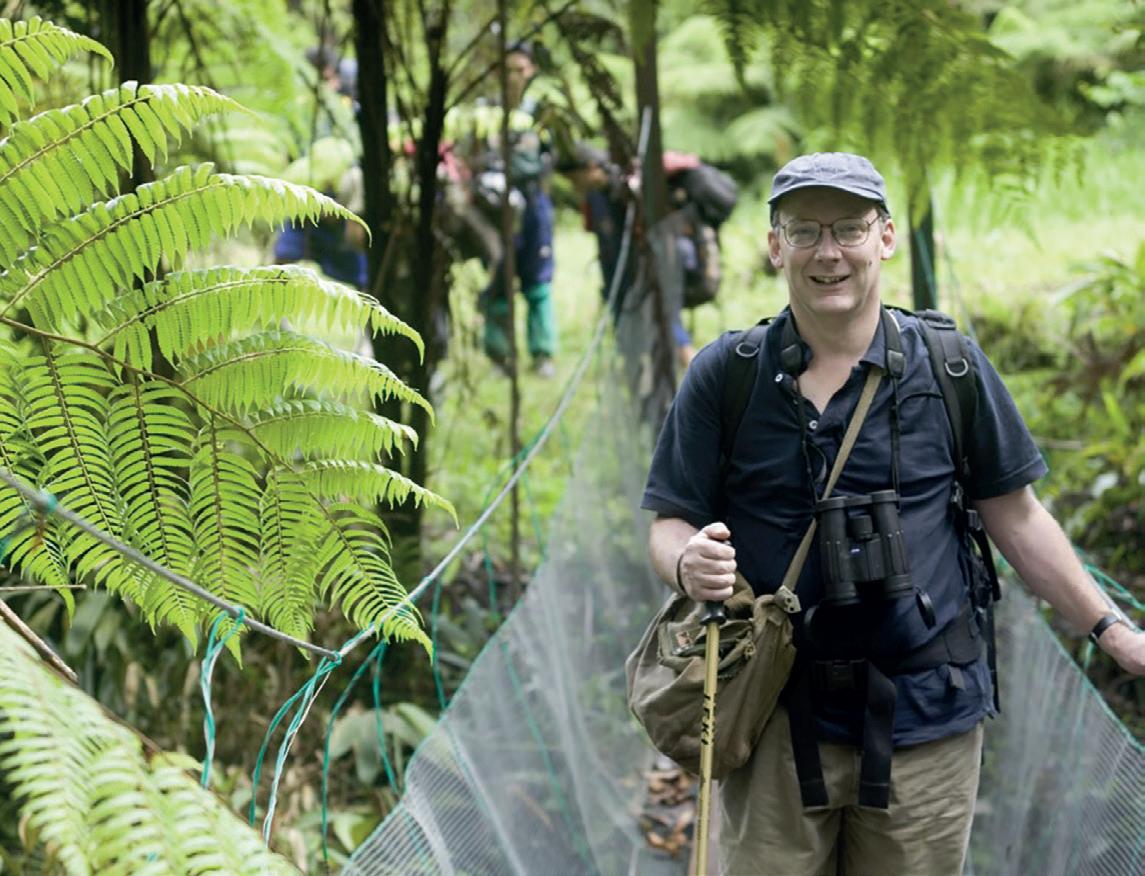
What Godfray believes in is “sustainable intensification” – producing higher yields but doing it sustainably, and this has “all sorts of different components”, he said, including genetic intensification, ecological intensification and market intensification.
Alongside this, it is important to sacrifice some yields for biodiversity, he stressed, emphasising the need for in-depth research into how to boost biodiversity most effectively.
Godfray was less optimistic about the health challenge facing the UK, pointing out that projected rates of overweight and obesity were “completely unsustainable” for the national health service.
What is more, most of the mechanisms employed to tackle obesity, such as educating consumers, behavioural interventions and promoting exercise, have proven to have only a marginal impact.
If we’re serious about tackling obesity, financial incentives and regulation could be the most effective option, he suggested, pointing to the effectiveness of the UK government’s Soft Drinks Industry Levy.
Despite concerns to the contrary, the levy had no impact on company profitability. Even though the sugar content and taste of the drinks had changed, research showed that consumers tended not to notice.
Godfray argued that the UK’s ‘obesogenic landscape’ made it difficult to make healthy food choices, with consumers bombarded by temptation at every turn. It is important to create a “supportive environment” for consumers, he said, and the sugary drinks tax could prove an effective blueprint for future levies on unhealthy products.
After speaking about climate change and the significant environmental challenges facing
food supply chains, as well as the need to stress-test the global food system to ensure resilience to future shocks, Godfray moved onto his conclusions.
“There are major but solvable challenges in feeding a global population of 10bn this century,” he said. “We need to face up much more to the health and environmental challenges around food. And the private sector is absolutely critical in this.”
He emphasised how impressed he has been by many food companies’ ability to grasp some of the big sustainability issues they now face.
“These problems are not going to go away, and those companies that can understand and address them – even if it’s difficult now – I firmly believe will have a competitive edge going into the future.”
The fruit and vegetables supply chain stood up well to the test of Covid-19, but an over-reliance on a small number of sources, cheap labour and low prices risks laying bare the sector’s real frailties.
by Tom Joyce @tomfruitnetIn the wake of the Covid19 pandemic, discussions on the resilience of supply chains became common, with “key workers” lauded for their commitment to keeping the shelves bulging with produce, to the surprise of most consumers. Three years on, salad and tomato shortages in the UK and the sight of bare supermarket shelves have put the issue of resilience right back on the agenda, as a spate of bad weather in Morocco exposed the frailties of Brexit Britain
and its go-it-alone approach. The Global Tomato Congress in Rotterdam in May featured a debate on the reasons behind the shortages and the right approach for Europe when it comes to sourcing, pricing, production and labour.
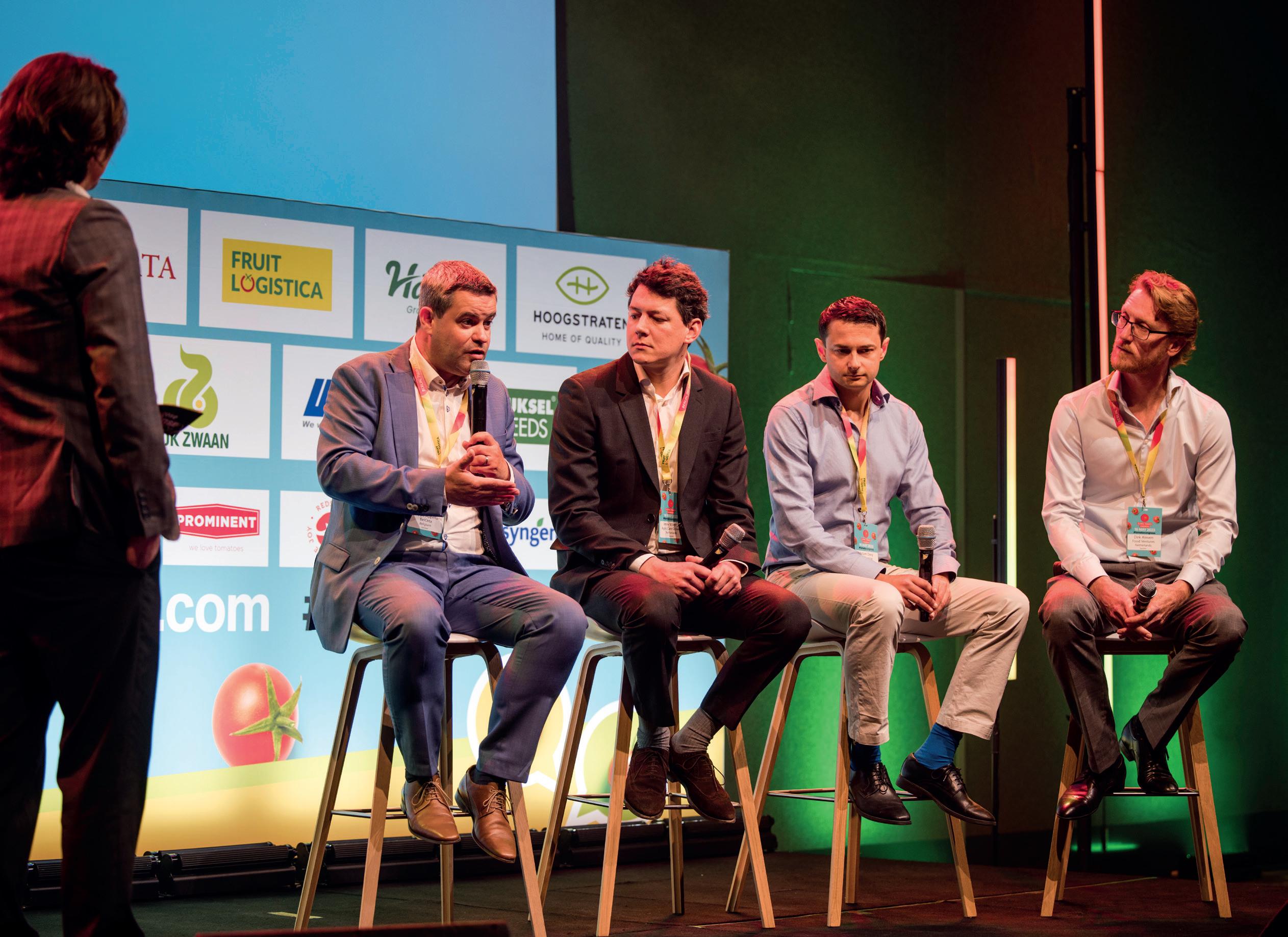
Philippe Appeltans, CEO of Belgian cooperative BelOrta: I had the opportunity to visit London and see the empty shelves for myself. Two things: don’t put all your eggs, or tomatoes, in the same
basket. If you rely on one source, one country of origin or one region for your supply and something happens, as was the case last winter with Moroccan tomatoes, you are at risk. So mitigate this risk. Diversify your supply. And add some more local produce to it. At BelOrta in Belgium, we had produce available. Maybe it was a little bit more expensive, but there was produce in Europe if you were willing to pay.
Second, penny-wise, poundfoolish. If you think that good
ABOVE—(l-r) Appeltans, Vellenga, Davy and Aleven at Global Tomato Congress OPPOSITE—Bare shelves in UK salad departments became a common sight in early 2023
quality tomatoes can be offered at a very low price, you’re making a mistake. This caused the trouble in the UK. For example, maybe retailers were thinking, with the purchasing issue of the consumers, if we put prices low we will help them. That’s not the case when there are empty shelves or only poor quality on the shelves. For whose benefit is this? Is this for the consumer? Is this for the grower? Is this for the retailer? I don’t think so. When there is no produce or only poor quality at a low price, what is the benefit? What is the profit? Nothing.
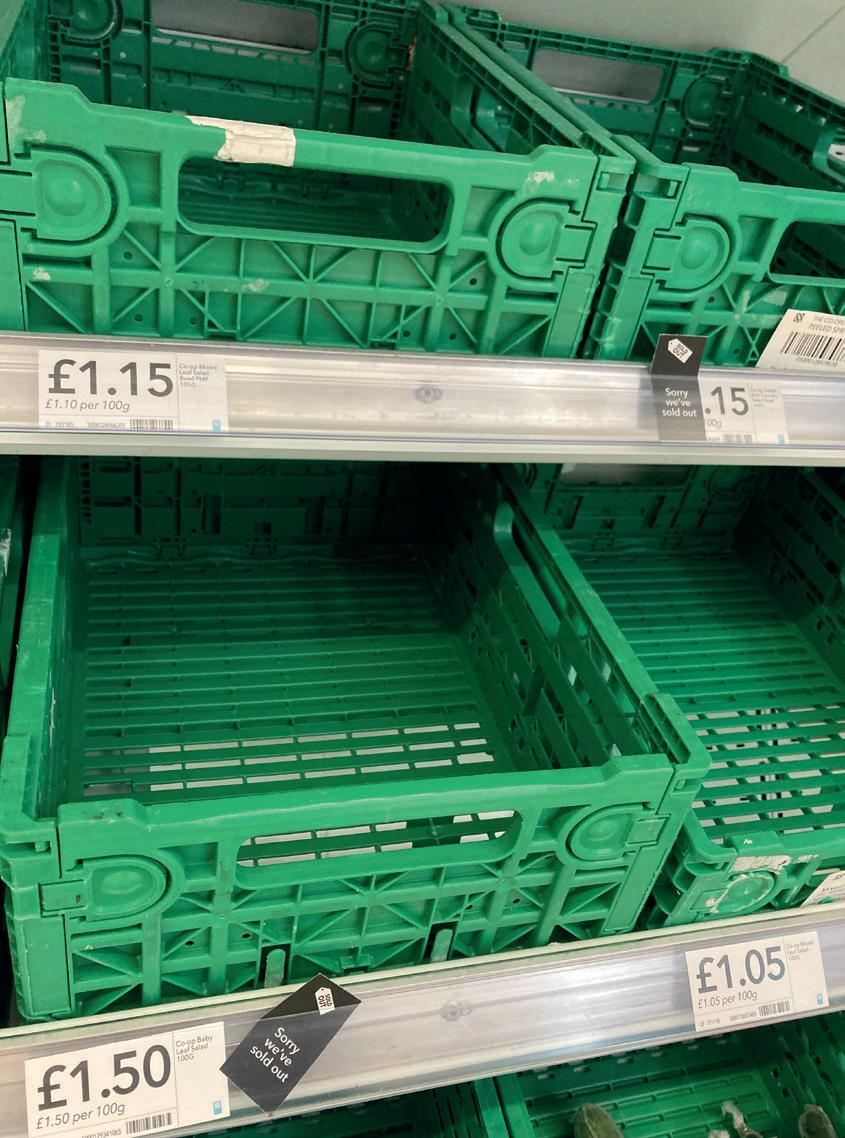
Imre Vellenga, CSR director at Dutch tomato producer AgroCare: We have divided our risk over multiple countries, including Morocco and Tunisia. There, we see that labour regulations and so on are less strict than they are in, for instance, the Netherlands. In Tunisia, there’s high unemployment so there are many people who are really happy to find a proper job. But at AgroCare we care for people and we are working with Fairtrade so we can guarantee to consumers and retailers that the highest labour standards are respected. And at the same time, we see a really happy working force and a positive contribution to the region where we are active. We have the ambition to have 1,000ha of greenhouses by 2030.
Adam Davy, buyer at retailer
ICA Sweden: I think the issue of worker treatment will come up more and more. I think consumers will start to ask more and more questions. So these solutions will become a necessity. That’s also why we have certifications. We need to ensure that the personnel working in the greenhouses are treated fairly. And that will be developed quite a lot over the coming years, that is my assumption, as consumers demand that everything is fair in the supply chain.
Dirk Aleven, CEO at hightech greenhouse specialist
FoodVentures: Resilience is the key after Covid. Maybe we were less aware of how important it is to have local produce for a resilient supply chain until the supply chain all of a sudden was disrupted. Our first greenhouse was in Ukraine, and I’m proud to say that it’s still operating and still profitable. We thought it was ridiculous to have Ukrainian workers illegally working in Dutch greenhouses and exporting the tomatoes back to Ukraine. It makes a lot more sense to produce locally to substitute the imports.
In Kazakhstan, they are flaring gas at a cost, while importing vegetables from Europe and Uzbekistan, so local production makes a lot of sense. Labour availability is not a problem in Kazakhstan, but high worker turnover is an issue, despite high
unemployment. So that’s a challenge, to offer a good stable job, stable incomes and make sure that there is a growth plan for your staff so that they remain on a good level of performance. They can be cheap, but if they don’t do the right things, they can harm your production tremendously. So that’s always a challenge.
Davy: We need to realise that we have to pay a bit more than we’ve done in the past, but I don’t think this is the biggest issue. There is so much in the production area that could be done better with AI and other things, but labour should be fair, period.
Appeltans: The position the growers have in the value chain can be improved by joining forces. As a grower you also have to try to invest the scarce resources you have in what you’re good at: growing top-quality produce. If you need to take care of sales, marketing, innovations, following up on food safety regulations, quality control – you have to spend a huge share of your turnover on these kinds of issues. If you externalise it to a producer organisation, you do it together with your colleagues, and it can be much cheaper.
Davy: At the end of the day, it’s about collaboration. You need a long-term plan. If you start the season with plan A, things can happen, so you need to be alert to change. I’ve said before that I want to see more collaboration between seed companies, producers and retailers, since at the end of the day, we need to do it together to create the value long term.
“When there are empty shelves in the supermarket or only poor quality on the shelves, for whose benefit is this?”
Experts from the fresh produce sector met with European Commission professionals, members of the European Parliament and representatives from international organisations and associations at Freshfel’s annual meeting in May. The event focused on building a fresh image for fresh fruit and vegetables, as the association highlighted the multiple challenges related to climate change, misleading negative public depictions of products and a steadily decreasing consumption rate.
The meeting looked at how the sector would position itself at the forefront of sustainable change, promoting accountability and responsibility to accurately showcase the many assets and benefits of fresh fruits and vegetables, portraying a ‘fresh face’ and the true qualities of the products.
“We cannot continue to ignore this problem,” said Salvo Laudani, president of Freshfel Europe. ”Just a few years ago, during the pandemic, we were the heroes. Consumers knew we were a sustainable food alternative with high health benefits and low environmental impacts.
”Now, fruits and vegetables are more and more o en being portrayed negatively, with misleading and untrue information on water use, quality and safety and

The association’s annual event in Brussels focused on building a fresh image for fruit and vegetables, bringing together over 100 participants from the business.
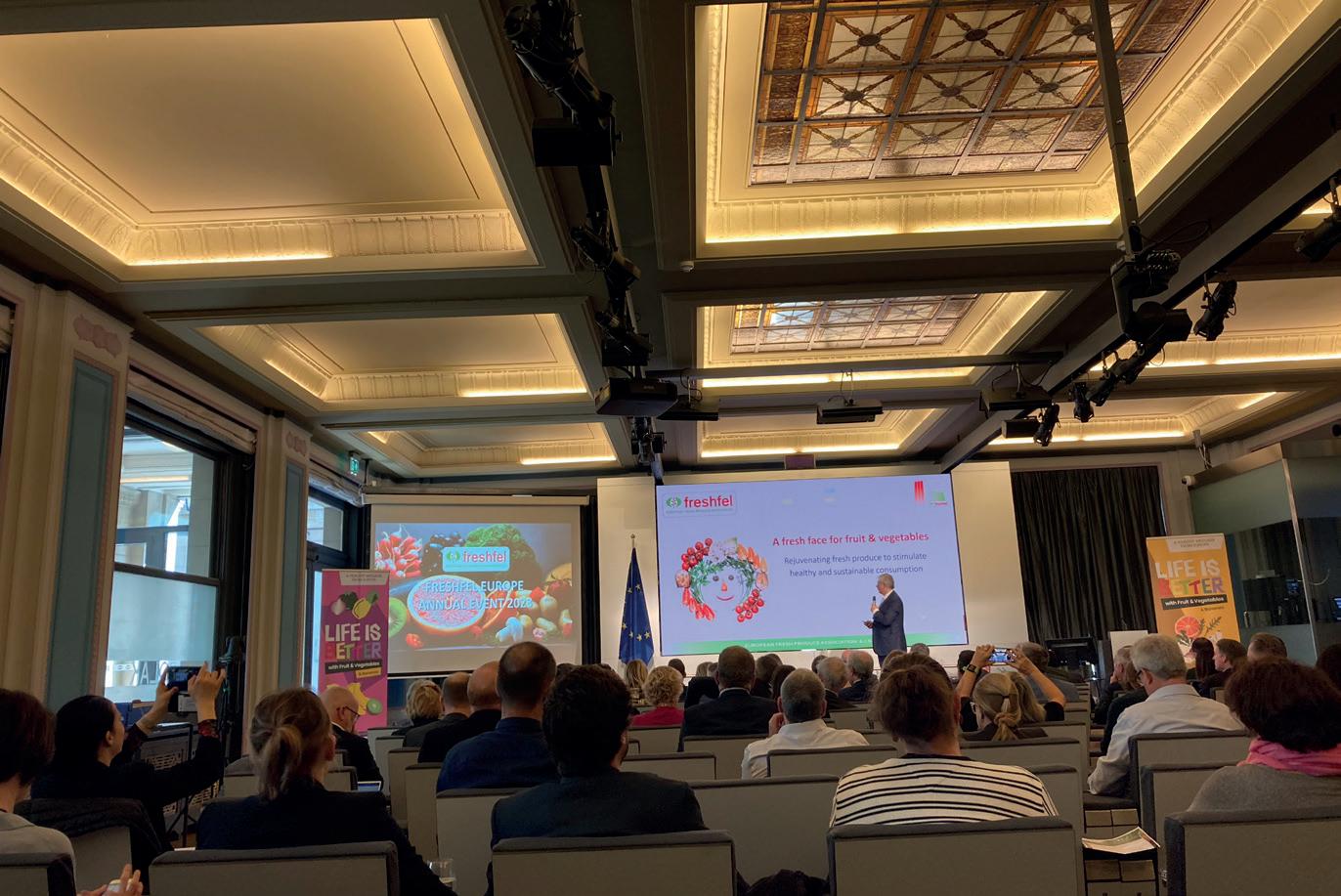 by Carl Collen @carlfruitnet
by Carl Collen @carlfruitnet
Innovational efforts, new technologies and farming practices were still in their infancy, they said, and greater a ention must be paid to how to efficiently finance the efforts that needed to be made for the sector to remain proactive.
affordability being disseminated in communication outlets.”
One of the most common current misconceptions was that fruits and vegetables had become unaffordable, he said, with prices driven up by the high inflation rates of the last year.
“Estimations from Italy show that in 2022, monthly household expenditure increased by €446, out of which grocery expenditure accounted for €35 with 10 per cent being a ributed to fruits and vegetables,” Laudani countered. ”That means that the inflation on fruits and vegetables only led to an increased cost of €3.5 more per month, or 0.1 cents per day, for Italian households.”
Fresh produce is essential to the green transition and is central in European strategies such as the Green Deal, Farm to Fork, Fit for 55 and the EU Beating Cancer Plan.
Speakers at the event highlighted the urgency to act now to reach these goals and stressed that although fruit and vegetables had the capacity and qualities to take the lead in sustainability, there was still a lot more work to be done.
While the meeting identified several areas where progress could be made, regulatory and financial hurdles remained.
“Fruit and vegetables have a key role to play in the move towards a plant diet and sustainable food chains,” noted Philippe Binard, general delegate of Freshfel Europe. ”Yet, policy changes are placing hurdles on the sector’s journey towards these objectives.
”Restrictions to the use of plant protection products, packaging, efficient labelling requirements and insufficient actions to stimulate innovation projects and consumption are impeding and delaying the move to fully sustainable fresh produce,” he added.

It is no secret that we need to start reducing the climate impact of our activities as businesses and as consumers. As a result, buzzwords like net zero, sustainability, and environmental footprint now guide how we conduct business.
Having recognised this urgency, governments and political entities worldwide, including the European Union, are implementing policies like the Corporate Sustainability Reporting Directive, carbon taxes, and the Green Claims Directive.

It’s no longer merely goodwill that drives businesses towards sustainability; it’s becoming a legal and moral necessity.
The rationale is clear. Consumers are demonstrating their readiness to reward sustainable practices. Studies including a recent Bain & Company report indicate a willingness to pay a premium of up to 25 per cent for sustainable products.
Yet, to communicate sustainability efforts authentically, we must be wary of false claims and greenwashing.
Data enable you to substantiate your sustainability claims, to demonstrate that your actions align with your words. Remember, unsupported claims could soon be classified as greenwashing under the proposed EU Green Claims Directive, a risk no business can afford to take.
The implementation of Life Cycle Assessments (LCAs) on your products provides opportunities to reduce impacts and substantiate claims with data.
Brands with purpose are outpacing the rest, growing twice as fast. Our company Nature Preserve
aims to help you become such a purpose-driven leader. More than three-quarters of European consumers want carbon labels on food products, a market trend that you can leverage with our software platform.
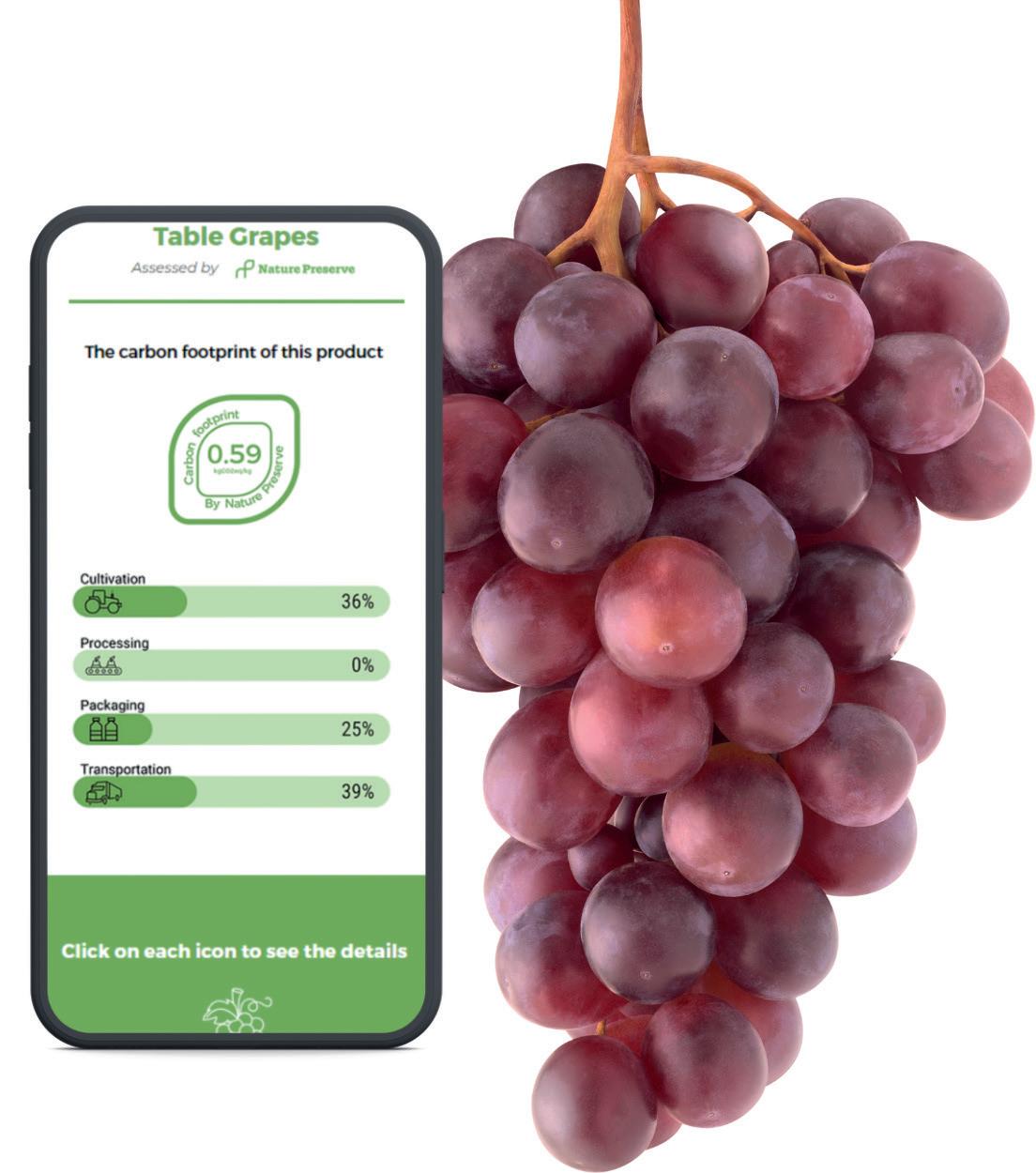
The Nature Preserve software platform is built on LCA principles. The platform empowers your business to accurately measure, reduce, and communicate your environmental impacts.
We aim not only to identify opportunities for you to reduce your footprint but also to enhance your reputation through meaningful engagement with consumers. Our goal is to equip
you with a competitive edge for the food of tomorrow.
So, if you’re ready to unlock your brand’s superpower and make a meaningful impact, take the first step by calculating the environmental impact of your products.
Join us today, and let’s work together to measure, reduce and communicate your environmental impacts. By embracing sustainability and carving a greener path, you can gain a competitive edge for the future and contribute to a more sustainable tomorrow.
ABOVE—Nature Preserve offers LCAbased environmental measurements
In an era of greenwashing, Julie Schack Petersen explains how to navigate a path to real sustainability with transparency and determination.
JULIE SCHACK PETERSEN Co-founder and head of product Nature Preserve
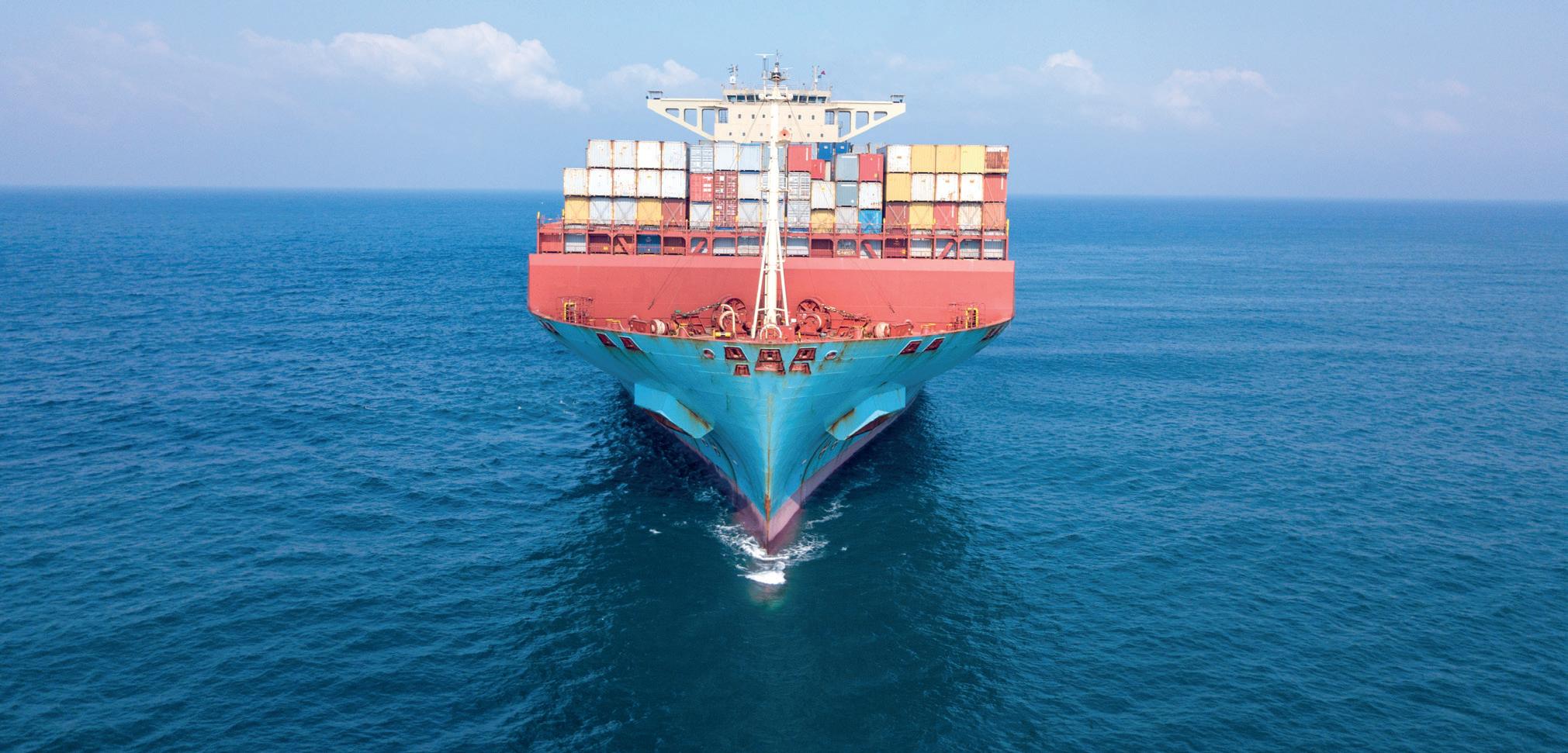
With an estimated US$1.7tr required to make shipping green, and policymakers increasingly demanding action, there’s no time to lose in decarbonising the shipping sector.
by Tom Joyce @tomfruitnetIn 2019, when Bruce Marshall became head of refrigerated cargo at Maersk, conversations about sustainability in the transport and logistics sector were happening, but there wasn’t much action behind it, he admits. “It was almost like a check-mark, as opposed to a real thing,” says Marshall. “Now some of our customers expect a whole lot more reporting on what we do and what we don’t do, so it’s positive that sustainability is now gaining traction.”
The company’s net zero ambition of 2040 is ahead of its competitors in the shipping sector. However, it’s going to come at a cost, according to Marshall. “This is not going to be free,” he states, “and customers are realising that there is a cost involved. But they are also willing to explore different ideas with us to see what we can do together. This is positive.”
Recent ideas include the Maersk eco delivery product, which was launched in 2019. “We take used cooking oil, and we blend it into the
fuel,” says Marshall. “And then we get carbon credits, which we can sell to customers.”
The next big thing, he believes, is methanol ships. “The first was delivered this year,” he reveals. “It’s a reasonably smaller ship that will operate in the Baltics while we see how it runs. And then we’ve got some bigger ships coming later on. What’s super important is other carriers are starting to buy into it as well. CMA has ordered some methanol ships, which is a very positive development for us because the more ships there are and the greater the demand for methanol fuel, scale comes, cost comes down and everybody benefits.”
Niklas Witte, senior customer sustainability partner at Maersk, gives an idea of the scale of the challenge to make shipping green. “The Global Maritime Forum estimated that it will cost about US$1.7tr to take the shipping industry to net zero,” he says. “That means US$60bn every year from now until 2050. And that US$1.7tr is only in shipping. We’re not touching on air, landside and all the other parts of the value chain. Our capital expenditure plan is setting aside billions this decade to invest in assets in infrastructure and scaling of fuels.”
Maersk’s 19 methanol vessels, which will be on the water by 2025, are expected to reduce CO2 emissions by 2.3m tonnes a year, according to Witte.
“We’re also investing in trucking,” he goes on. “We’ve just committed to operate 400 EV trucks across the US, as well as setting up the infrastructure for charging locations. Everything we’re building from the ground up has our net zero concept, using sustainable building materials, energyefficient assets, electrified assets, warehouses and renewable power supply.”
Witte says collaboration will be essential in this effort. “We haven’t got to where we are because we’ve done it alone,” he states. “We’ve done it because we’ve collaborated with others.”
In addition to financing and scaling up green fuels, he says, decarbonisation will require support from customers and policymakers. “It’s not going to happen in the absence of carbon taxation,” explains Witte. “And we need to act now.”
ABOVE—Getting the shipping sector to net zero is estimated to cost US$1.7tr
Chilean fruit producer federation Fedefruta has warned that planned changes to water laws put forward by the government of Gabriel Boric will have a detrimental impact on the country’s fruit industry. Fedefruta president Jorge Valenzuela says the proposals “do not encourage investment in water efficiency” and “will stop fruit development in Chile”.
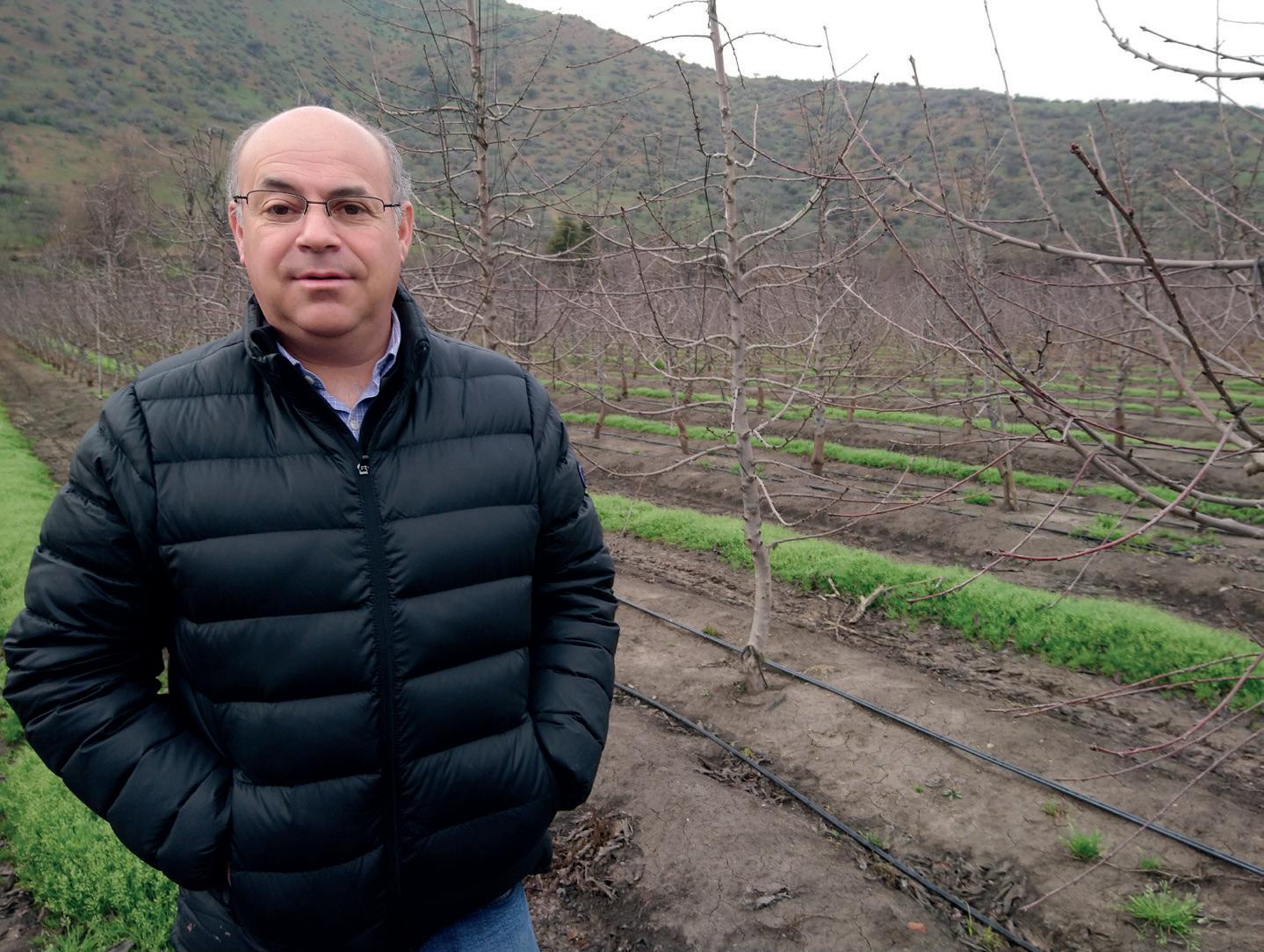
The modifications, which were unanimously approved by the Senate in May and must now clear the Chamber of Deputies, are an a empt to make the allocation of water resources fairer and more sustainable. They aim to encourage
more efficient use through irrigation by subsidising the costs for irrigation projects of small farmers and indigenous communities.
But critics warn that they will remove incentives for the construction of new irrigation infrastructure in larger farms, which make up the majority of Chile’s fruit export sector, as they will end the existing model of water rights, replacing it with authorisations of use that cannot be traded.
Valenzuela points out that a medium-sized producer with more than 20ha will no longer have access to investment in irrigation. “This leaves 4,000 fruit companies without access to the instrument, which is equivalent to 82 per cent of the 375,000ha of fruit trees in Chile,” he says. “And if we talk about cherry production, 66 per cent of the surface of this species will be without investment for irrigation.”
He further warns that the changes will halt investments in innovation in regions affected
by drought where irrigation technification is most needed. “The changes to the irrigation law go against technological development and the technical capabilities of innovation for the proper use of water,” Valenzuela says.
A empts to modernise the Chilean Water Code –the legislation that controls distribution of the country’s water resources – began more than a decade ago. According to the Chilean Ministry of Public Works, agriculture is the largest user of water in Chile, consuming 72 percent of the total. Currently, water rights are controlled by the Water Code of 1951, which defines water as a “national good of public use” and grants its use to individuals, a term which has been subsequently applied to both individuals and legal entities.
The statute grants shares of water to individuals and companies, which may be held for the lifetime of the person or transferred to heirs or buyers. The volume of water associated with each share varies according to the source of the water and associated waterflow.
The new Water Code will have the biggest impact on the northern and central regions, where drought has forced companies to depend more heavily on irrigation.
If access to water in those regions is no longer guaranteed for the 20 to 30 years needed to ensure a return on investment in fruit orchards, producers will consider alternate crops with a shorter lifecycle or move further south where water is more abundant.
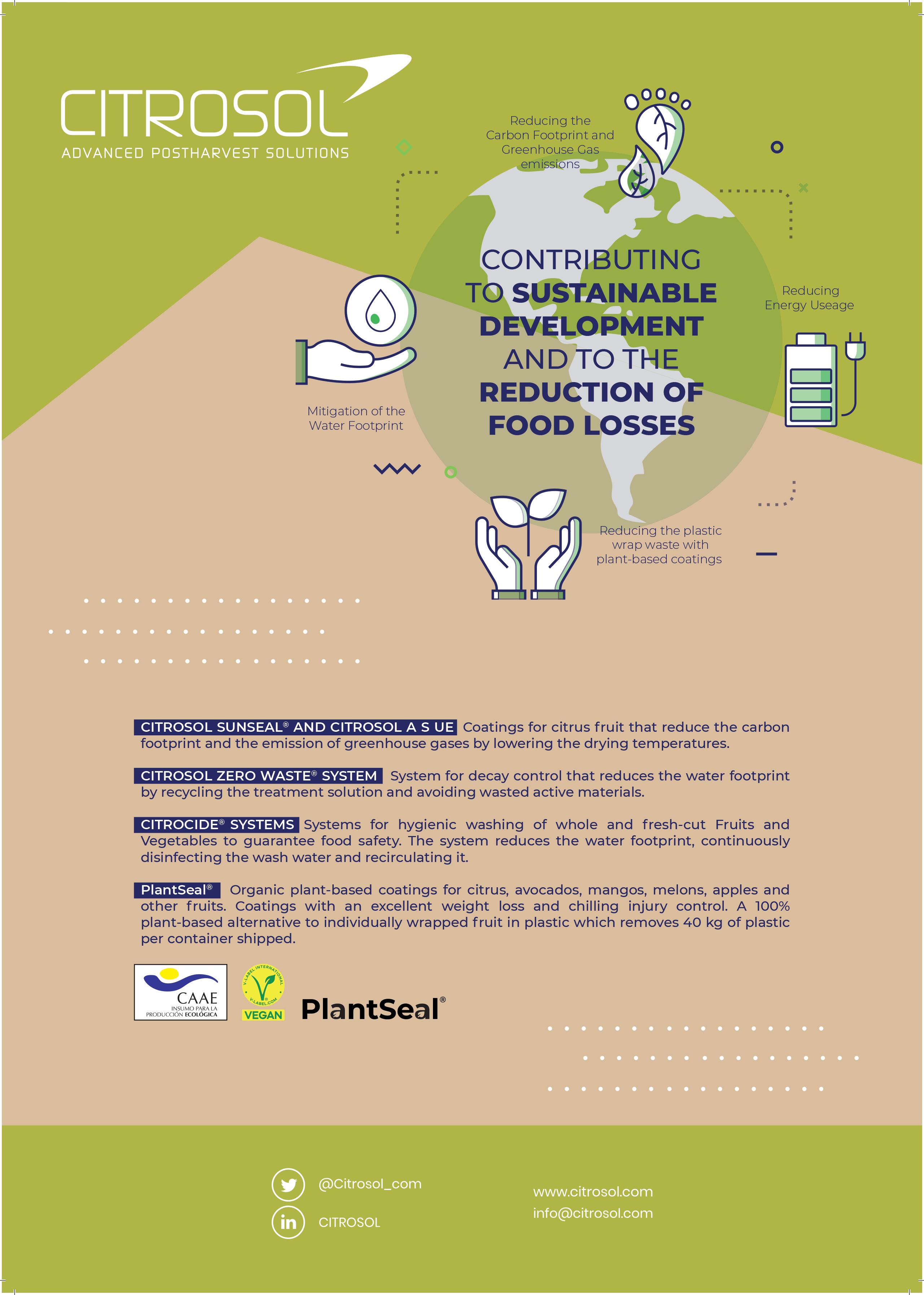
Acknowledging the problem of worker exploitation is half the battle for fresh produce companies, according to Shayne Tyler, who specialises in helping firms combat the scourge of modern slavery.
by Tom Joyce @tomfruitnetTempting as it may be to consider slavery an unconscionable historical aberration, so-called “modern slavery” is very much a reality in 2023, and any industry heavily reliant on low-paid, seasonal workers is likely to be a target for exploitation. Shayne Tyler, whose company TylerBladon Practical Ethics specialises in helping companies across the world to identify and root out such labour abuses, has been focused on the issue ever since a 2000 episode of BBC’s Panorama exposed the exploitation of illegal workers at the fresh produce importer he worked for in Cambridgeshire, UK. Just in April, his efforts saw two arrested, seven warned and 138 people taken out of exploitation in one single case.
In the UK, we’re frequently seeing stories of worker shortages, crops being left unpicked and even empty shelves in the supermarkets. Was this predictable?
Shayne Tyler: Many people saw the supply issues in the UK coming. I think you need to go back to the Immigration Act. On 1 May 2015, the prime minister at the time, David Cameron, conducted a review of the immigration system. There were a lot of negative stories about immigration figures at the time and the government were going to move to a single enforcement body and reduce immigration to the “tens of thousands”. But no one anticipated that we would then vote to leave the EU. So when the vote came through, suddenly the Immigration Act was no longer about non-EU, but non-UK citizens, which creates a completely different picture. People were saying then that there was there was going to be a labour shortage, hence why the seasonal worker scheme was so rapidly thrown together. It was totally predictable.
What wasn’t predictable was how complex we would make that worker scheme.
Given the shortages of labour, one might assume workers would perhaps be in a stronger position…
ST: When there’s a shortage of labour, you have desperation. So a shortage of labour gives an opportunity to those who do not have the right to live and work here, to find work. We therefore see an increase in that sort of worker to fill the gap, and usually in the background there’s somebody exploiting them. At the moment, there’s a shortage of labour in the UK, so there is an increase in illegal workers. And because we’ve got restricted numbers coming
in through the seasonal worker scheme, from faraway lands, there are also people willing to even pay to get into the scheme, so there is further exploitation there.
At 40,000-45,000 people the seasonal worker scheme is important to the industry, but it is nowhere near the level that really makes a big difference. The vast majority are on EU settled status, and that can be difficult because you’ve got people skirting around immigration rules, applying for visas and getting caught up in renewals. And all of this complexity creates a perfect breeding ground for those that wish to exploit because they can hide in it.
Given the significant challenges, is there much hope that schemes
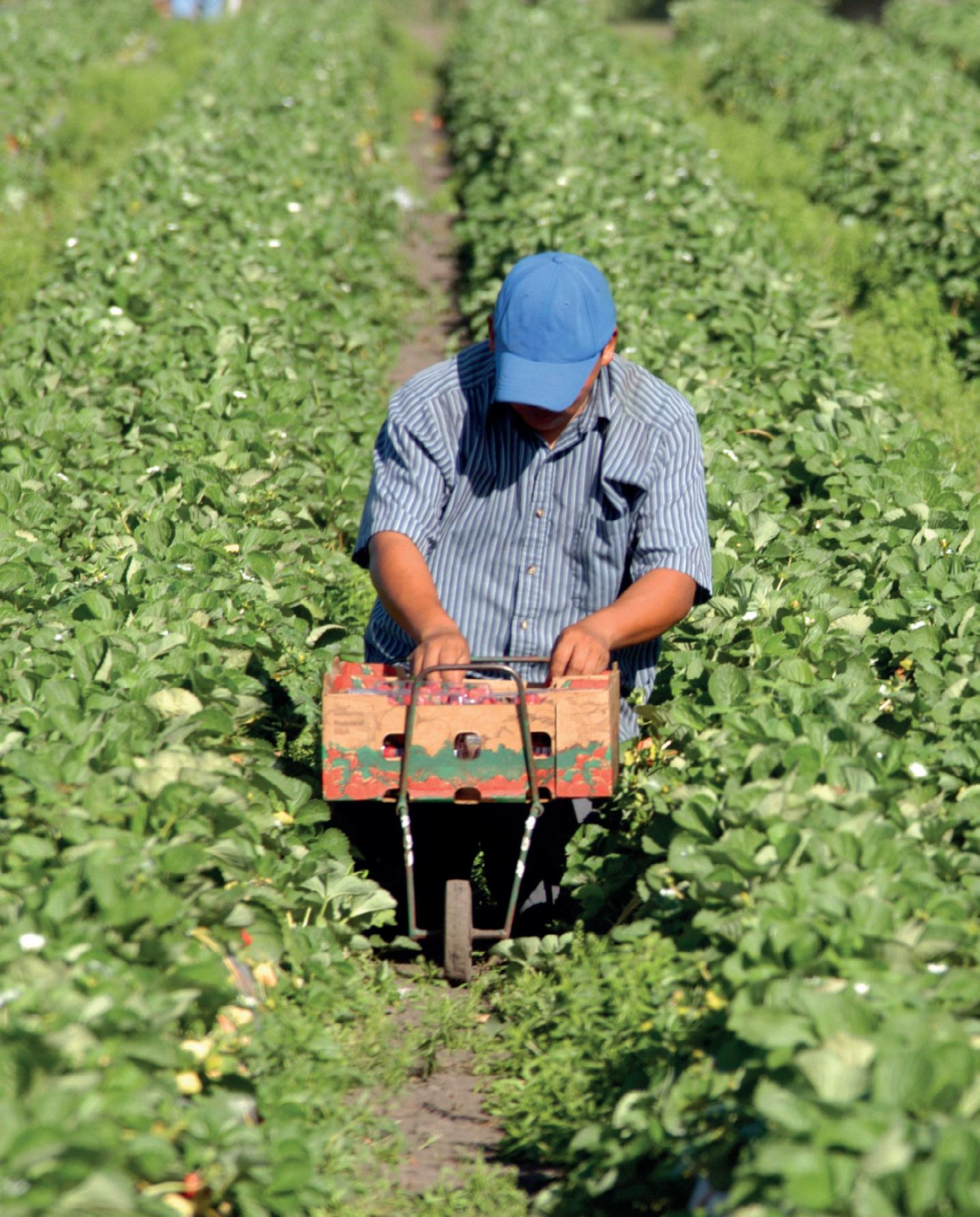
such as Fairtrade can have a proper impact?
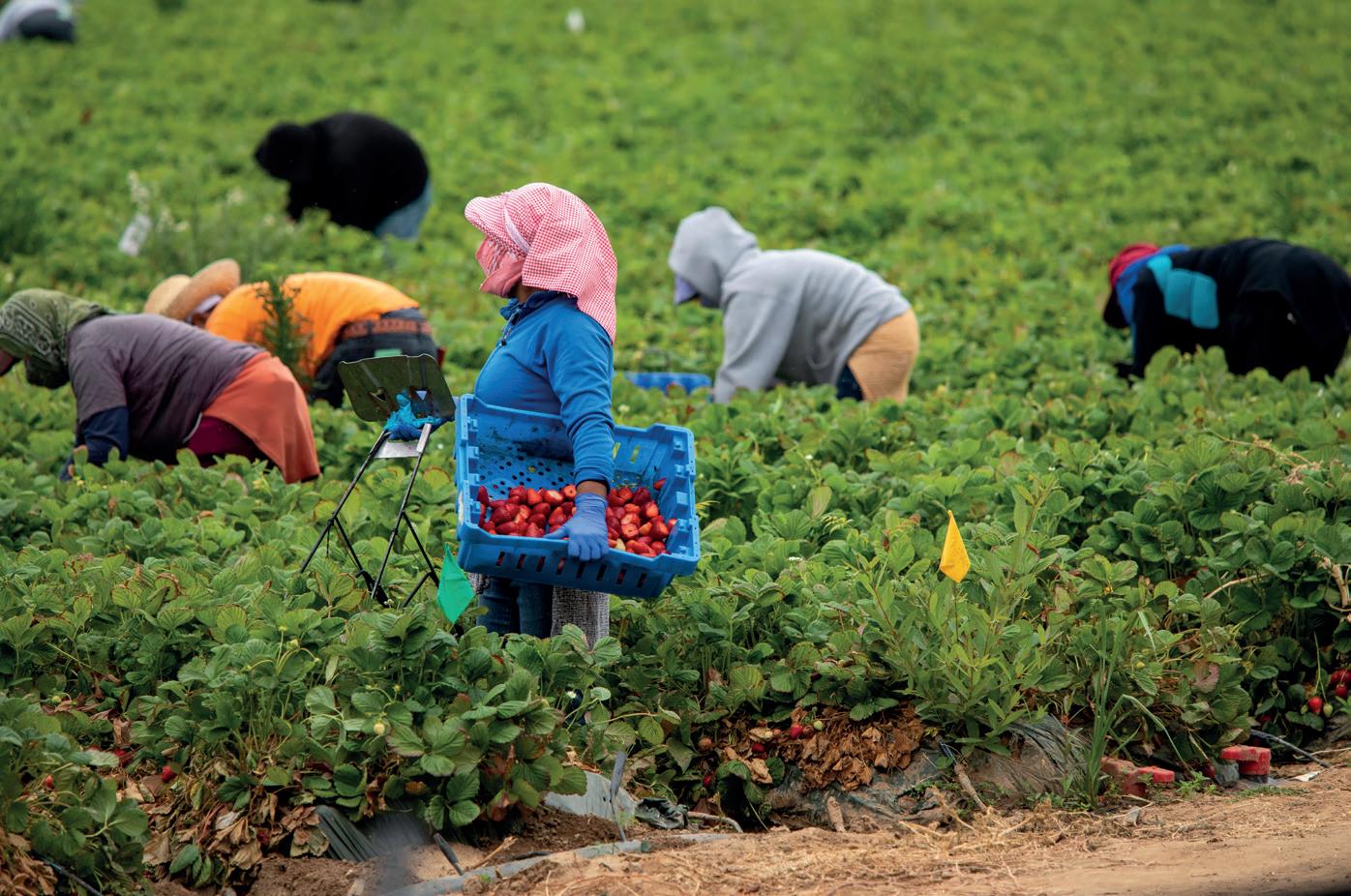
ST: I’m a great believer in schemes like Fairtrade. Any business or supply chain that signs up to doing the right thing is in a better position. The reality of the problem is, to paraphrase [management consultant] Peter Drucker, “doing things right is efficiency, but being effective is doing the right thing”. To explain that in terms of ethics, we should always do the right thing, but some businesses feel backed into a corner where they are left with little option.
Doing things right, in a way that is efficient at driving the exploiters out of our industry, that’s almost impossible. When I was supplying for my previous company, Operation Fort was in the news, and West Midlands police found that the UK’s largest ever modern slavery network had been operating in Birmingham. The police’s budget was nearly twice that of the company I worked for, and I was working with 54 different countries. So realistically, it’s just not possible.
What we’ve got to get better at is targeting where we have the biggest impact. If I’m a procurer of produce, I know that my biggest risk is minimum wage workers and how they are recruited into the UK – that’s going to be my biggest challenge. There are probably three things I need to look at: how they’re recruited, how they’re paid, and how they’re treated. But we’ve almost flooded ourselves with so many other checkboxes. We’re not in a position today where we’re actually really having any impact because we’re asking businesses to do so much. And they’re not actually looking at the area they could have an impact in.
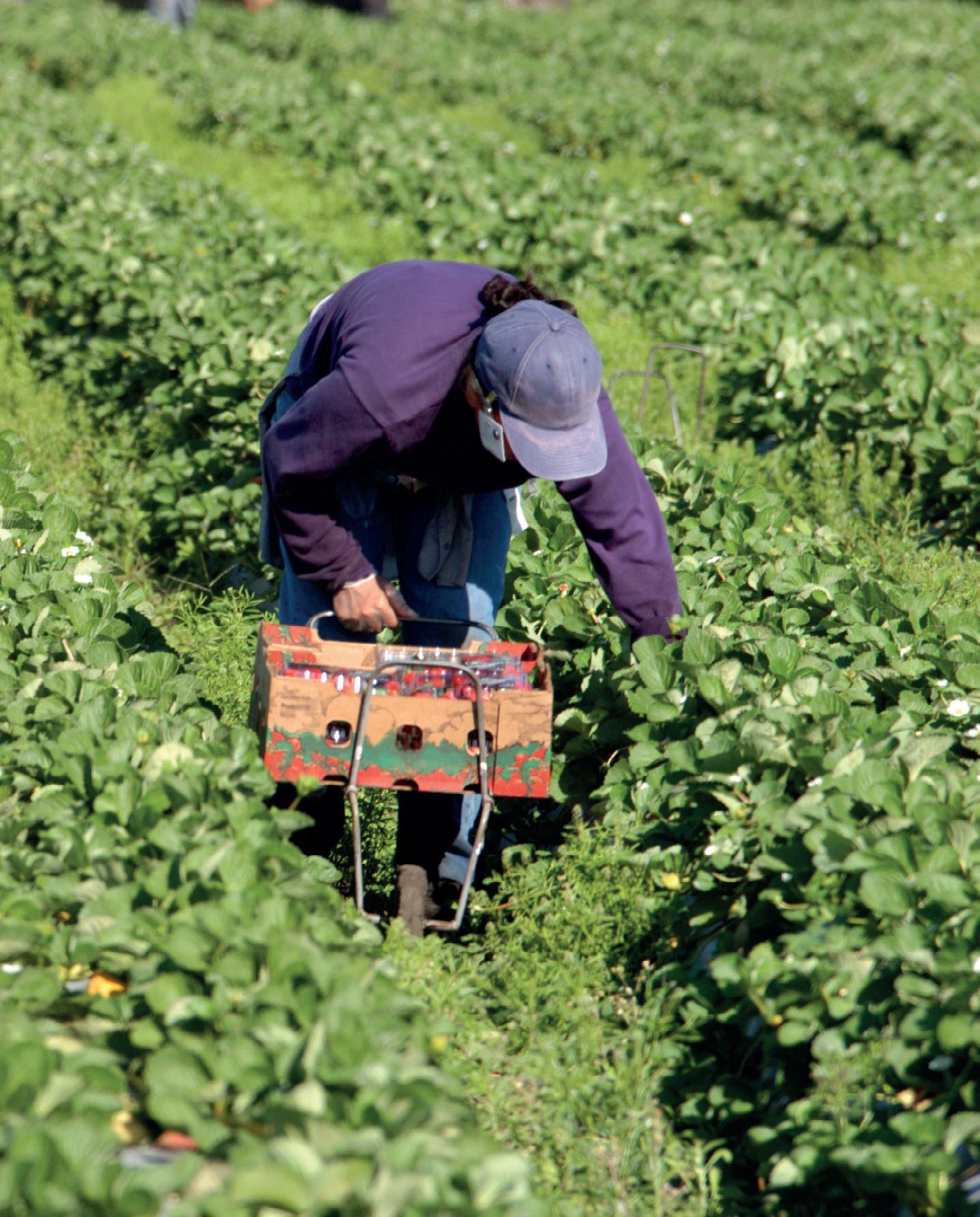
ST: With the clients I now help, knowing they’ve got a problem is half the battle. And if around 2 per cent of the nation is working illegally, as the figures suggest in the UK, then we’ve all got a problem. The second thing is, what are you going to do about it? So we need to identify any process where money is involved and where the vulnerable are. It’s about process. If I’m recruiting workers overseas, that can be perfectly fine, as long as the process is fully understood and I know where my vulnerabilities of people and process are, and where there is access to money. And if I then target my resources there, I can have an impact. If I try and do everything, then I’ll have a problem.
It’s important not to judge a company on whether or not there is an issue. In health and safety, you don’t judge a business on whether they’ve had an accident. You judge them on whether they’ve had the same accident again or whether they’ve put mitigations in place. If we begin working together better and more collaboratively, we can start having more of an impact.
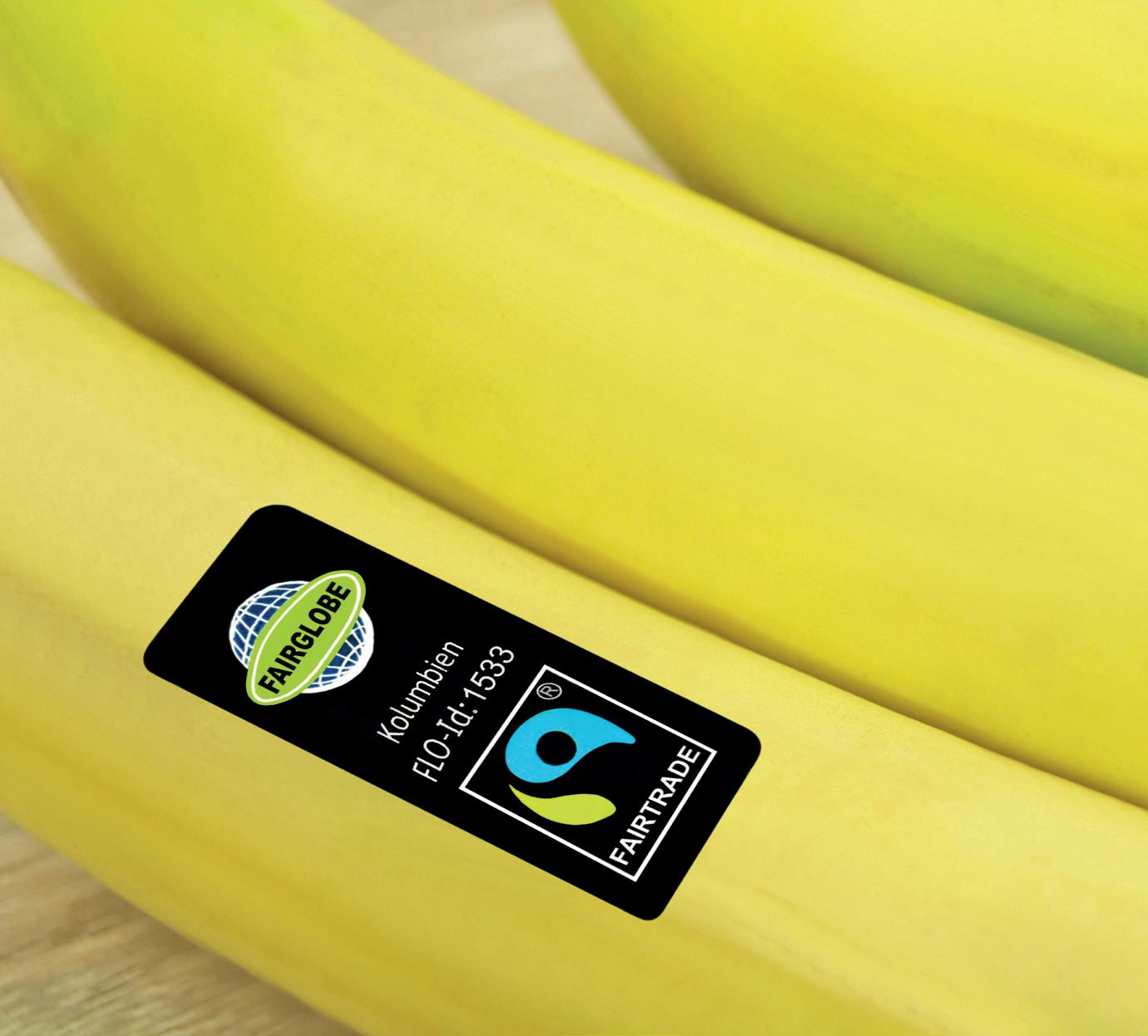 by Carl Collen @carlfruitnet
by Carl Collen @carlfruitnet
BELOW—People still put ethical considerations high on the list when they go shopping
to be bucking the trend when it came to ethical shopping choices, with more people saying they regularly bought Fairtrade products than the last survey in 2021.
Some 44 per cent said they bought at least one Fairtrade product per month, up three percentage points from two years ago.
Continuing a trend seen since the first Fairtrade GlobeScan survey in 2008, trust in Fairtrade remained high. Just over 70 per cent of those surveyed recognised the Fairtrade label, and of those, 86 per cent said they trusted it – including three-quarters of Gen Z, Millennials and Gen X.
Fairtrade International has said that global consumers are ”staying loyal” to the ethical label despite the cost of living crisis.
According to new research findings released by GlobeScan and Fairtrade, around three in five (56 per cent) shoppers surveyed across 12 countries said they were willing to pay more for a Fairtrade product, despite the increased cost of living.
While consumers are increasingly concerned about rising food prices, small-scale farmers also face skyrocketing fuel, transport and fertiliser costs, pu ing their livelihoods even
further at risk.
“It is encouraging that shoppers are staying commi ed to sustainability values even during hard times, to support farmers and workers ge ing a fair income,” said Sandra Uwera, global CEO of Fairtrade International.
“The global cost of living crisis is squeezing both consumers and producers, but this survey shows that many people still put ethical considerations high on the list when they go shopping.”
Despite recent indications of an overall dip in consumers’ willingness to choose “purposeful” brands, Fairtrade said it appeared
“Fairtrade remains the most visible and trusted ethical label globally,” added Uwera. “The majority of consumers told us they prefer to buy Fairtrade products over other labels.”
Other headlines from the GlobeScan survey included younger consumers being the most willing to pay more for Fairtrade over regular products, shoppers strongly associating Fairtrade with social justice issues, and a clear emotional connection to the label.
In addition, more than one in five shoppers –a small uptick from previous years – associated Fairtrade with support for farmers to reduce the impact of climate change, reduce the impact of farming on the environment, and protect against deforestation (22 per cent each).
“Farmers and agricultural workers are facing multiple crises, including spiralling inflation, lower real wages and the effects of climate change – while consumers around the world are also facing great uncertainty,” said Uwera. “These findings send a clear message that shoppers still want fair and sustainable options, and suggest that they see no short cut to a more sustainable future.
“It is encouraging that shoppers are staying commi ed to sustainability values even during hard times”
New research suggests that shoppers are staying loyal to Fairtrade products despite the cost of living crisis.
Organic veg box company Riverford is celebrating five years of employee ownership by completing the sale of shares from founder Guy SinghWatson, to become 100 per cent staff-owned. Singh-Watson will remain a co-owner of the business, sitting on its trust board and acting as a non-executive director. All shares will now be held by the Riverford Trust for the benefit of all staff.
Riverford’s governance model consists of the trustees, the board, and the co-owner council. The council meets once a month, and works with the two other governing bodies to grow the business while maintaining the founding values of sustainability and fair treatment of staff and
suppliers – summed up in its commitment to ‘Good Food, Good Farming, and Good Business’.
The final transfer of shares to the trust speaks to Riverford’s belief in co-owners as the best custodians of the success and ethics of the business.
“It has always been my plan to transition Riverford into a 100 per cent employee-owned company,” said Singh-Watson. “When the business became employeeowned in 2018, I wanted to ensure that the move was a successful one, and that the values of the business were safeguarded by its new owners and governance arrangements.”
In becoming 100 per cent employee-owned, Riverford said it is building on a legacy of advocating for the wellbeing of its staff, as well as the farmers, growers and pickers that supply the business with its organic produce.
The business added that it has consistently been transparent with its customers about the importance of paying its producers fairly, and raised prices to ensure that growers were not adversely affected by the rising cost of labour in the UK.
James de le Vingne, chief executive of the Employee Ownership Association (EOA), commented: “Riverford is a powerful example of the potential that can be unlocked through employee ownership, and thoroughly deserved its good governance award at the EOA Annual Conference last year.
“I’m always struck by the passion and commitment in our employee-owned member businesses that are joined by a common purpose, that business and society are be er when people have a meaningful stake and say in their work.”
Comba ing climate change and biodiversity loss has been a key mission for Riverford since the business was founded in 1986.
Recent investments have included the largest on-roof solar panel array in the South West, electrifying its van fleet with a goal to be 100 per cent electric by 2025, an ongoing investment into home compostable packaging, and new refrigeration systems to reduce emissions and improve energy efficiency.
In 2021 Riverford also launched a major agroforestry trial on organic farmland in Devon and began a native tree planting programme and wildlife surveys as part of its biodiversity action plan.
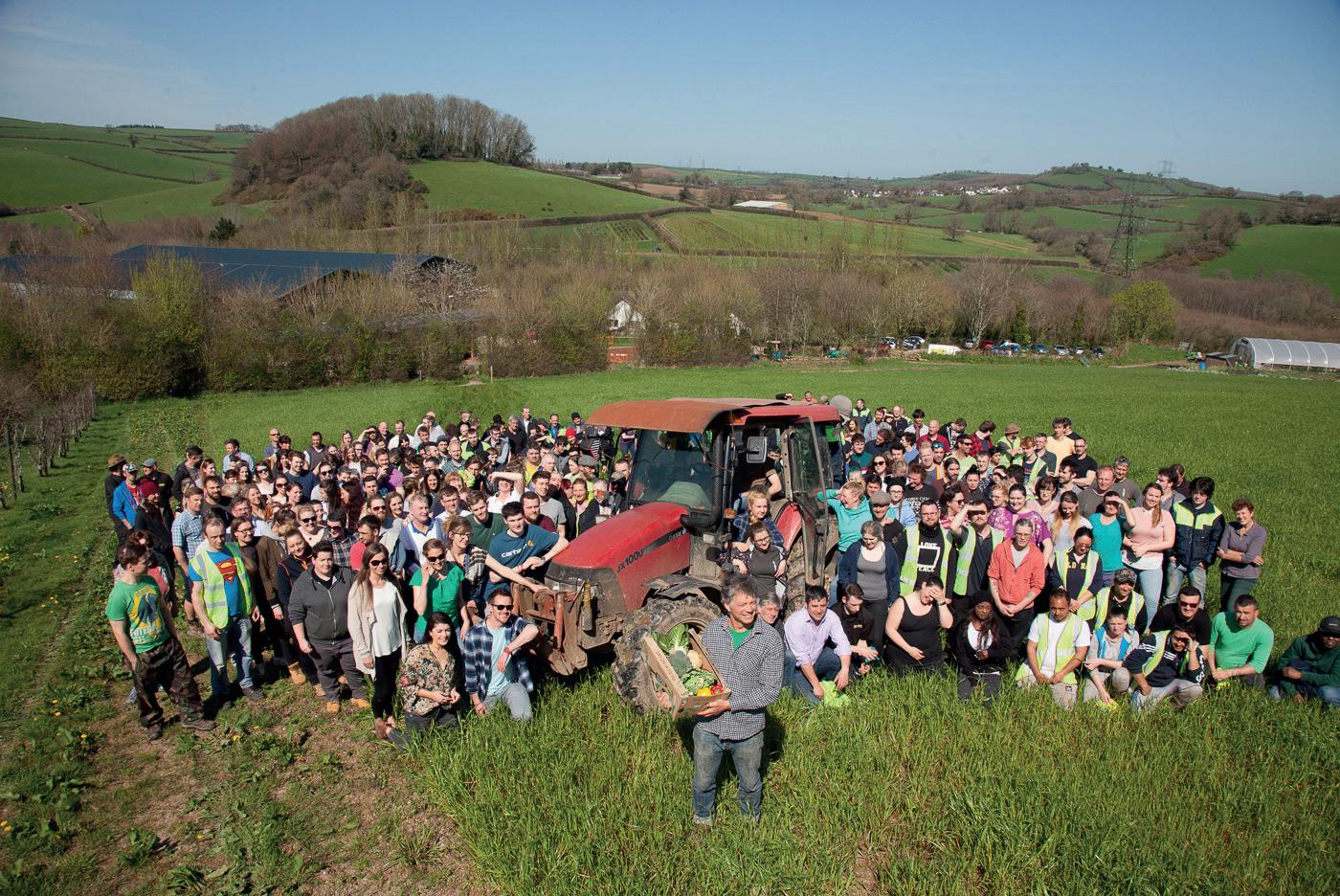
In 2022, the business announced a £1.8m ‘fund for the planet’ –the start of a continual annual investment in tackling the climate and biodiversity crises.
The company will continue to invest profits in its zero-carbon strategy, with the aim of reaching net zero carbon emissions by 2030.
The seed specialist prioritises sustainability not just in term of its products, but also in the way it does business.
by Maura Maxwell @maurafruitnetThere are many ways in which seed companies can create value by improving the sustainability of their offer – developing varieties that require fewer pesticides, for example, or creating mini ranges to help cut food waste. At Enza Zaden, sustainability is factored into all new product development, according to sustainability manager, Lena Hulsmann.
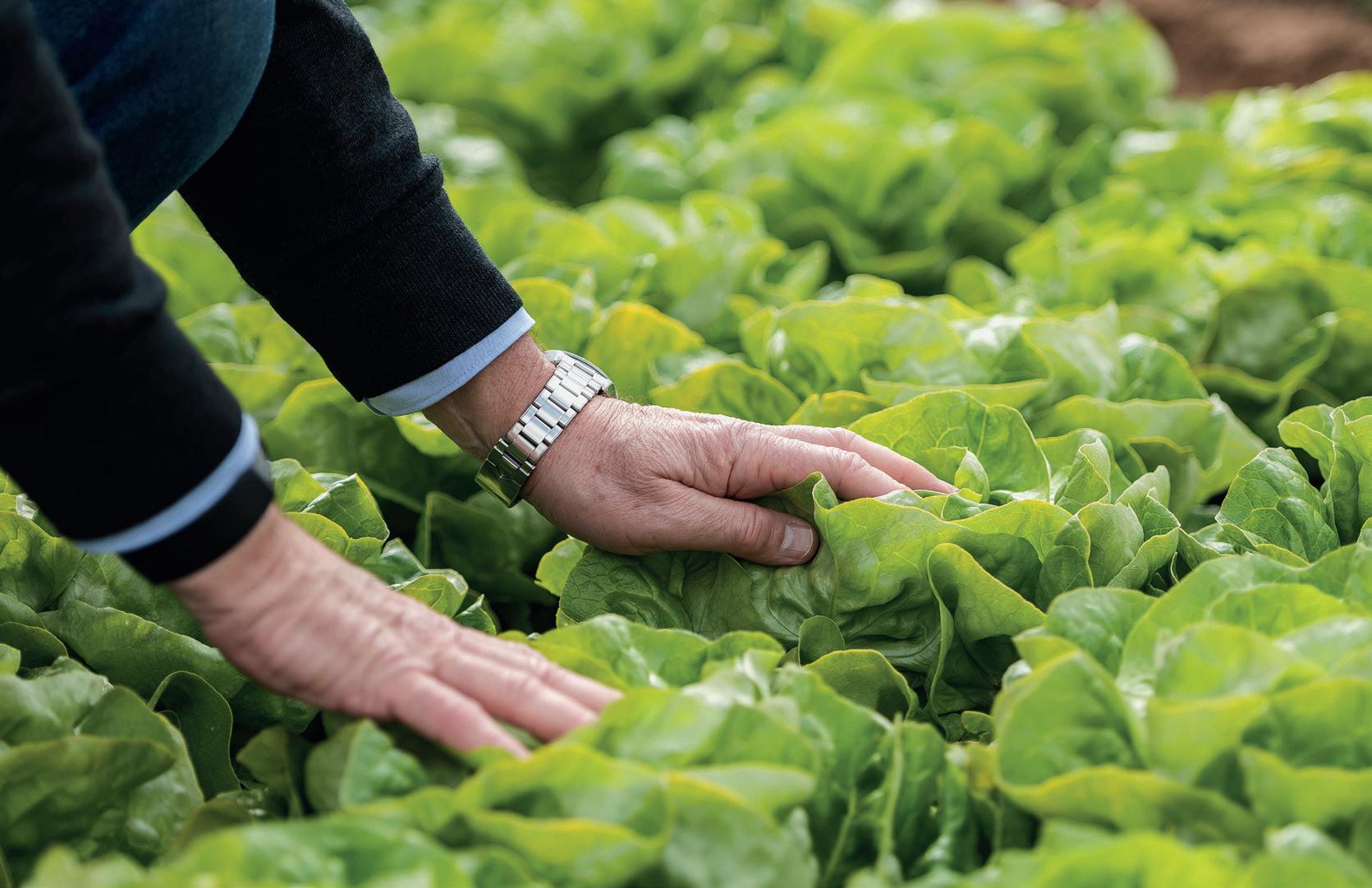
“Sustainability is in our DNA. Our mission is clear: breeding to feed the world. We believe that to create value in a sustainable future, we need to address the accelerating developments around us, such as the changing demographics, increasing regulation, natural resources scarcity, climate change and loss of biodiversity to mention a few,” she says.
“Consequently, we dedicate ourselves to the development of portfolios that be er adapt to climate change, are more resilient and stay fresh for longer; as well as
ABOVE—The seed company says sustainability is in its DNA
BELOW—The easyQs mini cucumber range helps cut waste
of cleaner products, plants that resist diseases without the use of pesticides, or varieties that need less water input or resist be er to extreme climatic conditions.
“We also consider sustainability not just in term of products, but also in the way we do business,” Hulsmann says. “We aim to cut our greenhouse gas emissions and water usage as much as possible at our facilities. And collaborations and knowledge transfer, within and outside the business, are very important for us – for example we’re involved in several research projects with universities to develop ways of producing with less heat and light. We want to be sustainable in our products, in our processes, with our people and with our customers.”
portfolios that are adapted to new cultivation methods such as vertical farming.”
By way of example, she points to two of the company’s most innovative product releases of recent years. Greencumbers are Enza Zaden’s portfolio of LET cucumbers that stay fresh for longer without the need to be wrapped in plastic, thereby reducing the use of plastic and cu ing food waste.
Another concept that responds to these last two drivers – plastic-free and reducing food waste – is easyQs, a range of mini cucumbers that don’t need to be peeled, stay fresh and crunchy for a long time and, thanks to their size, are more convenient.
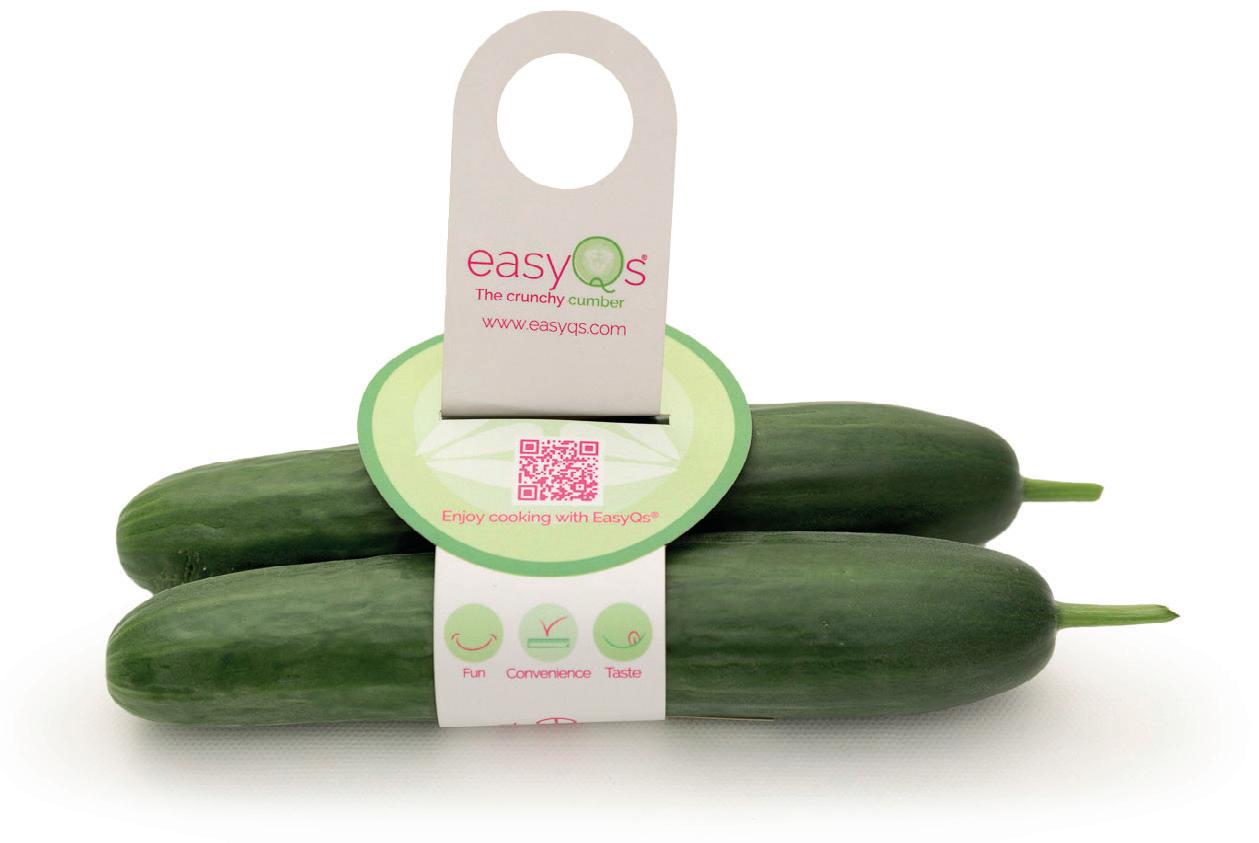
“In general, post-harvest shelf-life is an incredibly important factor in our breeding,” she continues. “Having products that stay fresh for longer is one of the ways to increase sustainability, in production, in the stores and in consumers’ homes.”
With climate change striking hard, another of the company’s goals is to develop more resilient varieties, whether this means resistance, allowing for the production
Technology is one of the most powerful drivers of sustainability improvements and for this reason Enza Zaden invests more than 30 per cent of its revenue in innovation and technology each year.
“We believe technology can be a great tool to move forward. Vertical farming, for example, is a great example of how we can develop more local-for-local production,” Hulsmann says. “In general, the ability to adapt and mitigate climate change, collaboration, knowledge transfer, as well as increased relevance of high-quality data, are key to achieving our sustainability goals.
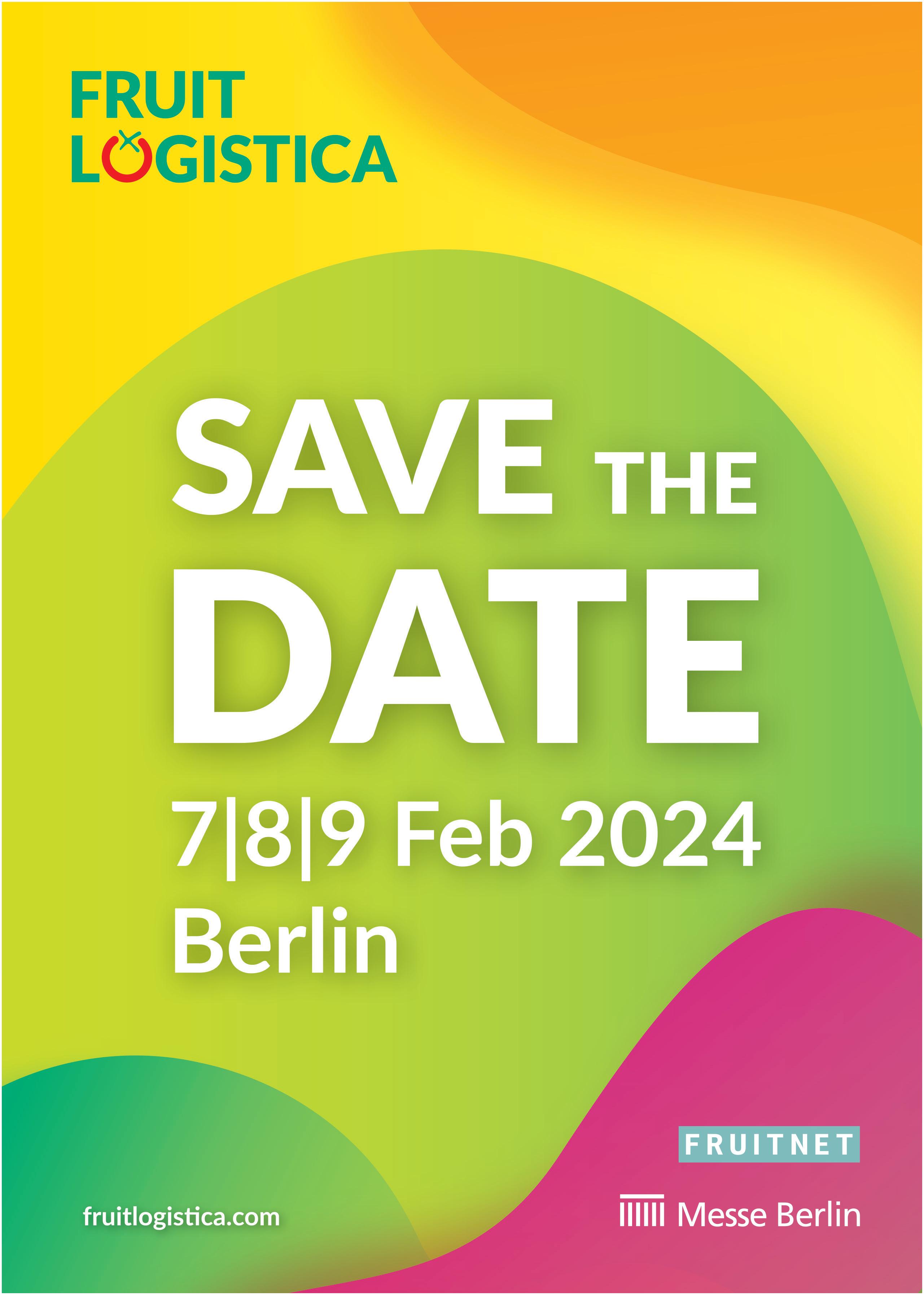
Based in the Netherlands, Nic Jooste is an independent advisor on sustainability in fresh produce. Here, he explains how the industry led him to work in environmental conservation.
by Nic JoosteSustainability comes in many shapes, sizes, colours, dimensions and areas of impact. For me, the secret to starting a new sustainability project is always that it depends on three things: inspiration, commitment and collaboration. These three factors recently came together in what was a life-changing sustainability project.
In June 2021, I had worked in the global fresh produce industry for almost 30 years as a marketing and sustainability executive, and 20 of those years were invested in founding social projects in South Africa’s most disadvantaged areas. I set out on a new adventure that would change everything.
While working on one of my fresh produce projects in South Africa, the country of my birth, I touched down in Kruger National Park for the first time. This vast wildlife area spans three countries and more than two million hectares of unspoilt African bush.
I was in awe. The incredible, outstretched, untouched savannah. The awe-inspiring sunrises and sunsets giving way to a stunning milky way in the crystal-clear night sky. The explosion of scents of wild fruit, spices and herbs, and the sounds of the untamed bush. All of these combined to create a connection that I had never felt before. Something awakened deep within. I was home.
In the northernmost provinces of South Africa, Kruger is home to over 147 species of mammals and 508 species of birds. It has the greatest number of wild African rhinos in the world, as well as lions, cheetahs, hippopotamuses,

zebras, giraffes, wild dogs, hyenas and many different types of antelope. It absolutely abounds with wild fruit, herbs and spices, which makes it pure paradise for lovers of the outdoors.
But there is a downside. The park is under threat from illegal poaching, with a catastrophic outlook for the survival of endangered species such as the rhinoceros. During that maiden visit, I was also confronted with the dark side of conservation. While tourists were happily spending time in luxury lodges, countless protected animals were killed by poachers. I decided to take action.
I already had the inspiration,
TOP—
I engaged with other fruit specialists to form partnerships with like-minded individuals and companies.
non-alcoholic beverage. And in return for the African bush providing this precious gift to us, we made a commitment to support the Kruger Park and its rangers financially, to preserve this magnificent heritage for future generations.
We worked with local tastemasters and distillers to develop Selati, a range of non-alcoholic distilled spirits that capture the flavours and tastes of the Kruger Park and South Africa.
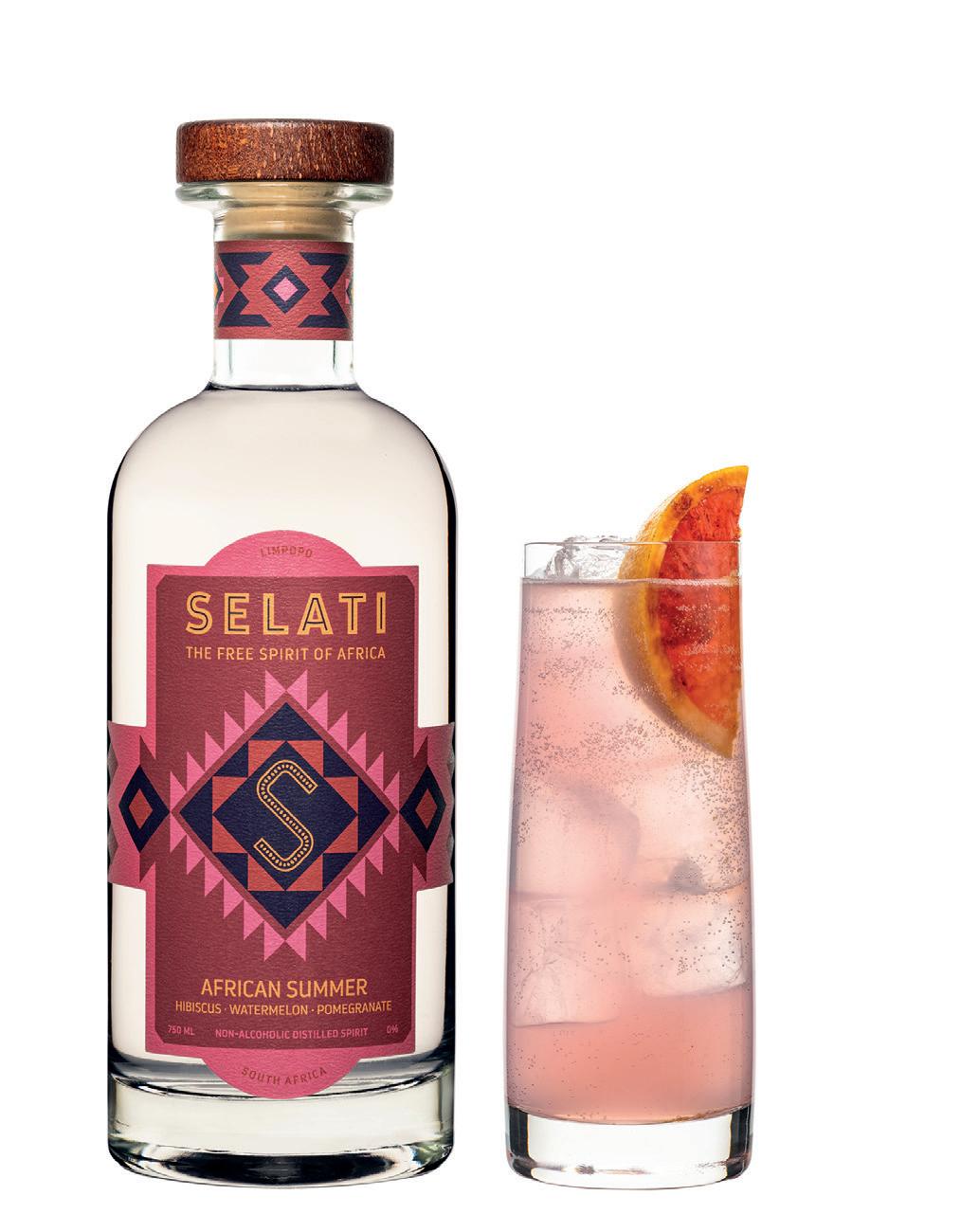
We mixed several different types of citrus with indigenous fruit (marula), herbs (rooibos), flowers (hibiscus) and spices (African pepper), to create amazing flavors and tastes that fit in perfectly with the global trend of less alcohol, more flavour, maximum health.
But we took our fruit-inspired sustainability project further. We started reaching out to local communities around Kruger to see how we could make a contribution to their well-being. I travelled to the northernmost border of South Africa to install ten little libraries in rural schools that are deep in the African bush. What a humbling, yet inspiring trip this was!
Together with fresh produce industry stalwart Kees Rijnhout of Jaguar The Fresh Company, I also established the Kruger Park Wildlife Foundation. We created a network of business leaders who – just like us – are passionate about sustainability.
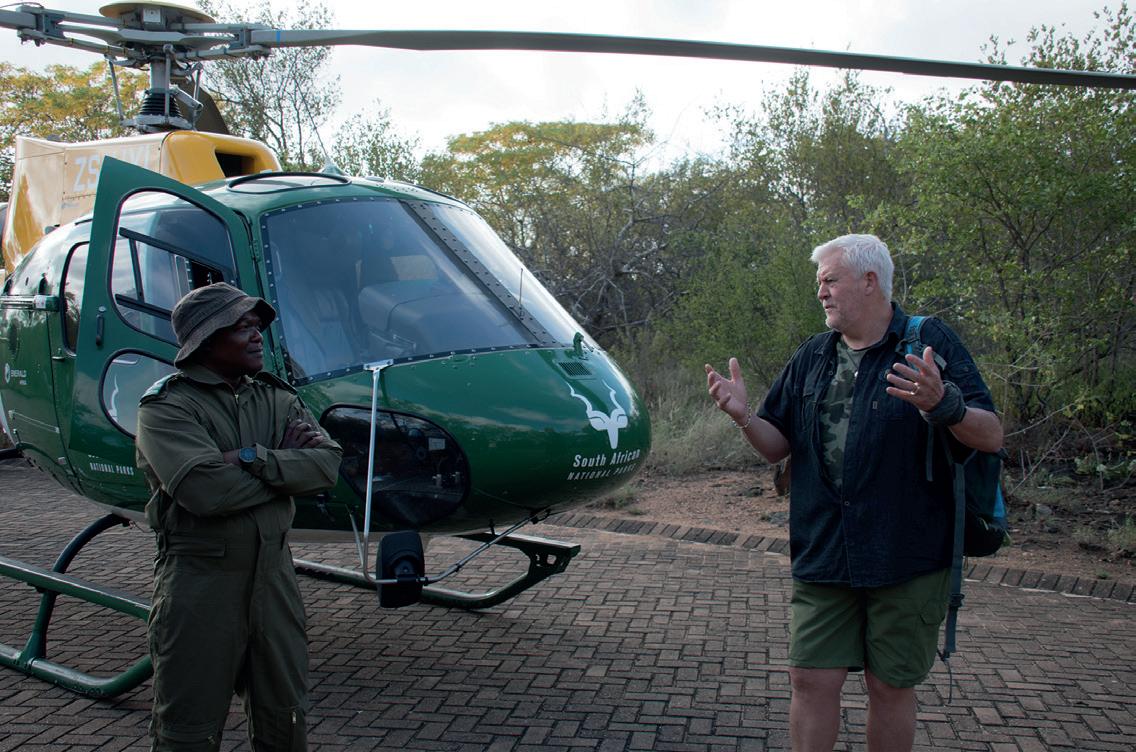
and then my passion for fresh produce kicked in. I did something that I had never done before: I combined an environmental focus with my two big loves, fresh produce and sustainability. I set out to create a consumer food brand inspired by the fruits, flora, spices and herbs of the Kruger Park, and to form a conservation alliance with the park’s game rangers to fight back against the illegal poaching and killing of wild animals.
It’s a fact that collaborations drive sustainability to greater heights. Back in the Netherlands,
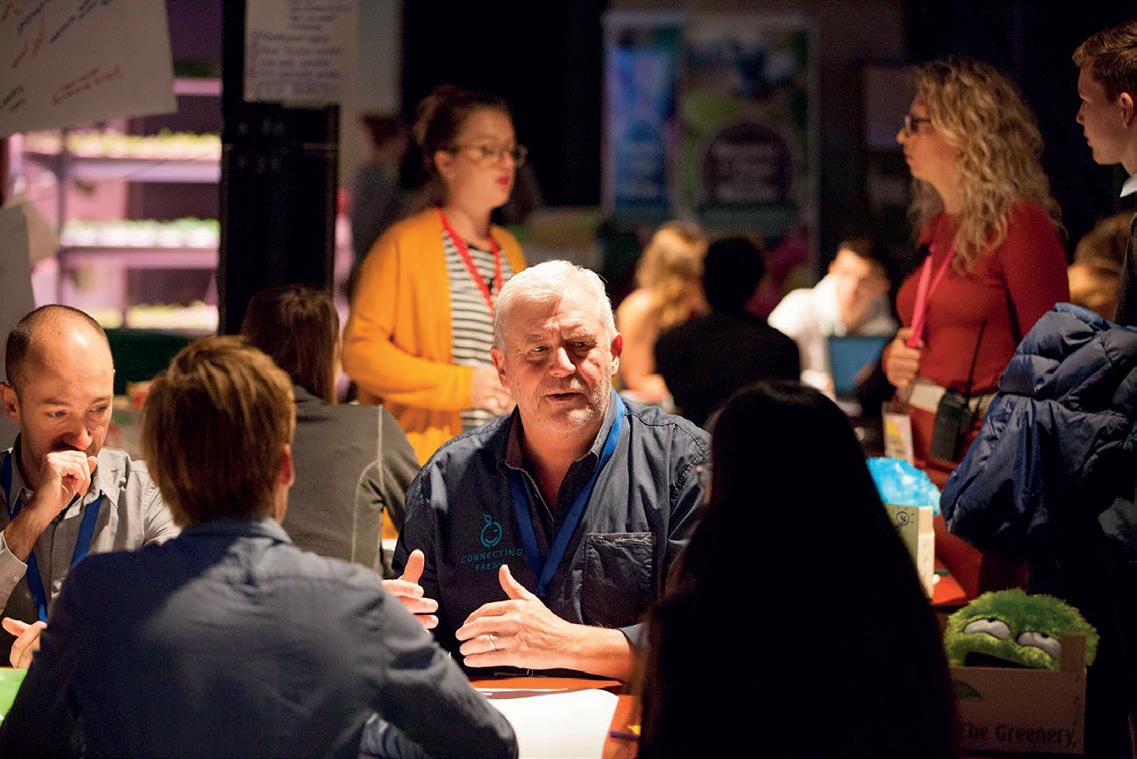
Soon after, I returned to Kruger with an energetic team of food and beverage professionals. What I showed them was a sensory smorgasbord ripe for the picking. The Kruger Park and its people presented a perfect symphony of aromas, colours, flavours and the unmistakable essence of South Africa’s shared zest for life.
We call this Ubuntu – “I am because we are”. The people, food, nature and senses of Kruger inspired me and my team to start creating a fruit-based,
Our annual Kruger Bush Camp Experience is a unique activity. Together with the rangers we take a maximum of 20 selected guests on a conservationfocused, adrenalin-filled adventure that is unlike anything they have experienced before. They spend four nights and five adventure-filled days in a unique bush camp in a remote area of the Kruger Park.
Literally nothing separates us from the wild animals. During this trip new friendships are formed and sustainability concepts created.
Had you asked me five years ago if my involvement in fresh produce would cause me to become involved in saving wildlife, I would have laughed. Today, I am also laughing, but for a different reason: happiness, knowing that my fruit-based product is making a difference in the world.
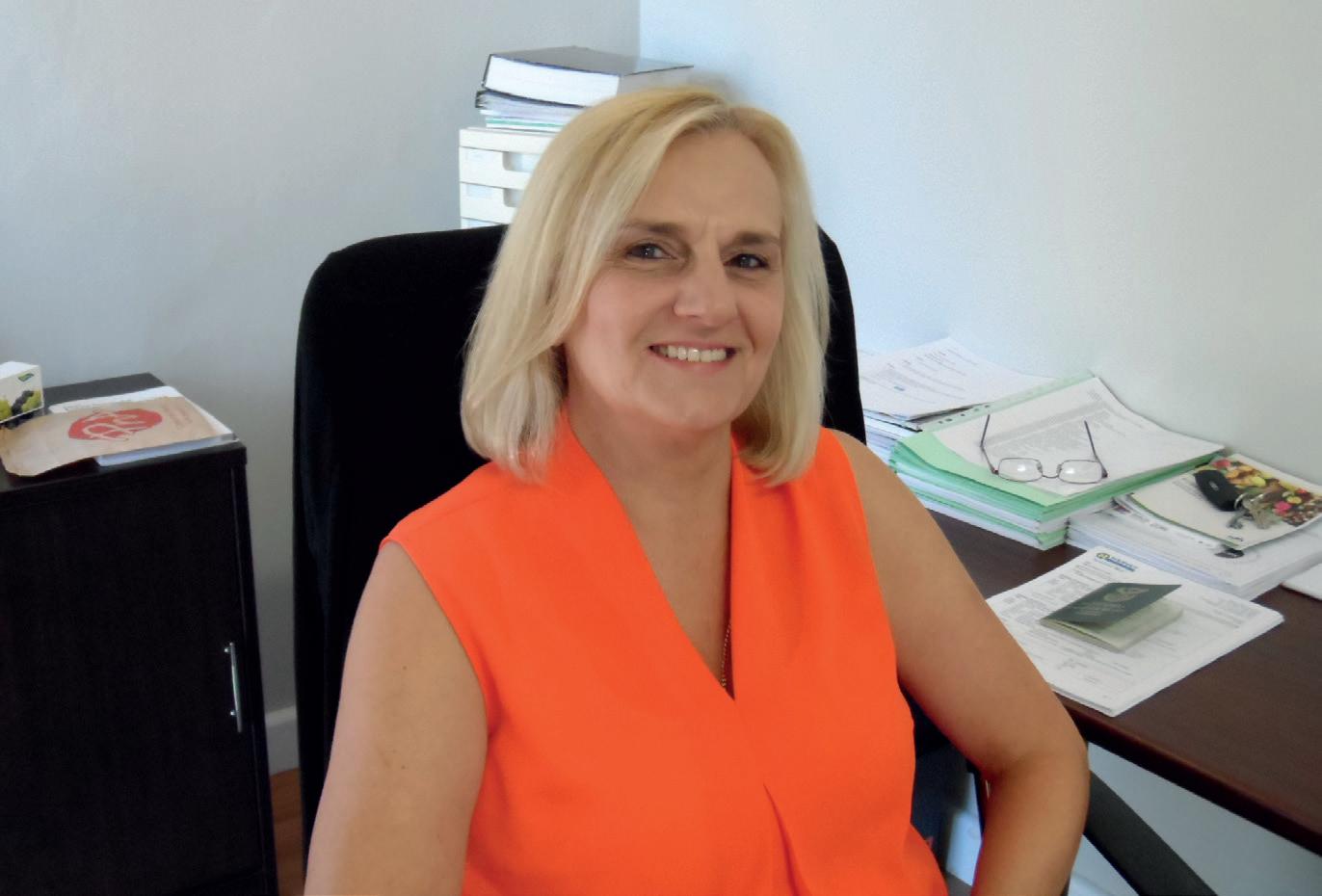
Wide-ranging programmes from the Sustainability Initiative of South Africa answer the requirements of retailers and growers in the dynamic realm of sustainability.
by Fred MeintjesOver several years the Sustainability Initiative of South Africa (Siza) has established itself as a notable solution and as a leading and comprehensive programme and compliance standard for agricultural producers in South Africa.
“In the dynamic realm of sustainability, retailers and markets encounter a multitude of challenges when striving to
Growers who operate in the international market say Siza has become a vital link for them to access multiple markets. They say Siza’s role in coordinating and aligning compliance with a range of different standards needs to be further expanded because it makes the compliance requirements manageable so that they can focus on the production and packing process in an ever more complex farming environment.
programme unique and able to address the risks within an arena it knows best, whilst ensuring they provide oversight on its implementation, including ensuring audits are of exceptional quality and that growers receive the assistance and capacity to drive sustainability and compliance.
“By encompassing both social and environmental criteria, Siza offers a holistic and all-encompassing method to promote sustainability,” she says. “Through the implementation of a rigorous third-party audit system, extensive capacity building initiatives, and a cost-effective framework, the programme is uniquely positioned to manage risks and drive continuous improvement throughout the entire industry.”
For retailers seeking sustainable practices in their supply chains, Siza presents itself as an enticing choice. “By adhering to the Siza standards, retailers not only meet their sustainability objectives but also gain a competitive edge in an increasingly ecoconscious market,” says Louw. “From human rights and fair labour practices to environmental stewardship and resource management, Siza’s standards serve as a robust framework for sustainable agricultural production and South African legislation. By participating in the Siza programme, buyers can confidently manage their risks and align their operations with globally recognised sustainability goals.”
Louw believes Siza stands as a testament to South Africa’s commitment to environmental and social responsibility. By providing a credible and trusted platform, Siza enables agricultural producers, retailers and marketers to navigate the complex landscape of sustainability, manage risks effectively and drive positive change within the industry.
Siza’s services include a credible third-Party Audit System with globally recognised audit firms, extensive capacity building Initiatives, local support and compliance with South African legislation, as well as benchmarking and market acceptance.
incorporate sustainable practices into their operations,” says Retha Louw, CEO of Siza. “Since its inception in 2008, Siza has garnered the trust and support of hundreds of retailers and markets worldwide.”
“What sets Siza apart is its distinctive approach, tailored to address the agricultural risks and arena specific to South Africa while taking into account international requirements,” says Louw.
This approach makes the
Louw says that for global buyers seeking the best sustainability standard, specific for their South African supply chain, Siza stands as the optimal choice for their South African suppliers. “Siza’s comprehensive approach, willingness to engage with global markets and ability to meet the demands of a global marketplace position is gaining trust internationally and in South Africa,” she says. “We are increasingly seen as the optimal choice for global buyers committed to ethical and sustainability compliance.”
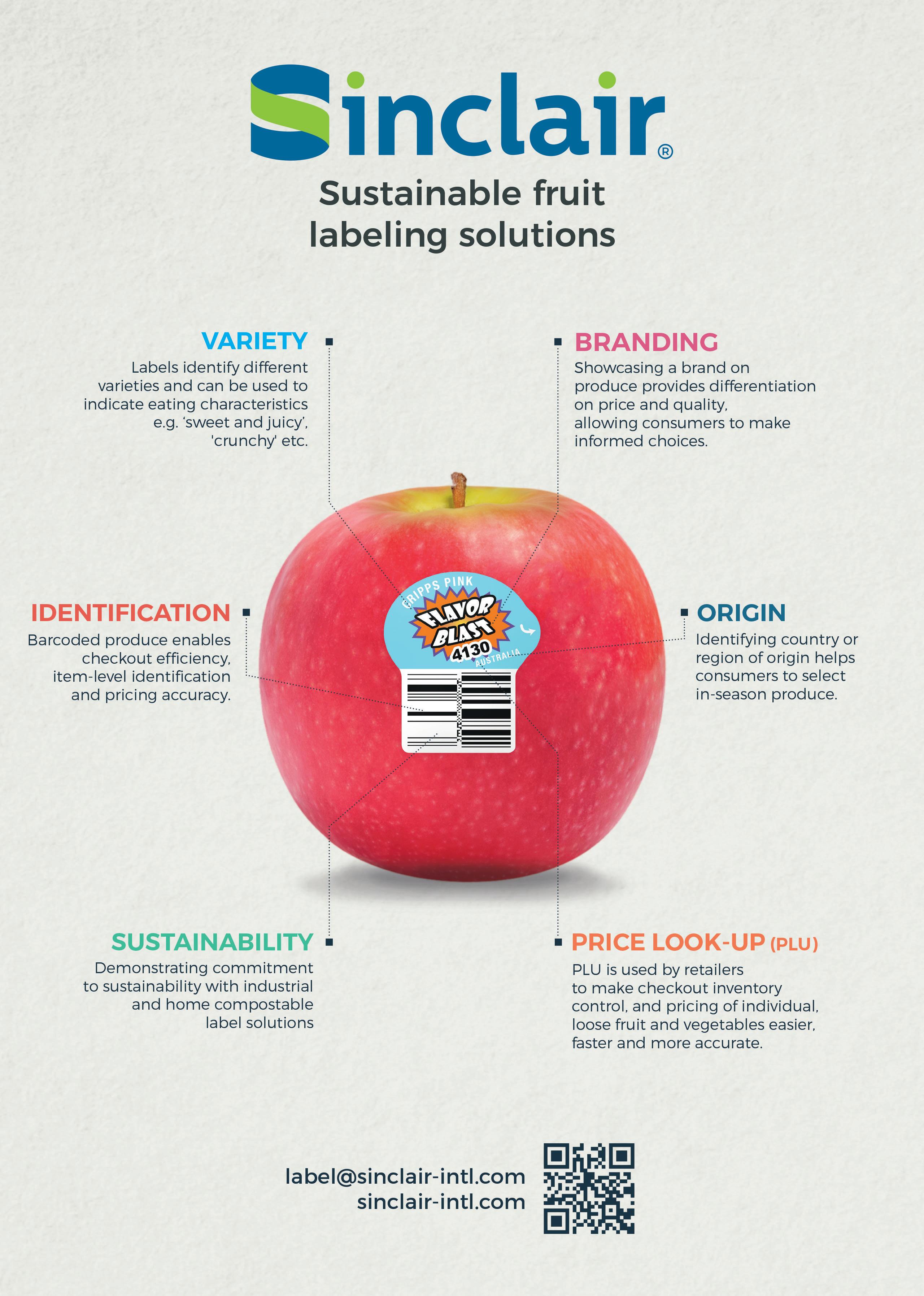
Greenhouse gas (GHG) emissions and the effect of climate change on communities around the world dominate discussions at present. In South Africa it is no different, the debate fuelled by recent climate events across the country that have affected the fresh produce export industry.
Several measures are being taken to address the issue. The Carbon Tax in South Africa forms part of national legislation released in 2019 in response to the commitments made by the country on curbing carbon emissions. These commitments were initiated by the targets set out in the Paris Agreement of 2016, of which South Africa is a signatory, that aims to limit global average temperature rise to 1.5°C.
So how does the South African agricultural industry ensure that it complies with global market requirements? The Sustainability Initiative of South Africa (Siza) says the South African fresh produce industry can play a meaningful role in advancing the efforts to limit GHG emissions and the effect of climate change.
It is also true that the industry has been proactive in its efforts to start monitoring and measuring outputs. An industry development through Confronting Climate Change, together with the Siza Digital Recordkeeping programme, allows businesses to not only measure their outputs more
effectively but enable them to have their carbon footprint calculated.
“Recordkeeping in terms of energy, agrochemical and electricity usage will assist members with calculating their carbon footprint,” says Siza’s Retha Louw. “However, it is pertinent that producers start this recordkeeping journey, because 12 months’ worth of data is required before the calculation will be possible. This recordkeeping will further assist members with illustrating the improvements made towards reducing GHG emissions.
“The Digital Recordkeeping Programme offered by Siza
is closely aligned with the comprehensive Siza Environmental Standard and greatly assists with maintaining compliance with this standard. Members can make use of the Siza Digital Recordkeeping Programme to calculate their carbon footprint via a partnership with the Confronting Climate Change Initiative, which speaks to an industry proactively collaborating in the drive towards limiting emissions.”
The Siza Environmental standard encourages its members to understand their carbon footprint and to reduce their GHG emissions as outlined under the Siza code requirements.
Louw explains that the Carbon Tax is based on the “polluter pays” principle and focuses on fuel combustion, industrial processes and fugitive emissions. Once an entity exceeds the set threshold for GHG emissions, the carbon tax will then become applicable and be dependent on the amount of GHG emissions that are emitted.
Although the Carbon Tax plays a role in driving businesses to become more aware of their emissions, the South African agricultural industry has been taking charge of the larger environmental concerns already, which is positive to see. Loadshedding also impacts decision making for South Africa and it forces the agriculture industry to be on the forefront of sustainable solutions such as renewable energy.
Siza is not only the compliance force behind South African agriculture but also the solution and the toolkit to address sustainable practices, ensuring that South African producers can maintain their access to global markets.
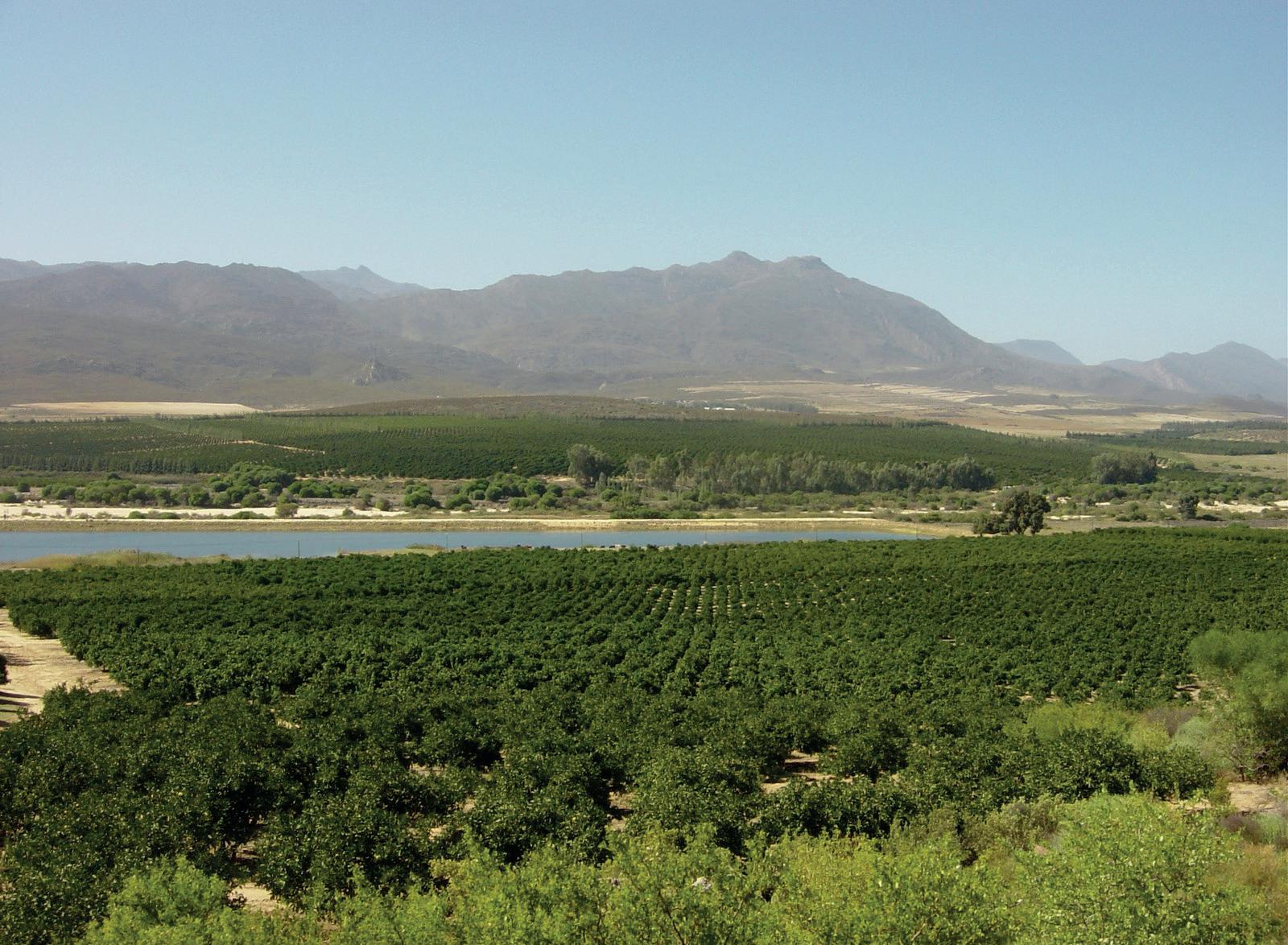
Siza and the South African agricultural industryare ready to show off improvements on their carbon footprint
through various measures.

ING Bank research suggests global consumer packaging waste is set to grow as food and drink producers face sustainability trade-offs.
by Carl Collen @carlfruitnetNew research from ING Bank’s economics team has revealed the mountain that the global consumer goods industry has to climb in its efforts to reduce waste. The research showed that countries across the world are set for an acceleration in packaging waste, despite a push for more sustainable practices among businesses and consumers.
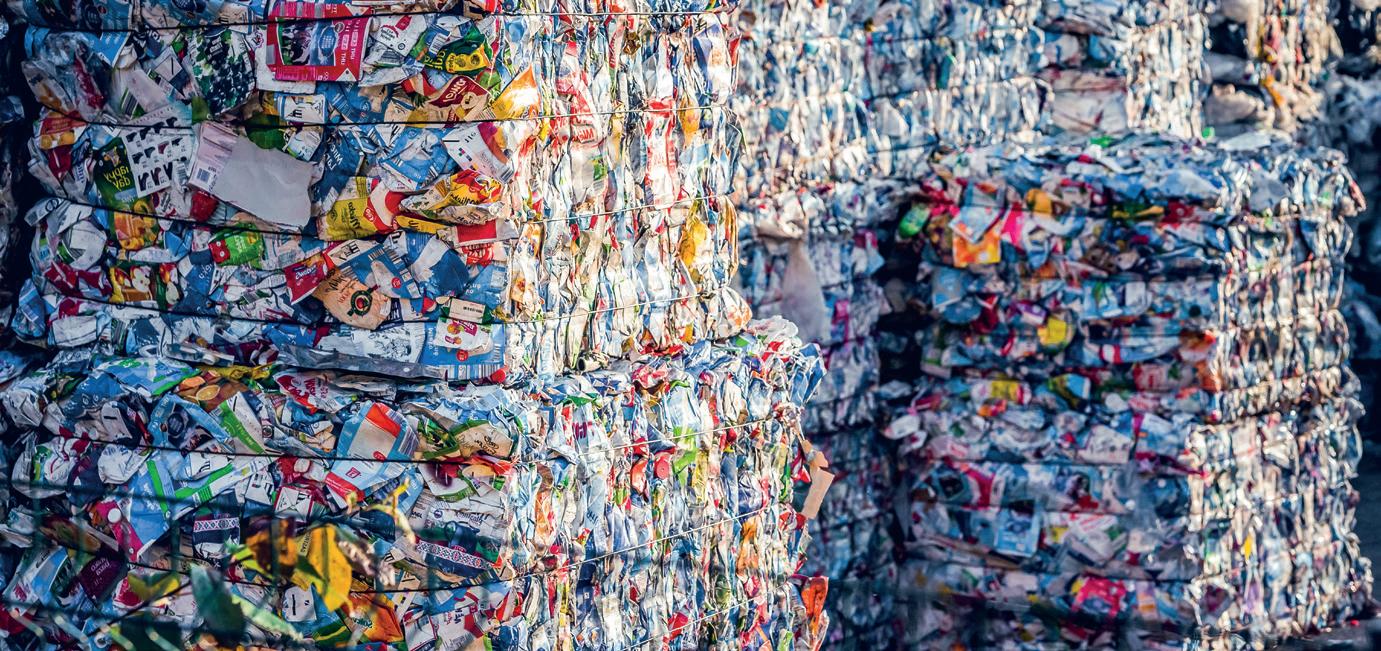
ING’s research predicted that total packaging volume for consumer
goods in the US would grow at 1.5 per cent per year on average until 2025, outstripping population growth. In Europe, packaging waste per capita is set to rise by 1.5 per cent per year on average until 2025 with plastics accounting for 30.2 per cent of overall packaging waste by 2040, up from 22.7 per cent in 2018. Africa, Asia and Latin America are also expected to see increases in usage, ING found.
The consumer packaging sustainability challenge is most acutely felt in the food and
BELOW—The debate continues over fresh produce packaging, particularly in relation to plastics
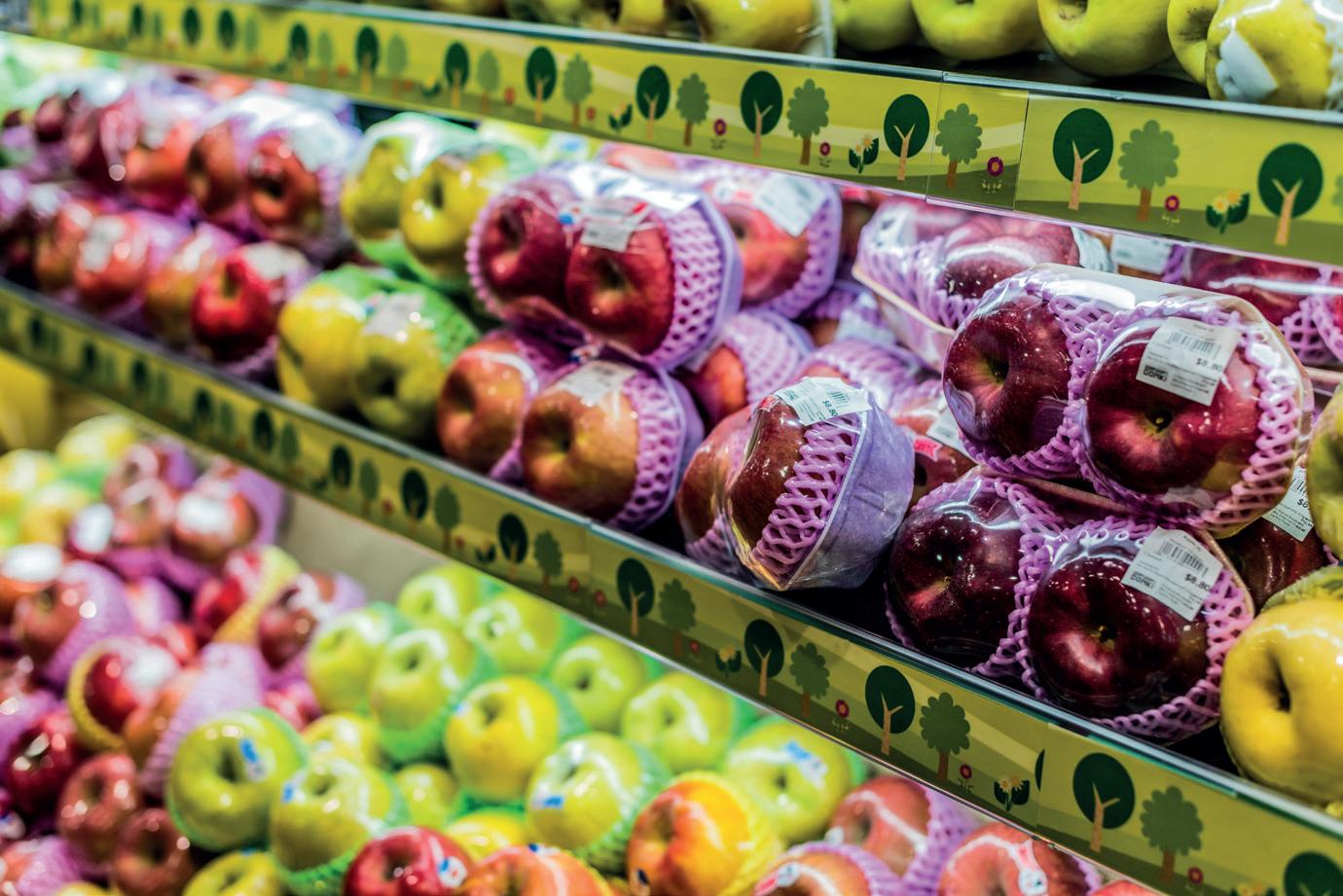
BOTTOM—In Europe, packaging waste per capita is set to rise by 1.5 per cent per year until 2025
beverage industry where growing demand for convenience products, on-the-go consumption and home delivery are leading to the increasing use of packaging material. Food and beverage packaging now represents 40 per cent of all plastic packaging in Europe.
The research, released in a new report titled ‘The sustainable food packaging choices that don’t come ready-wrapped’, explores the growing need for sustainable packaging in the food and beverage sector, the trade-offs for firms, and why major investments are needed to shift packaging production to a more sustainable future.
However, while challenges remain for the food and beverage sector, there are a number of exciting opportunities that could drive sustainable packaging adoption among companies ING said. One major beverage company estimated that shifting from bottles made from virgin plastic to bottles made from 100 per cent recycled PET reduced carbon emissions by approximately 30 per cent per bottle. New industry partnerships to develop greener packaging production technologies and more investment in recycling infrastructure could also further accelerate the industry’s transition.
“As the world grapples with the challenges of moving towards a sustainable future, consumer goods packaging waste is a significant blocker to progress,” said ING senior sector economist Thijs Geijer. “Unless words are matched with deeds, packaging consumption, waste and a lack of recycling capacity will remain a daunting challenge for the consumer goods industry’s sustainability targets.
“Right now, we continue to be concerned by the elevated costs of sustainable packaging which is stopping consumer goods companies from using less polluting packaging,” added Geijer. “However, we remain cautiously optimistic about the untapped opportunities for stronger regulation and crossindustry initiatives to reduce the environmental impact of packaging. Reducing packaging waste and plastic pollution is achievable, but failing to act on the scale required doesn’t bring us closer to a circular economy.”
Discover how to make a greater use of each drop of water and each gram of nutrient with the range of biostimulants MycoUp® and MycoUp 360®



As parents, it is our responsibility not only to provide our children with nourishing meals, but also to make choices that are environmentally sustainable
DOMINIE FEARN Co-founder of Uproar
In recent years, there has been growing awareness about the urgent need to address climate change and its devastating effects. From extreme weather events to biodiversity loss, the planet is facing a multitude of challenges, and our food systems play a significant role in exacerbating these issues. Understanding the climate impact of our children’s food, from farm to fork, is an essential step in creating a better future for both them and the planet.

Agriculture and food production are major contributors to greenhouse gas emissions. By making conscious decisions about the food we feed our children, we can actively contribute to the effort to reduce carbon footprints to mitigate the effects of climate change.
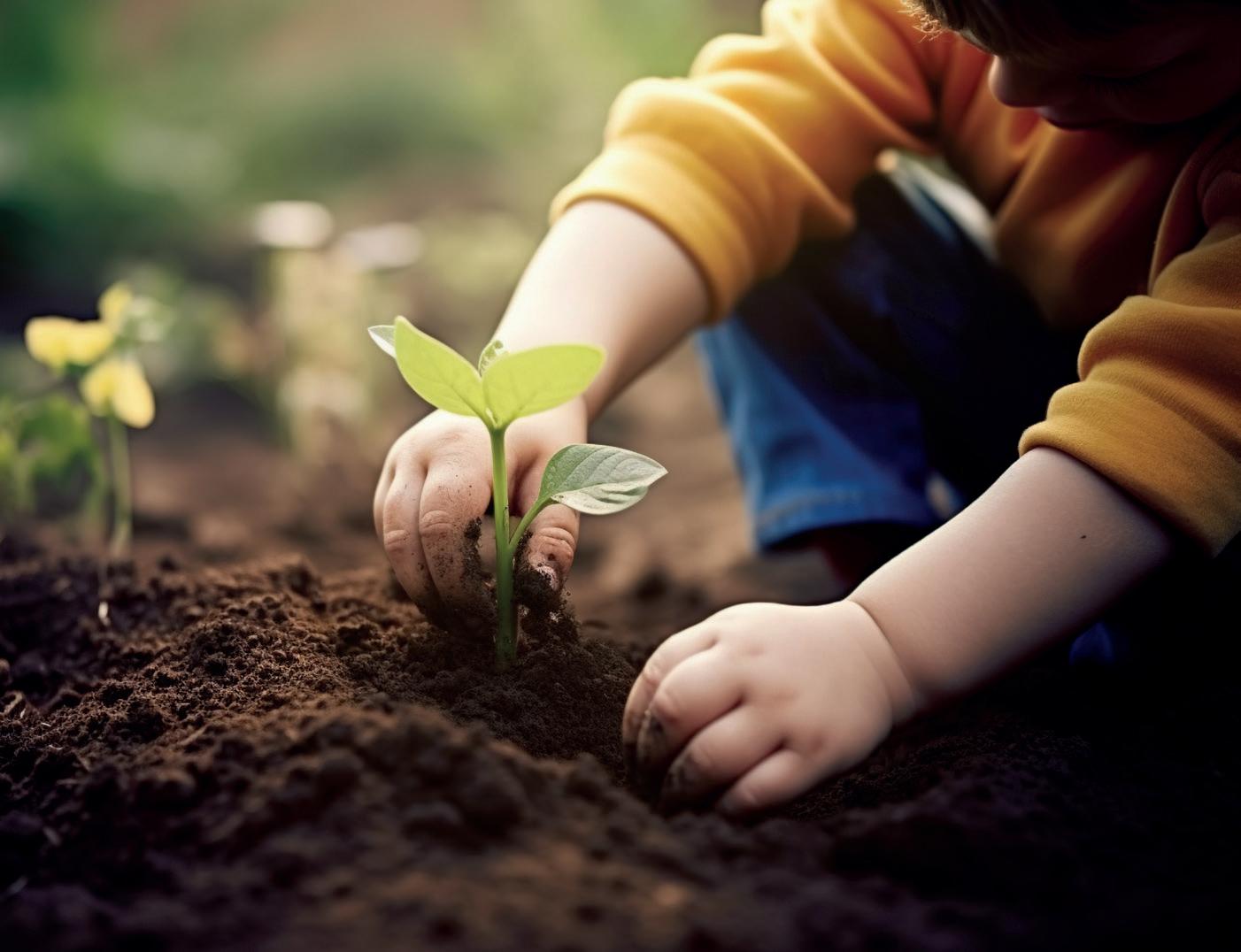
One crucial aspect to consider is the original source of our food. Supporting local farmers and choosing seasonal produce helps to reduce the carbon emissions associated with transportation and refrigeration. Opting for organic, pesticide-free options also helps to protect the soil, water, and biodiversity — reducing the negative impact of intensive farming practices.

Furthermore, it is important to consider the type of food we include in our children’s diets. Conventional pastoral agriculture, particularly meat and dairy production, is known to be a significant contributor to greenhouse gas emissions.
However, regenerative agriculture offers a more sustainable alternative, employing practices that promote soil health, carbon sequestration and reduced use of synthetic inputs. By focusing on biodiversity, water conservation and humane animal husbandry, regenerative agriculture helps mitigate climate change and protect natural resources.
Educating our children about the climate impact of their food choices is also an essential step in cultivating a sustainable mindset. Engage them in conversations about where their food comes from, how it is produced, and the impact it has on the environment. Take them to local farms or farmers’ markets, involve them in gardening or even cooking, and show them the value of sustainable practices. By instilling these values early on, we empower them to make informed decisions and become responsible stewards of the planet.
When it decomposes in landfills, food waste releases methane, a potent greenhouse gas. Reducing food waste is therefore a crucial aspect of sustainability. Encourage your children to understand the importance of not wasting food and teach them creative ways to use leftovers. By being mindful of the food we purchase, store and consume, we
can significantly reduce waste and its environmental impact.
Supporting initiatives that promote sustainable food systems is another way to make a positive impact. Stay informed about local initiatives, community gardens, or urban farming projects that focus on sustainable practices. Engage with organisations and businesses that prioritise ethical sourcing, fair trade, and sustainable packaging. By supporting these efforts, we send a message that sustainable practices matter to us as consumers and parents.
By considering the climate impact of our children’s food from farm to fork, we play an active role in creating a sustainable future for them and future generations. As food producers, we also have a big part to play in this. There has never been a higher demand for innovation and at Uproar, we are looking to combine ethically sourced meat and organic vegetables into one delectable product. Hybrid food like this is just one solution for the problems we face and, with a clear shift in consumer attitudes occurring, now is the time for food brands to put their best foot forward.
As it opens its 50th organic branded space in Italian supermarkets, Almaverde Bio says dedicated organic areas help reach new consumers.
 by Tom Joyce @tomfruitnet
by Tom Joyce @tomfruitnet
Organic fruit and vegetable sales may have experienced a general slowdown in the past year as a result of the so-called “cost of living crisis”, but Italy’s Almaverde Bio has shown that efforts to make organic produce stand out from the crowd can bring great rewards.
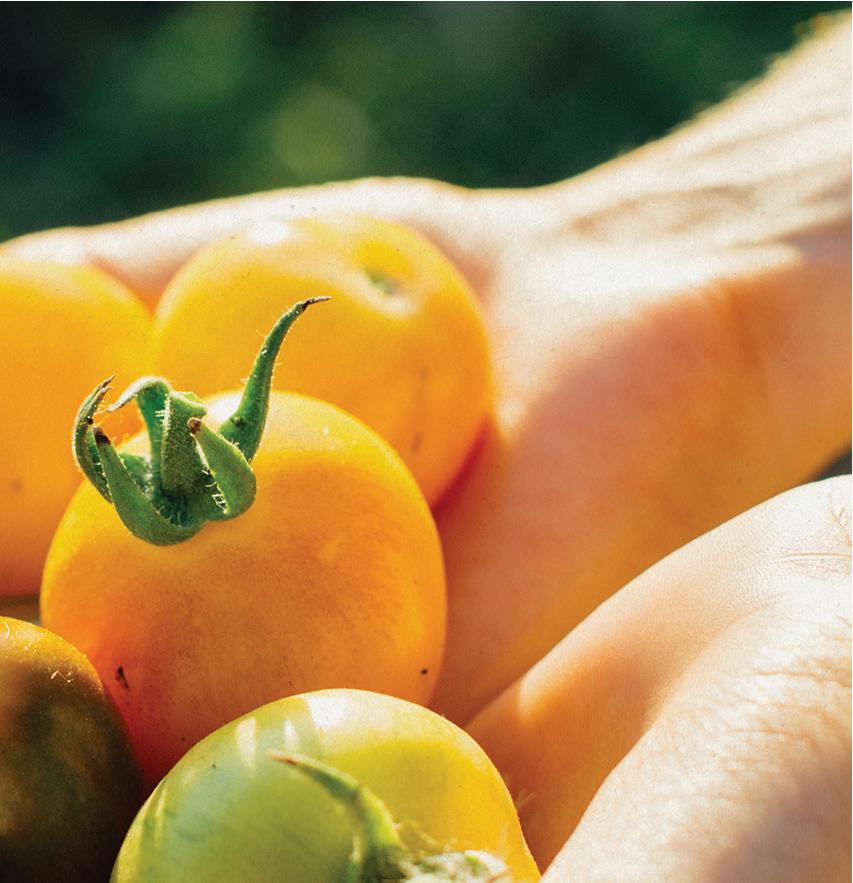
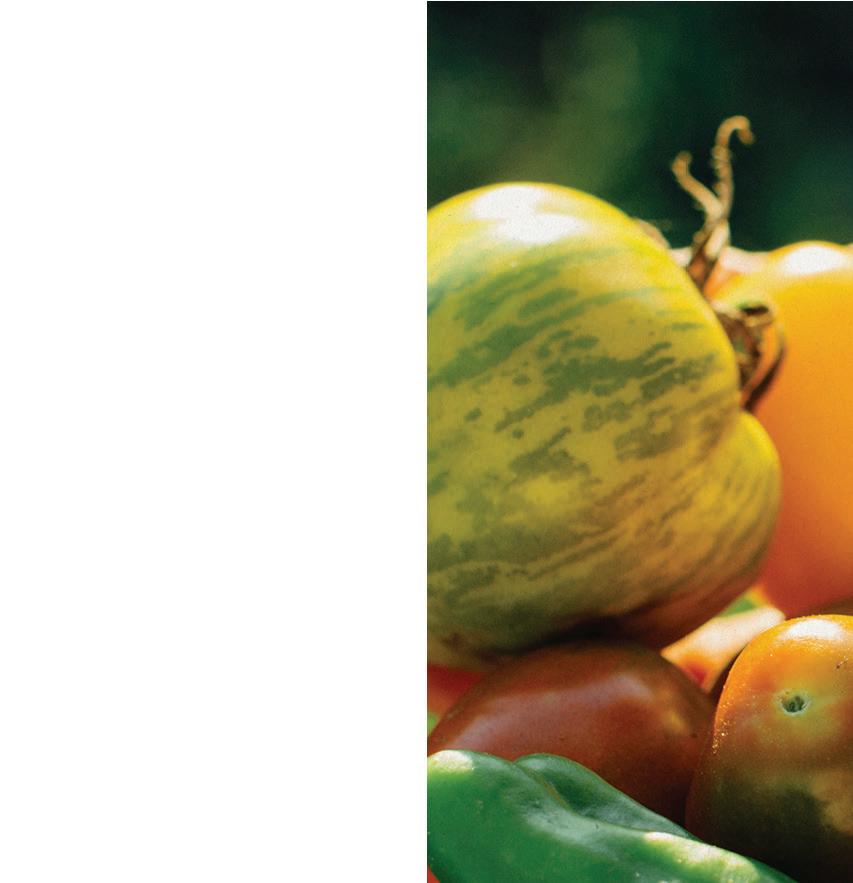
The organic company’s “Isola” project, which has seen




separated “Islands” of organic produce set up in Italian supermarkets, has been active since 2015 and has garnered positive sales, according to director Paolo Pari.
Managed by Canova, the Apofruit Group company specialising in fresh organic fruit and vegetables, the Islands are currently installed in eight Italian regions, Lazio, Emilia Romagna, Marche, Abruzzo, Tuscany, Lombardy, Piedmont and Veneto, with six large-scale distribution brands involved. May saw the opening of the 50th such Island, in Ferrara.

Almaverde Bio said the Islands should be regarded as spaces to spread knowledge and communicate on the nutritional values of organic products, as well as the benefits of organic production.
Communication activities are supported by the ‘It’s Bio’ Project of AOP Gruppo Vi.Va, providing space for animation actions at point of sale in order to reach not only loyal organic buyers but also new consumers. The project is funded by the EU and AOP Gruppo Vi.Va, with the participation of Almaverde Bio, Apofruit, Codma OP, Ca’ Nova, Coop Sole, AOP La Mongolfiera, OrtoRomi and OP Terre di Bari.

Learn more at: www.globalgap.org/biodiversity

Demonstrate your biodiversity management practices and help fulfil your corporate social responsibility pledge with the GLOBALG.A.P. BioDiversity add-on—covering soil and nutrient management, protection of water sources, pest management and more.
Belgian group joins forces with The Vegetables Chef and We’re Smart World to promote and innovate for healthy and sustainable diets.
by Carl Collen @carlfruitnetGreenyard has signed a five-year partnership with fruit and vegetable culinary reference We’re Smart, as both companies look to accelerate the active promotion of sustainable and healthy eating ”through the pure power of plants”. According to Greenyard, they will join forces to encourage consumers around the world to make smarter food choices and at the same time reduce their carbon footprint.
The groups outlined a joint ambition to accelerate the transition towards healthier diets for all, supporting consumers by sharing easy to create pureplant food experiences through a variety of channels as well as collaborating on pure-plant food innovations in the coming years.
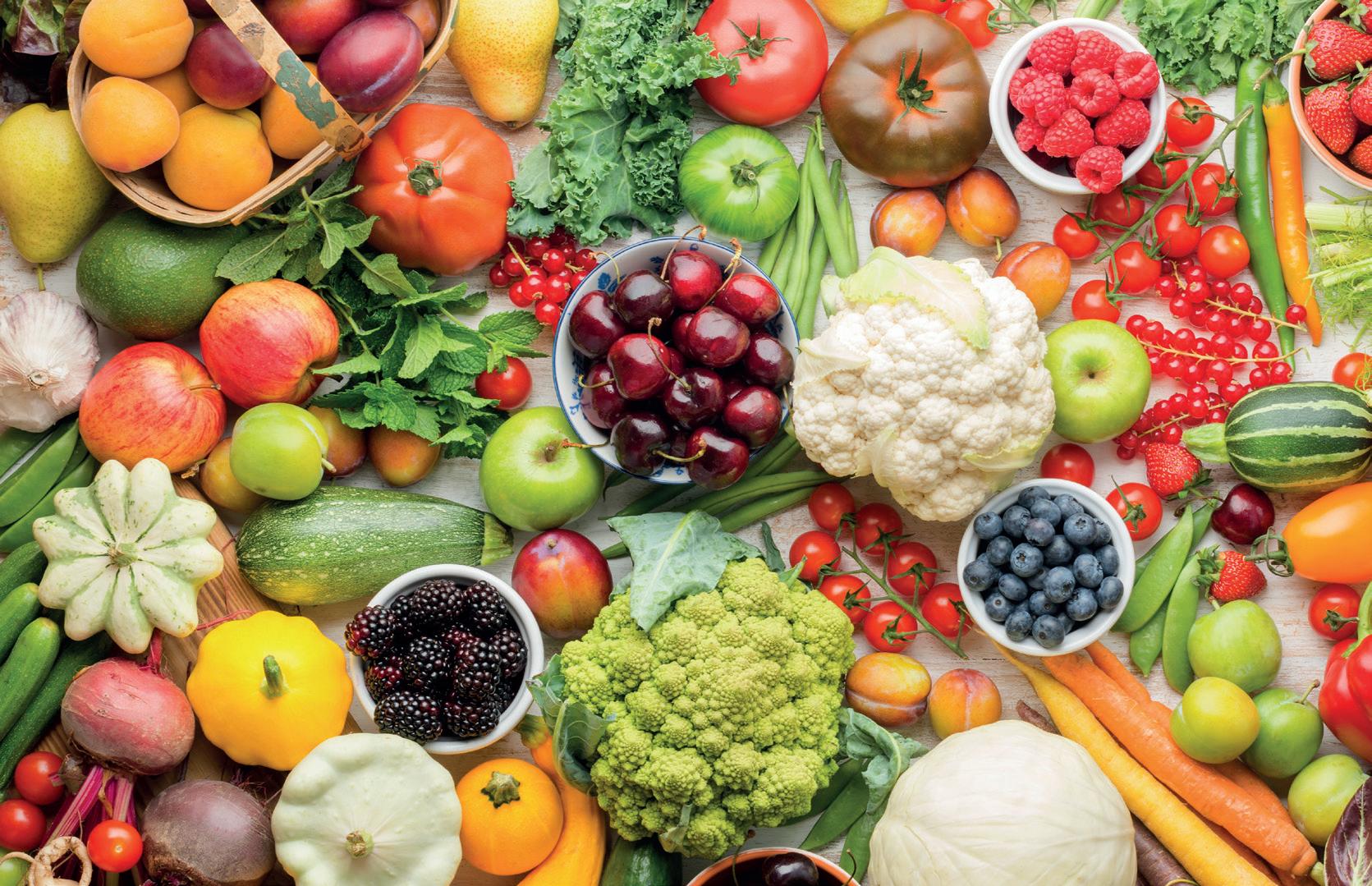
The five-year collaboration will involve a series of initiatives focused on promoting the use of fruit
and vegetables and reducing food waste. We’re Smart will provide its internal expertise and access to its global network of pure-plant food experts to jointly develop new products for Greenyard’s customers that meet consumer needs regarding pure-plant foods.
“The time is now, as the world is accelerating the transition towards a healthier and more sustainable food system,” said Hein Deprez, founder and co-CEO of Greenyard. ”Pure-plant food experiences, close to the original crop and based on the natural power of fruit and vegetables, are the only way forward for people and planet.
“Our partnership with We’re Smart is an exciting opportunity for us to collaborate with a likeminded organisation committed to promoting healthy, sustainable, and ecological food choices,” he noted. ”By combining our expertise in vegetable cuisine and sustainable food, we will inspire consumers to make smarter food choices, while reducing their own carbon footprint.”
We’re Smart, founded by
Greenyard Fresh Belgium and integrated water utilities company Pidpa have entered the final phase of their plan to install a new on-site water purification system on the former’s site in Sint-Katelijne-Waver.
The installation has an innovative biological treatment method, which will reduce its annual intake of fresh water for cleaning and rinsing fruit and vegetables by 75 per cent.
The processing water will be purified and recuperated via the installation. Combined with the existing on-site ground water extraction, the site will no longer be using city water for its operations unless necessary.
The Vegetables Chef Frank Fol, recognises and promotes individuals, restaurants and businesses that prioritise fruits and vegetables in their cuisine.
“Fruit and vegetables have never been higher on the agenda, whether it is in the debate on our climate or on our health,” said Fol. ”It is only logical that We’re Smart and Greenyard join forces. Greenyard is a global leader in pure-plant foods, reaching millions of consumers with healthy, tasty and convenient products every day.
”Together we now hope to inspire even more chefs, consumers at home, food start-ups and food service providers to put fruits and vegetables at the centre of their cuisine,” Fol added.
”Together we will further grow the role of pure-plant foods for people around the world. We will continue to bring a creative and attractive offering to the market, and thus create a more sustainable and healthier world.”
The knowhow gained from handling more than 50 different types of fruits over nearly a hundred years has enabled Unitec to develop technological solutions for each stage of the supply chain: from the field to the warehouse, to select quality, both external and internal, of each fruit according to market demands and to reduce waste from the harvesting stage, through the sorting process, up to packing and palletisation.
As a company with a strong connection to the fruit and vegetable market, Unitec designs and develops innovative systems to meet the needs of packing houses all over the world.
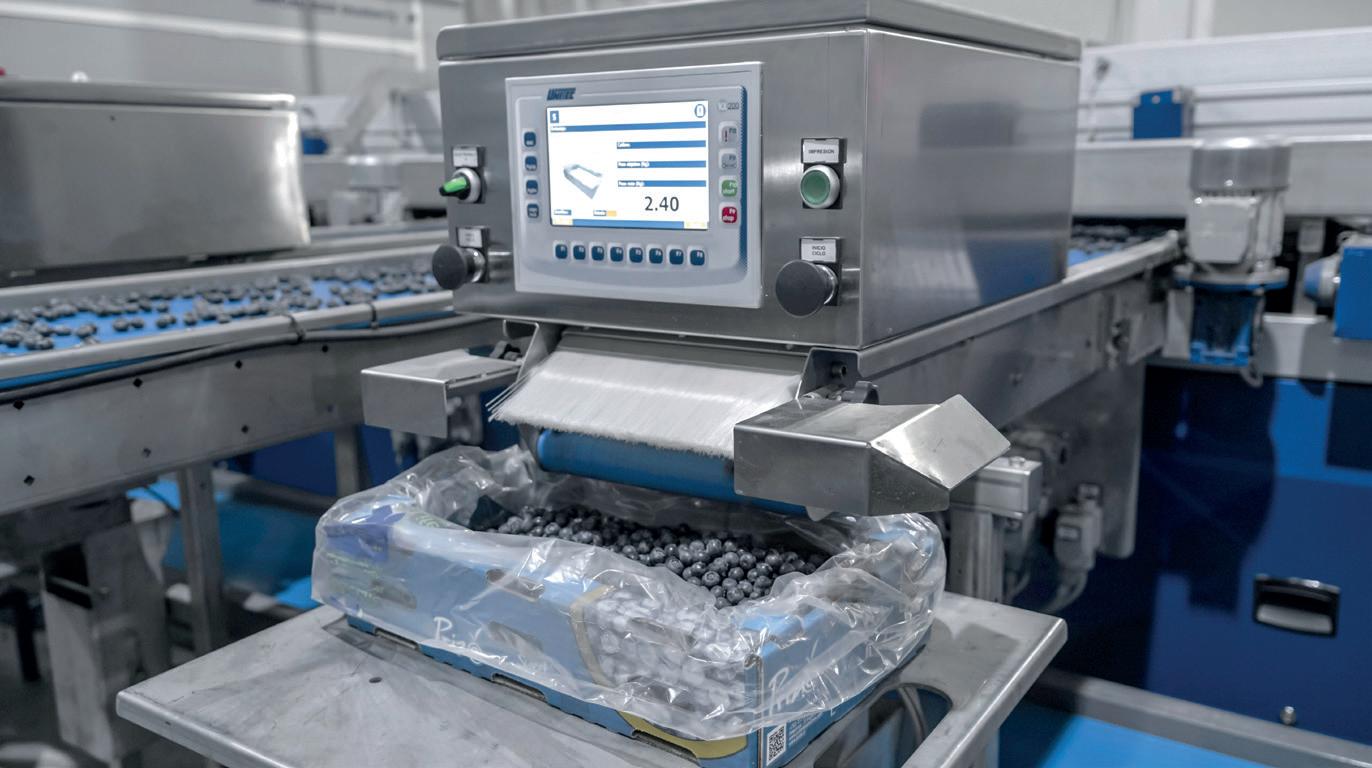
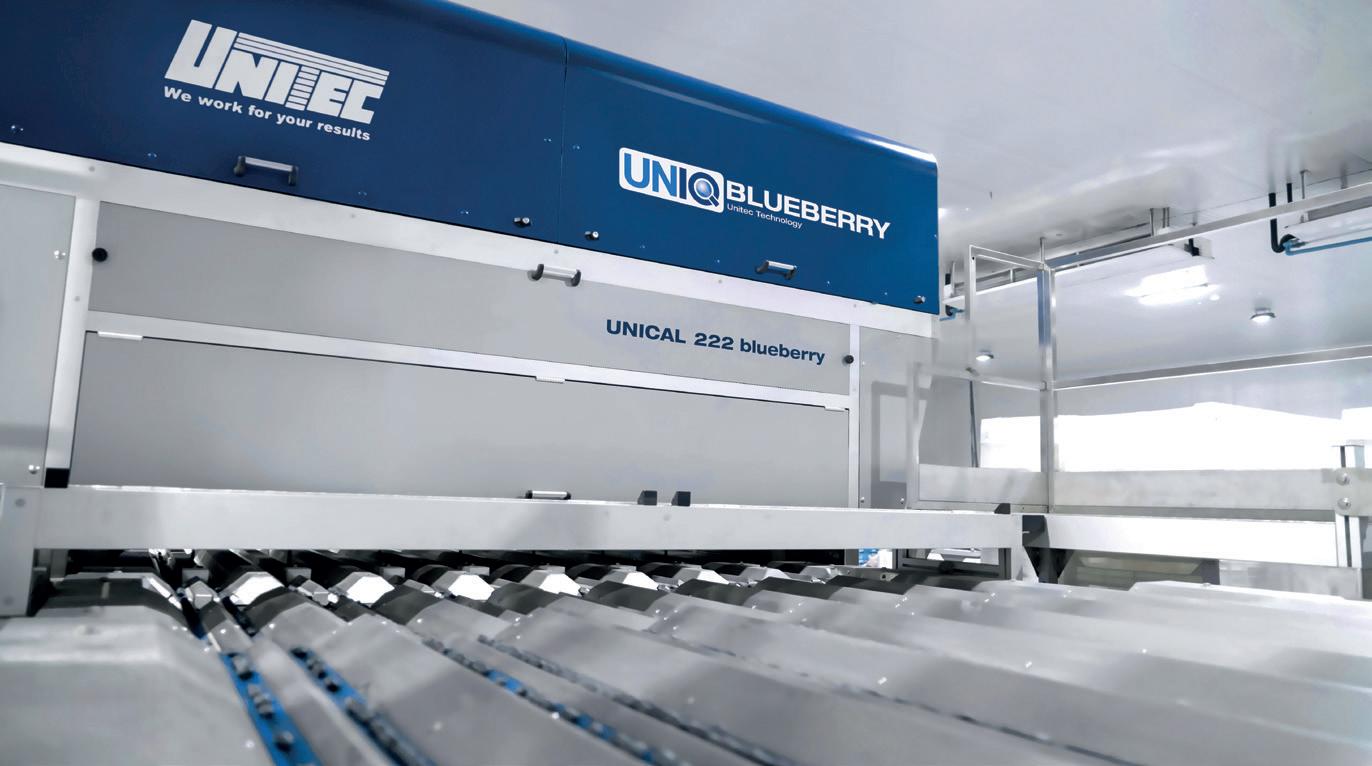
Starting in the field, operators can determine quality of fruit during the harvesting process, using Unitec harvesting platform equipped with an automatic sorting station. This provides information on the organoleptic characteristics of fruit suitable for harvest. Thus, operators can sort more than 20,000 fruits per hour, accelerating field operations with benefits also in the storage phase. In fact, by having to sort a smaller portion of unsuitable product for processing, storage and sorting costs can be reduced by approximately 5-6 per cent.
At the heart of Unitec work, also from a sustainability point of view, is the goal to provide fruit according to the quality demanded by the end market; fruit that is not suitable for immediate consumption can be destined for processing, thus avoiding waste production or excess product throughout the supply chain. Unitec designs and develops innovative systems for quality selection based on multiple combinations of independent parameters, each evaluated individually and in a variety of combinations depending on the goal of the analysis.
Vision systems such as Blueberry Vision 3 enable packing houses to scan the entire surface of each blueberry in order to select external quality parameters such as size and shape. Additionally, for a complete fruit analysis, Unitec technology solutions can be equipped with the Uniq system for internal quality selection – such as brix degree and soft product – safeguarding the integrity of each fruit.
Unitec patented solutions allow packing houses to reduce waste and decrease unwanted product while
guaranteeing that each fruit has a sustainable future thanks to a meticulous selection process. With more than 6,500 lines installed across five continents, Unitec not only allows more than 350bn fruits to be sorted per year, but it can also bring more than 45bn fruits that are unsuitable for fresh consumption to the processing market.
Proper upstream selection prevents waste production and unwanted products at the end of the supply chain. This can be avoided thanks to Unitec solutions, which allow to package fruits with consistent characteristics in terms of shelf life and flavor, not only to satisfy consumers but also for the benefit of our entire planet.
We work for your customers and for a better world.
Each fruit has its own destination: waste reduction begins in the field
For decades, Costa Rica has been a frontrunner in efforts to make banana production more sustainable, says Corbana’s Jorge Sauma.
 by Maura Maxwell @maurafruitnet
by Maura Maxwell @maurafruitnet
Why do Costa Rican bananas stand out for their social and environmental sustainability?
Jorge Sauma: For 150 years, banana cultivation has contributed to the cultural, social and economic development of Costa Rica. The industry began its commitment to become more sustainable 30 years ago. Today, for every box of bananas exported, a proportion of the price goes to fund community projects in the banana producing areas, as well as on environmental and educational programmes.
Costa Rica is also home to the first banana farm in the world to be GlobalGAP certified (then EurepGAP). In 2008 the government launched the CO2 Neutral Banana Commitment initiative and today 63 per cent of our banana area is carbon neutral. We also have 14,500ha of protected forest – equivalent to a third of our
total production area.
And in 2011 we obtained the Banano de Costa Rica PGI, which we see as another instrument of differentiation and a guarantee of a socially and environmentally friendly product. Today, the market demands sustainability and we take that seriously.
Do you think the European supermarkets recognise the need to pay a fairer price for the efforts of producing countries to grow more sustainably?
JS: The supermarkets have been cu ing the price paid to producers since 2018. It’s true that recently there has been a change in a itude, but we still have not recovered the prices of five years ago, and the producer continues to bear the increase in costs.
We’ve had several demands from supermarkets that their suppliers comply with living wage
requirements for their workers, but we do not see any clause that commits to paying a be er price for bananas. I believe the actions of the supermarkets are still not enough to reflect a sincere and true change of these important players in the banana distribution chain.
Innovation is one of the pillars of sustainability. How does Corbana encourage efforts to develop new solutions to diseases and other threats such as climate change?
JS: For 40 years Corbana has been researching how to develop more sustainable agricultural practices, test products against diseases and analyse specific problems on farms. We transfer this knowledge to the producer and as a result our productivity is among the highest in the world.
At the International Banana Congress in Miami, Corbana managed to bring together the three most important alliances seeking solutions for the Fusarium TR4 for the first time. Why was this so important?
JS: TR4 is a huge threat, affecting around 500m worldwide who depend on bananas as a source of food and income. The congress was a great opportunity to analyse the progress of different projects to develop resistant varieties, share prevention and exclusion strategies and launch common programmes to slow down the spread of the disease.
It was also important in terms of presenting a united front and highlighting the progress being made in the fight against TR4.
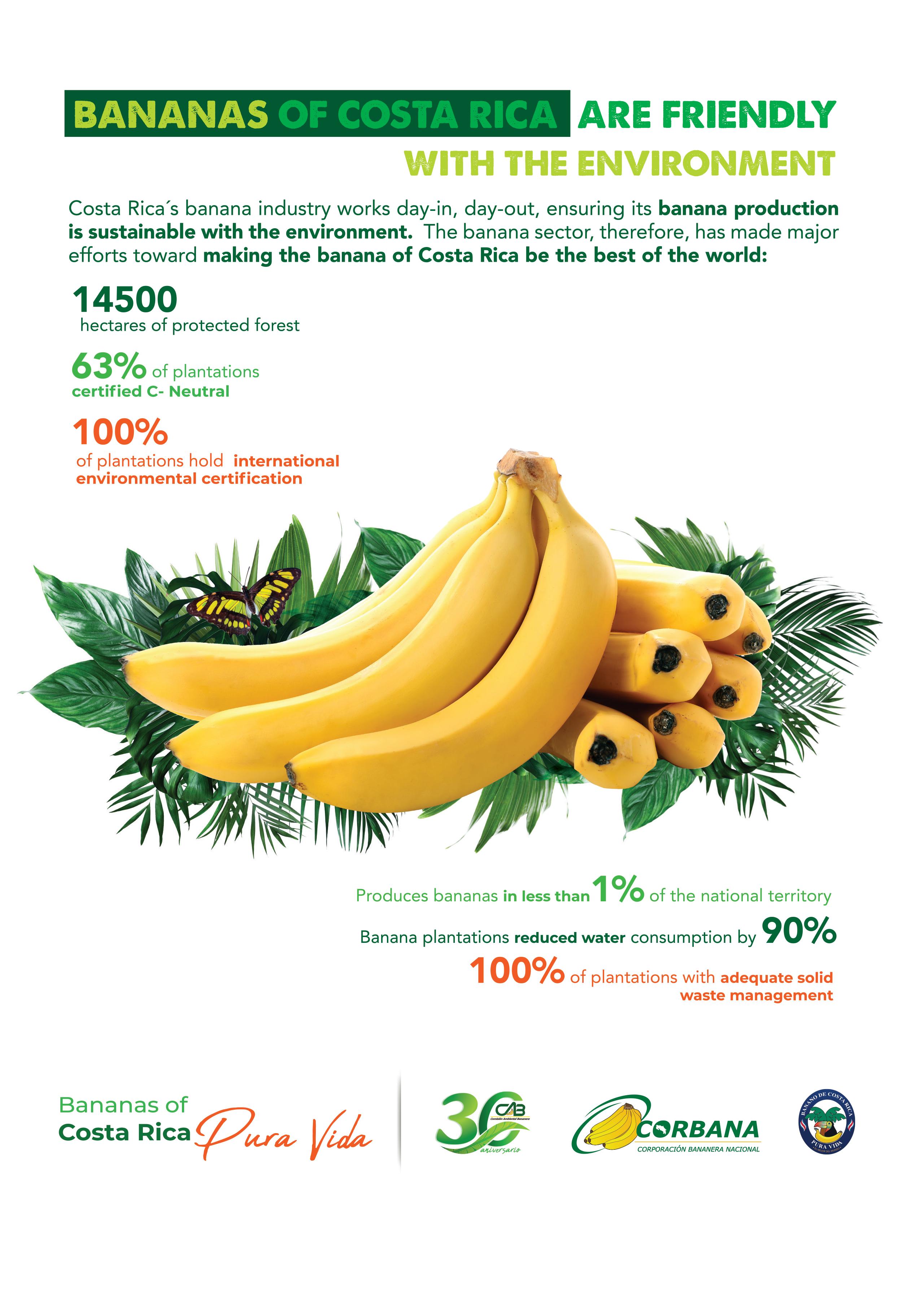
Three trends support the path to a sustainable food transition, according to Dutch grower cooperative Growers United: sustainable consumption, sustainable production and more sustainable supply chains. The group has been collaborating with its growers for years to make vegetable production more sustainable, with the aim for 2040 being to achieve “100 per cent circular, fair and healthy”.
Growers United says its aim is to continue inspiring consumers to make healthy choices and to put vegetables on the menu more frequently.
“Together, we work towards the
same goal: providing millions of consumers in Europe with delicious, sustainably grown and healthy fresh tomatoes, cucumbers, aubergines and sweet peppers every week,” says the cooperative’s commercial director Perry Dekkers. “Research shows that on average, 18 per cent of consumers in the UK see nutrition as an essential part of a healthy lifestyle. When making food choices, this group pays particular a ention to properties such as vitamins, minerals, fibre, fresh, unprocessed and natural.”
According to the cooperative, supermarket campaigns that encourage small changes to diets and exercise routines can be effective. “Giving people a subtle nudge in the right direction has already proven a highly effective tool with retailers to move consumers towards the fruit and vegetables department,” says Dekkers.

To continue producing affordable food, Growers United warns, the supply chain must collaborate and accelerate sustainable production. “Steps we need to
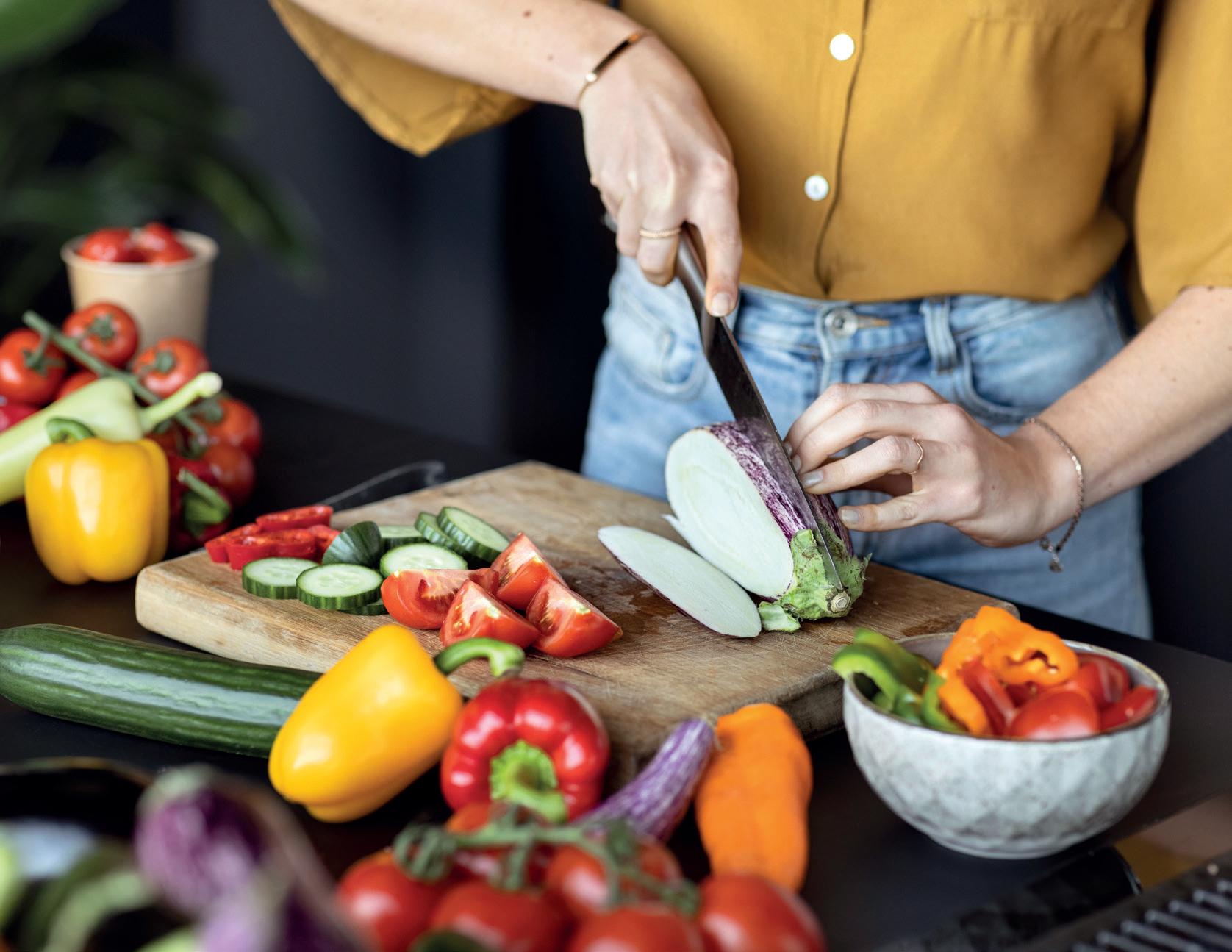
take include: more efficient use and recycling of raw materials, optimising production through automation and robotisation, and continuously focusing on the development and sustainable deployment of employees,” it advises.
As a supplier, Growers United partners with retailers in sharing market knowledge and insights that it says can give its customers an edge over competitors and improve sales results.
“High quality is the standard in this regard,” says Dekkers. “Conversely, when retailers share information from their perspective, this can encourage suppliers to develop innovative products. Information exchange and collaboration in the supply chain give us all new insights and impetus, and encourage a new vision, innovative product development and specific sales. Which is exactly what we need to increase the value of existing products.”
Growers United also cautions against making value exclusively about low prices and high volumes. “The margin will continue to decrease, eventually leaving us with nothing, or worse: a loss,” Dekkers warns. “Exchanging individual information and transparency within the chain contributes to lasting relationships from which all parties can benefit.”
PICTURED—Growers United’s aim is to inspire consumers to make healthier choices
If we are to continue producing sufficient good quality food for the global population, a sustainable food transition is required, urges Growers United.
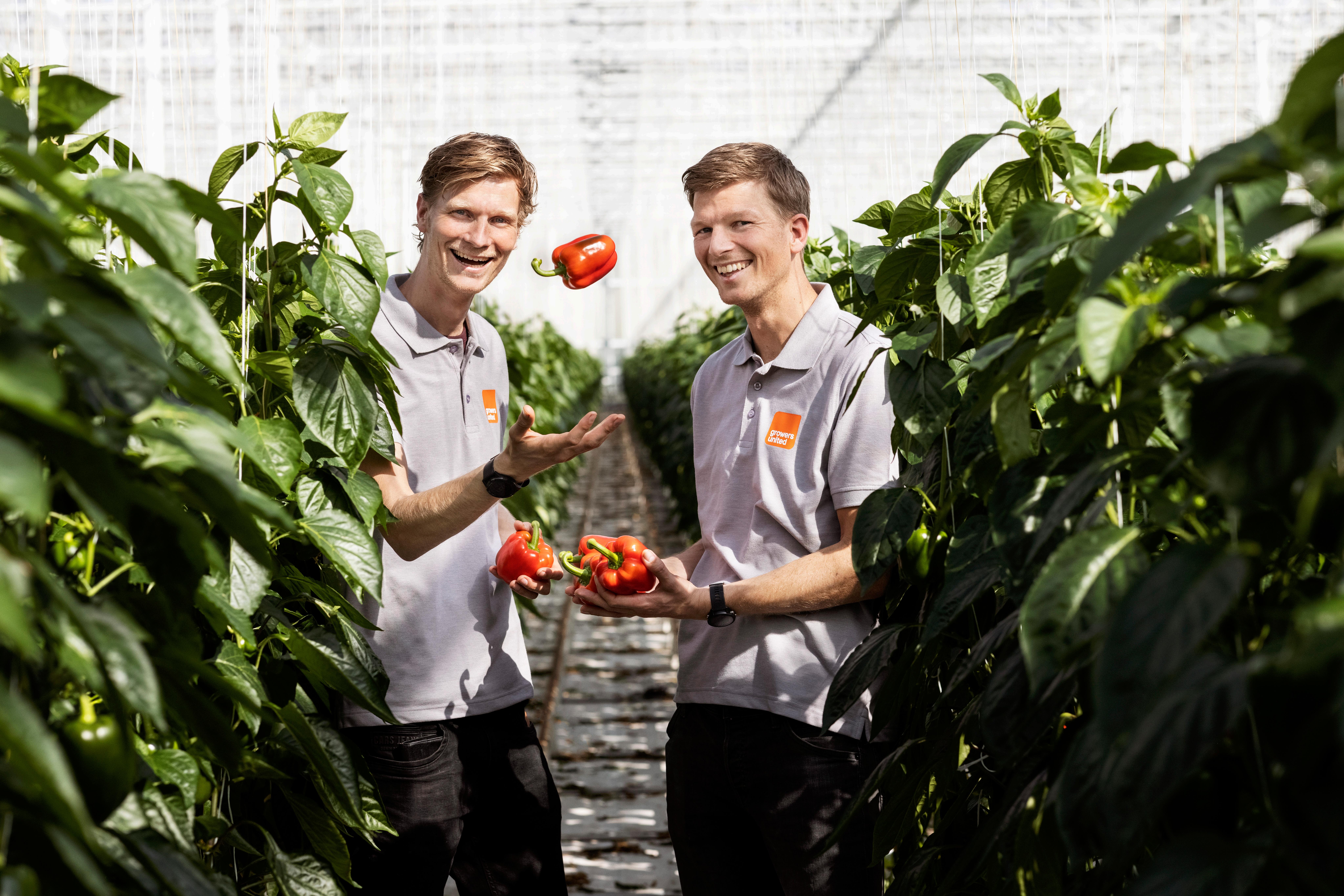

Helping the horticultural sector to bridge last-mile delivery gaps can create a sustainable business case in low and middle income countries.
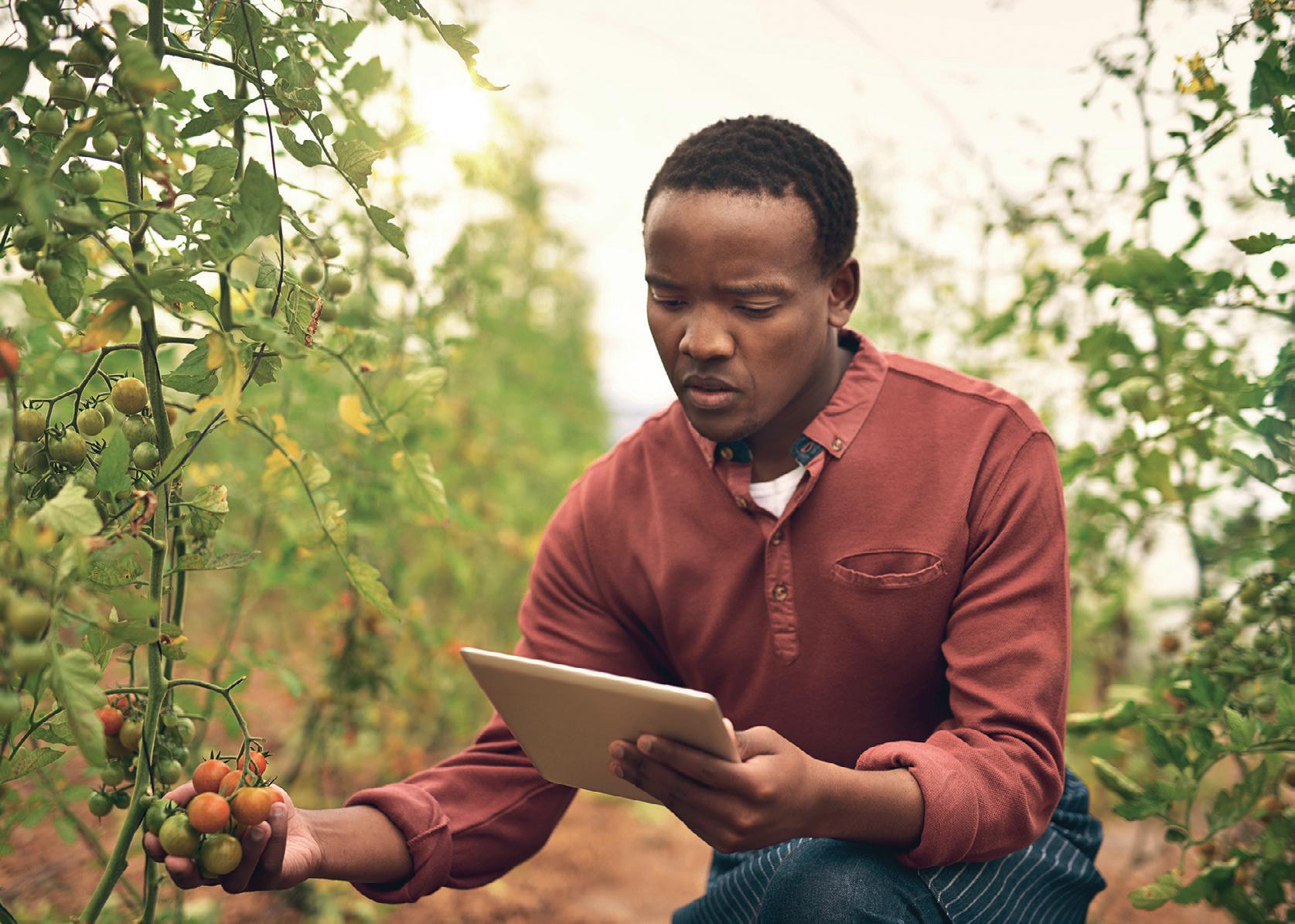
already ticking many of these ‘sustainability aspects’, as many farming systems in ACP countries are characterised by mixed farming models with limited use of inputs, limited mechanisation, and focused on local markets.
The fruit and vegetables sector is facing significant challenges due to the impact of climate change. Extreme and unpredictable weather patterns have resulted in reduced crop yields and field losses, causing concerns for food production and availability. Climate change affects fruit and vegetable production and quality directly, impacting phenology, fruit quality, diseases and pests. Rising temperatures hinder growth, reduce fruit set, and alter the content of sugars, acids, and flavonoids in crops. Some crops may experience shorter cycles, leading to a decline in perceived quality and marketable size. Furthermore, the loss of genetic diversity in horticulture crops weakens their resilience against threats. Consequently,
climate change escalates costs for the industry, decreases yields, and diminishes fruit quality, necessitating significant investments to find solutions and meet consumer demands for highquality and sufficient quantities of products.
Many international initiatives aim to channel agricultural systems towards increased mixed cropping systems, lower fertiliser and pesticide use, more localised markets, and reduced carbon emissions. With this, it must be recognised that many smaller-scale farming systems, in African, Caribbean and Pacific (ACP) countries for instance, are currently
ABOVE— Conducting an AI crop status follow-up
OPPOSITE ABOVE— Solar-powered water pumping
OPPOSITE BELOW— Intercropping has known benefits
However, the downside of such rather limited access and use of inputs and technologies, without appropriate knowledge or available alternatives together with inherent poor soil fertility and degradation in some tropical and sub-tropical zones, is that this often goes hand in hand with low attainable yields and post-harvest losses. This may contribute to poverty traps and the further conversion of natural land and the expansion of extensive agriculture. Therefore, without the right inputs and technologies, extensive agricultural systems, abundant in ACP countries, tend to suffer from nutrient deficits and pest and disease pressure rather than from nutrient and pesticide excesses seen in capital intensive, high-input agricultural systems prevailing in North America, Europe, Asia and Latin America. Questions have thus been raised as to the appropriateness and practicality of achieving food sovereignty in such contexts.
The transition to sustainable food systems is a complex task that requires addressing numerous global and local factors. Agricultural development policies must consider the diverse challenges, needs and dynamics of farms with different scales, agronomic practices and socio-economic circumstances.
Sustainable agriculture solutions cannot follow a one-size-fits-all approach and should be tailored to local contexts based on data and
metrics. This involves continuously evaluating and rethinking operational strategies to drive change over time. However, few organisations possess the capacity to translate needs into integrated solutions and provide support to horticultural companies. The aim of Colead is to support the transition to more sustainable agri-food systems by promoting good practices tailored to the local context and monitoring key performance indicators for continuous improvement.
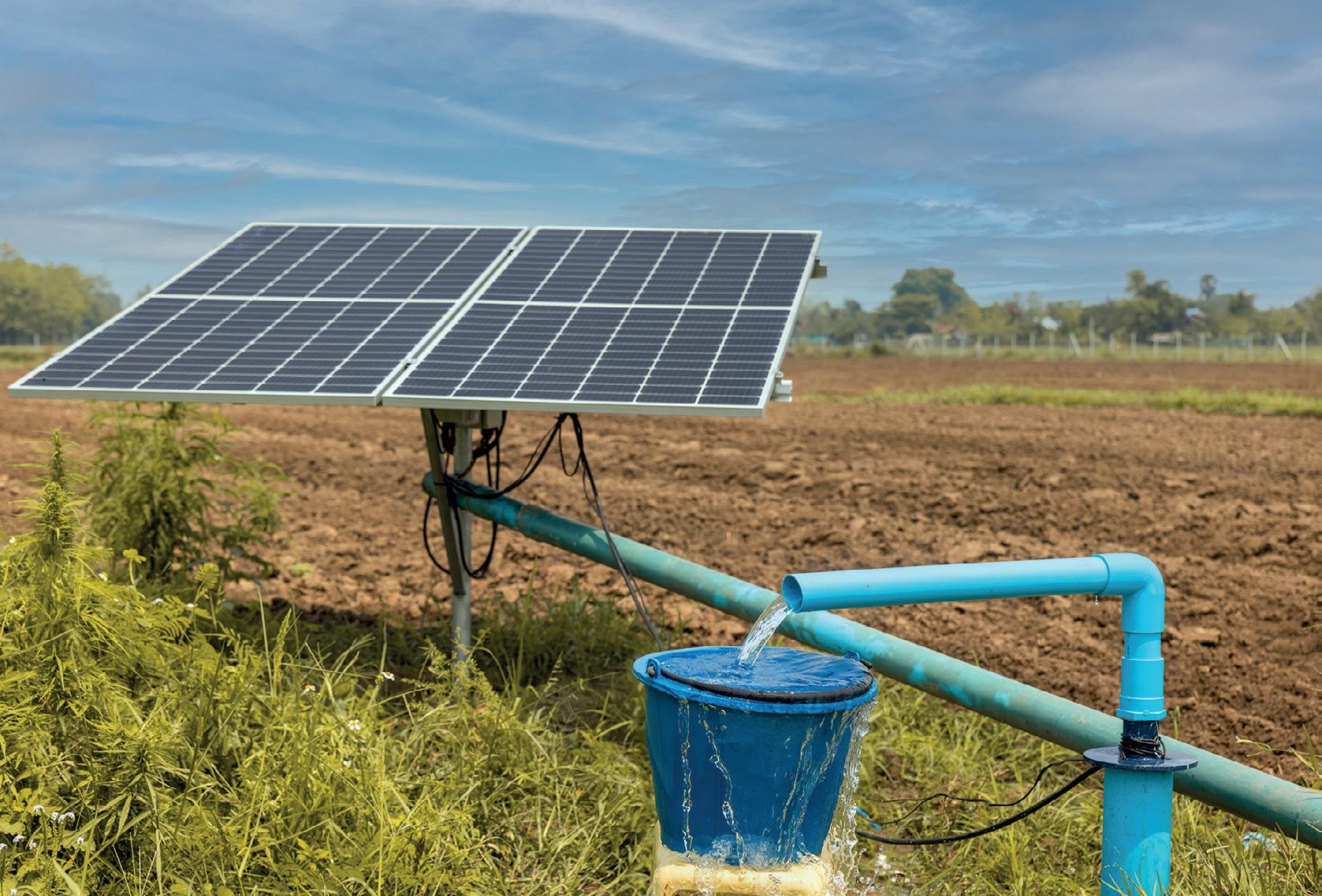
Colead, under the EU-funded programmes Agrinfo and Fit For Market Plus, supports the agrifood sector in adapting to international policy changes and integrating innovative practices for increased mitigation and adaptation to climate change. Under these programmes, Colead’s research and innovation activities focus on addressing challenges related to climate change, environmental degradation and regulatory reforms. Access to appropriate and affordable technologies is crucial for improving food production, quality, and safety.
While next-generation technologies play a role, they may not offer timely solutions at the necessary scale. Therefore, Colead’s Research & Innovation Brokerage department aims to identify existing technologies that can address these priorities and ensure their availability to value chain operators.
The fruit and vegetable industry is already implementing various strategies to mitigate the impacts of climate change. These include developing new crop varieties that are resilient to high temperatures, pests, and diseases while maintaining high yields under stressful conditions. High-tech horticulture, precision farming, and climate-
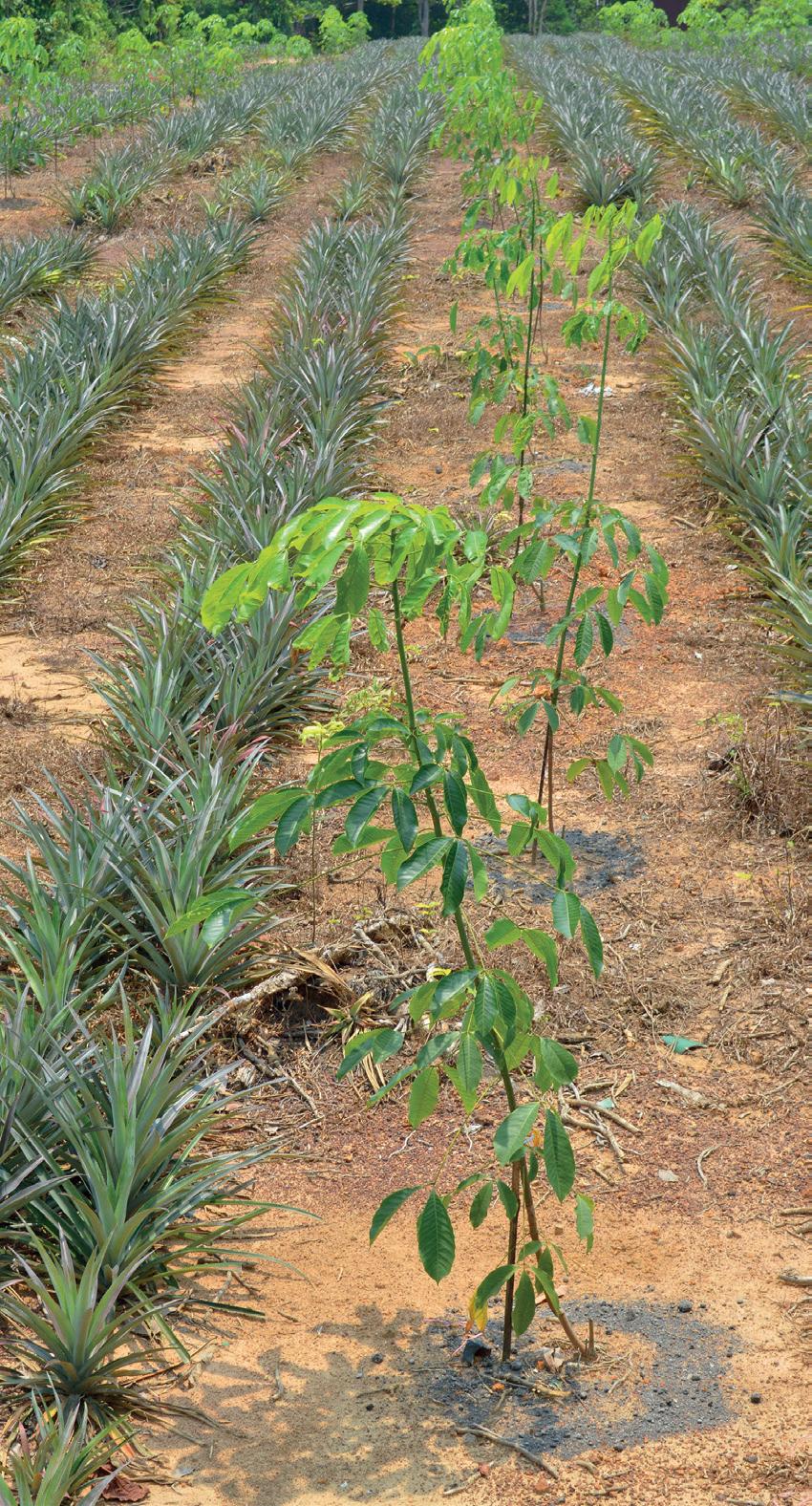
smart agriculture also offer opportunities for better natural resource management. These strategies need further support to scale up and imbed transition at food systems’ level.
To ensure widespread implementation, Colead employs blended finance to bridge the “last-mile” delivery gap, attracting private capital flows to emerging and frontier markets with support of public and development funds. Dissemination of innovations is crucial, and blended finance offers opportunities to scale up commercial financing for investments with developmental impact. As a network, Colead also seeks to increase synergies and leverage existing initiatives via partnerships to fast-track changes.
The Fit For Market Plus programme is implemented by Colead within the framework of development cooperation between the Organisation of African, Caribbean and Pacific States, and the EU. The Agrinfo programme is implemented by Colead and funded by the EU.

Biobest’s automated sticky trap system is designed to improve the accuracy and efficiency of pest monitoring.
by Carl Collen & Tom Joyce @carlfruitnet @tomfruitnetTrap-Eye, the automated sticky trap monitoring system from Dutch group Biobest, picked up the GreenTech Innovation Award for 2023.
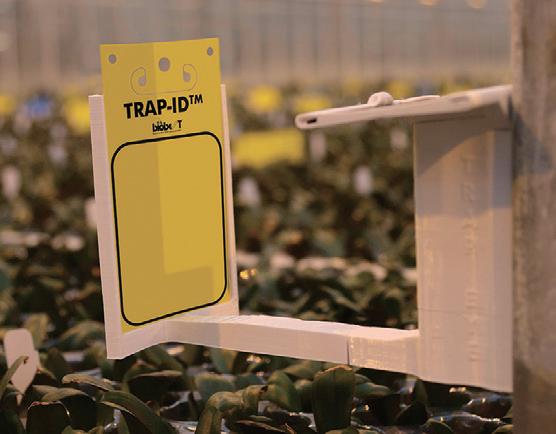
Employing a web-based dashboard, the system uses AI to make IPM scouting “automated, accurate, fast and affordable”, according to the company, providing growers with a full overview of the pest situation in their greenhouses.
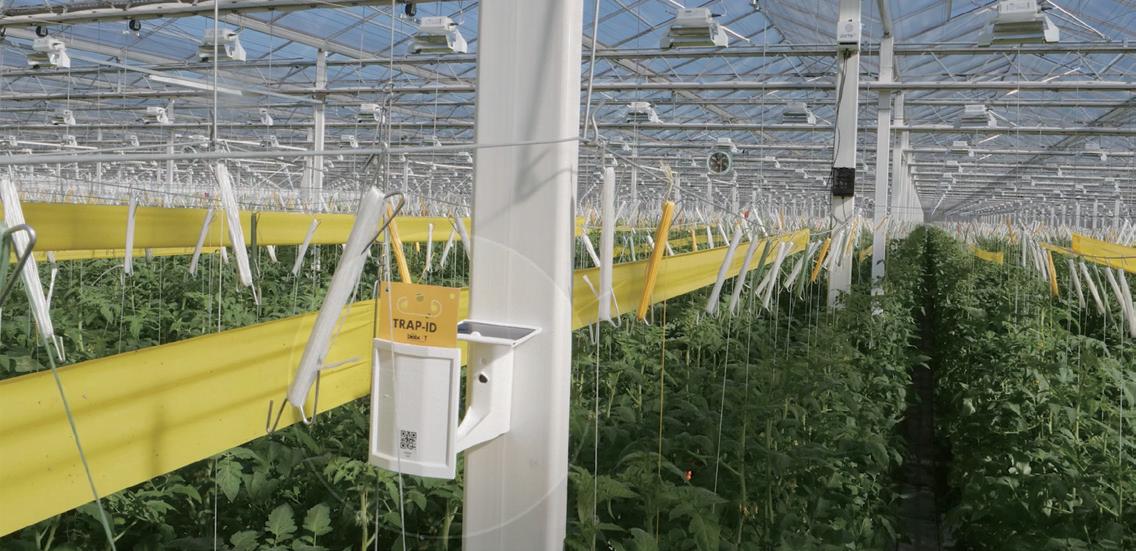
“Developed in collaboration with PATS, we’re delighted our TrapEye monitoring system has won the Innovation Award,” said Sam Gui, Biobest market development manager. “Solar powered, the fully
automated Trap-Eye system devices take pictures of sticky traps and use AI network analyses to identify and count most common flying insects.”
Biobest explained that Trap-Eye provided a solid monitoring matrix, ”greatly augmenting the accuracy and depth of data, facilitating more precise IPM decisions”. By generating accurate heat maps pinpointing pest hotspots introductions of beneficials can be concentrated appropriately, greatly improving IPM performance, the company noted.
“We can identify six different insect species, which is quite a lot,
ABOVE—Yannah Cornelis, Biobest product manager monitoring & scouting, shows off the award at GreenTech LEFT & BELOW—The Tray-Eye automated monitoring system in action
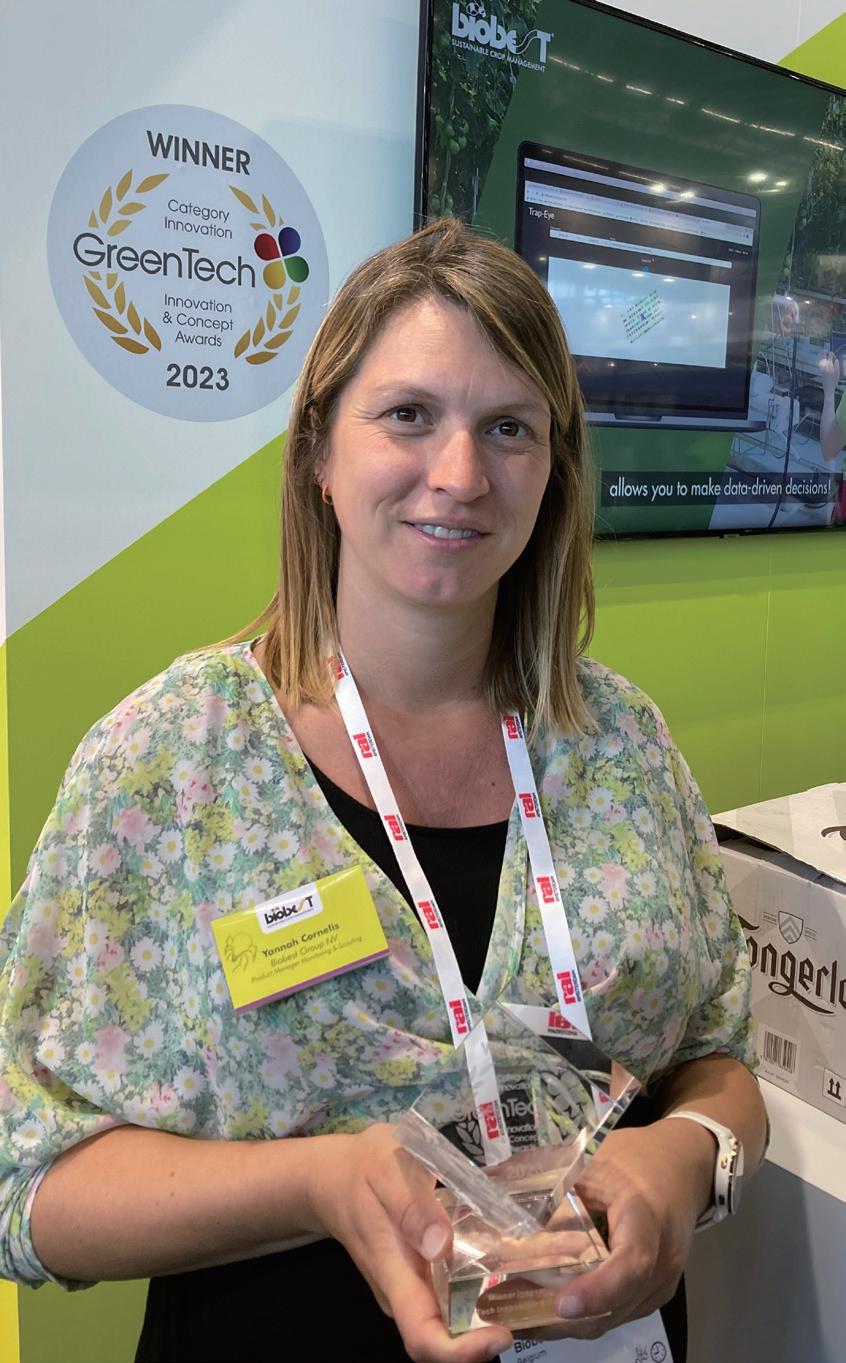
and the results are presented in a web portal, where you can see all the data,” said Yannah Cornelis, product manager monitoring & scouting. “It helps to save time and labour and gives a be er overview of what is happening in the crop. You can target spraying or beneficials at certain parts of the greenhouse, so no more blanket treatments.”
Biobest adviser Marcel Verbeek is overseeing the first Trap-Eye installation at a 90ha tomato nursery in the west of the Netherlands. In 2022, Trap-Eye was installed in 1ha of a 4ha artificially lit crop. Impressed by the monitoring accuracy and labour-saving potential, the grower extended this to 3ha within two months, according to Verbeek. “The team has found it easy to install, simple to use and the detailed heat maps extremely useful for making informed IPM decisions," he said, "with data easily shared amongst team members and with Biobest advisors remotely.”
“Trap-Eye is an important step towards our goal to automate and optimise data collection,” added Gui. “Good IPM actions follow from data-driven advice. By helping to control pests earlier Trap-Eye helps minimise production losses while reducing the need for chemical insecticides. Ultimately, our high-tech system is set to reduce scouting costs, while at the same time optimise crop yields and quality – delivering a good return on investment.”
The Dutch crop protection specialist showed off various sustainable solutions at GreenTech, including its new Spidex Vital Plus and Natutec Drive delivery system.
 by Tom Joyce @tomfruitnet
by Tom Joyce @tomfruitnet
Spidex Vital Plus, from Dutch crop protection company Koppert, has been specifically developed to build up defence lines to control spider mite infestation in greenhouse crops such as tomatoes. Through an innovative rearing system, the Phytoseiulus persimilis predatory mites multiply in their sachet ecosystem and disperse into the crop over a period of several weeks, feeding on all life stages of the twospotted spider mite.
“We are highlighting this new
product here,” said the company's Roos van Velzen at GreenTech. “It is a spider mite control sachet. It's very special because for many years it was not possible to rear this in a sachet. It is very easy to use. In the tomato crop you just hook it on.”
By placing the sachets strategically, hotspots of spider mites can apparently be enclosed, preventing their further spread and eventually eradicating the pest entirely.
“We also have our Natutec Drive system,” said Koppert's Kyra
Moor, “which is mainly used for strawberries. It is very popular in the UK. It drives through the crop while the predatory mites are sent out through tubes, covering four rows at a time. It saves a lot of money, because otherwise you have to do it by hand.”
According to the company, Natutec Drive applies Koppert's products evenly and accurately over the crop to deliver uniform distribution and maximise their efficiency, reducing labour needs and human contact. “People are o en the ones that spread pests and diseases,” explained van Velzen. “And with the tomato virus, that's an important consideration.”
Koppert also presented its Natutec Scout device at the show. “This allows us to scan sticky traps,” said van Velzen, “and now we can automatically count trips and whitefly. But we want to cover more pests. We have a big team working on this. It uses AI so it is selflearning, but first we need a lot of data to add more pests. We see a lot of competitors are doing the same, so we're curious to see whose will be the best.”
“It is important to continue to promote to growers that everything needs to be in balance for good plant health,” added Moor. “So we need the substrates, the light, the water, the crop protection – everything's connected. We are also working with our competitors like Biobest, together with Wageningen University for example, to improve crop protection in general. That's really important because I think we can learn from each other.”
Neom Food’s Dr Juan Carlos Motamayor says he is confident we can develop the solutions needed to grow crops in conditions of extreme heat and water scarcity and create a more sustainable world.
 by Tom Joyce @tomfruitnet
by Tom Joyce @tomfruitnet
The future of food is the future of mankind, according to Dr Juan Carlos Motamayor, executive director of Neom Food, speaking at the GreenTech exhibition in Amsterdam.
In large part, he said, the future will be shaped by how we produce, process and consume food in the age of climate change.
“Most modern agricultural practices were developed at a time when climate change was not the reality it is now,” he said. “Now, the agricultural model is making climate change worse, and climate change in turn makes our current food production model unsustainable. It’s a vicious circle that we urgently need to break. We must produce more with less. Less land. Less water. Particularly in arid conditions like in the Middle East.”
Neom is a region in the northwest of Saudi Arabia facing the sort of extreme climate that more and more countries are expected to face in the near future, making it ideal for testing future-focused methods of food production.
“At Neom Food, we’re a fastgrowing, international community of innovators, entrepreneurs and
scientists who are developing, testing and commercialising new ideas and new technologies to develop future-forward industries that tackle the key challenges humanity is facing today,” said Motamayor. “We’re fortunate that our region is a living laboratory and testbed, where we have the freedom to try out new approaches to living and working, including all aspects of the food chain – from production to consumption.”
The focus is to learn how to grow crops efficiently in desert conditions, using production systems best suited to extreme heat and water scarcity.
“We are currently piloting large-scale technological projects to test various combinations of technology that will lead to food self-sufficiency and mitigate climate change by reducing food
miles,” explained Motamayor. “A crucial aspect we are addressing is the efficient use of water. Due to resource overuse and climate change, the gap between global water supply and demand is projected to reach 40 per cent by 2030.”
As such, Neom has excluded the use of natural aquifers, instead relying on desalinated water, but this of course adds to production costs.
“The challenges we face are daunting,” conceded Motamayor, “but they are not insurmountable. With creativity, collaboration and commitment, we can develop the solutions we need to grow crops under extreme heat and water scarcity, to adapt to and mitigate the impacts of climate change, and to create a more sustainable and equitable world. The future of our planet, and of all life on it, depends on our actions today. Let’s rise to this challenge. Together, let’s grow tomorrow’s agricultural system.”
“In large part, the future will be shaped by how we produce, process and consume food in the age of climate change”
For the fresh produce industry, quality control has always been a thorny issue. The industry now faces additional challenges in balancing commercial pressures, consumer expectations, and increasingly urgent sustainability concerns. And traditional, manual methods can only offer diminishing returns.
In this article, we will explore the benefits of artificial intelligence in fresh produce quality control and production. In particular, we’ll take a look at how AI solutions can make these processes both more efficient and more sustainable, enabling much-needed improvements to the industry at large.
The fresh produce industry has a waste problem. We know that the annual waste of fresh produce amounts to around US$900bn, representing approximately 45 per cent of grown fresh fruit and vegetables.
We also know that the majority of that waste sits upstream at the supplier level, from grower down to the wholesaler segment. What is urgently needed is a way to make production and evaluation more efficient and more accurate, free of
human dependencies and biases.
In addition, it’s essential for sellers and buyers to work to a set of unified benchmarks on which both can depend, in order to reduce rejects, price negotiations and quality mismatches.
Integrating AI into fresh produce quality control makes all of this possible, to a degree that could only have been imagined in the past. AI systems enable greater speed, consistency, objectivity, and ease of use compared with traditional methods.
Systems now exist that can accurately identify defects, reduce waste, extend shelf-life, and prevent harmful produce from reaching consumers. By harnessing AI, the industry can significantly improve efficiency and ensure high-quality products, while reducing the environmental and commercial damage caused by waste.
The waste problem is well known, but the industry’s sustainability woes don’t end there. Refrigerated transport has a significant carbon footprint, making supply chain optimisation an urgent priority for the fresh produce industry.
Here, too, AI is already having an appreciable impact through datadriven inventory management and real-time monitoring that enables the exclusion of sub-par produce from transportation routes.
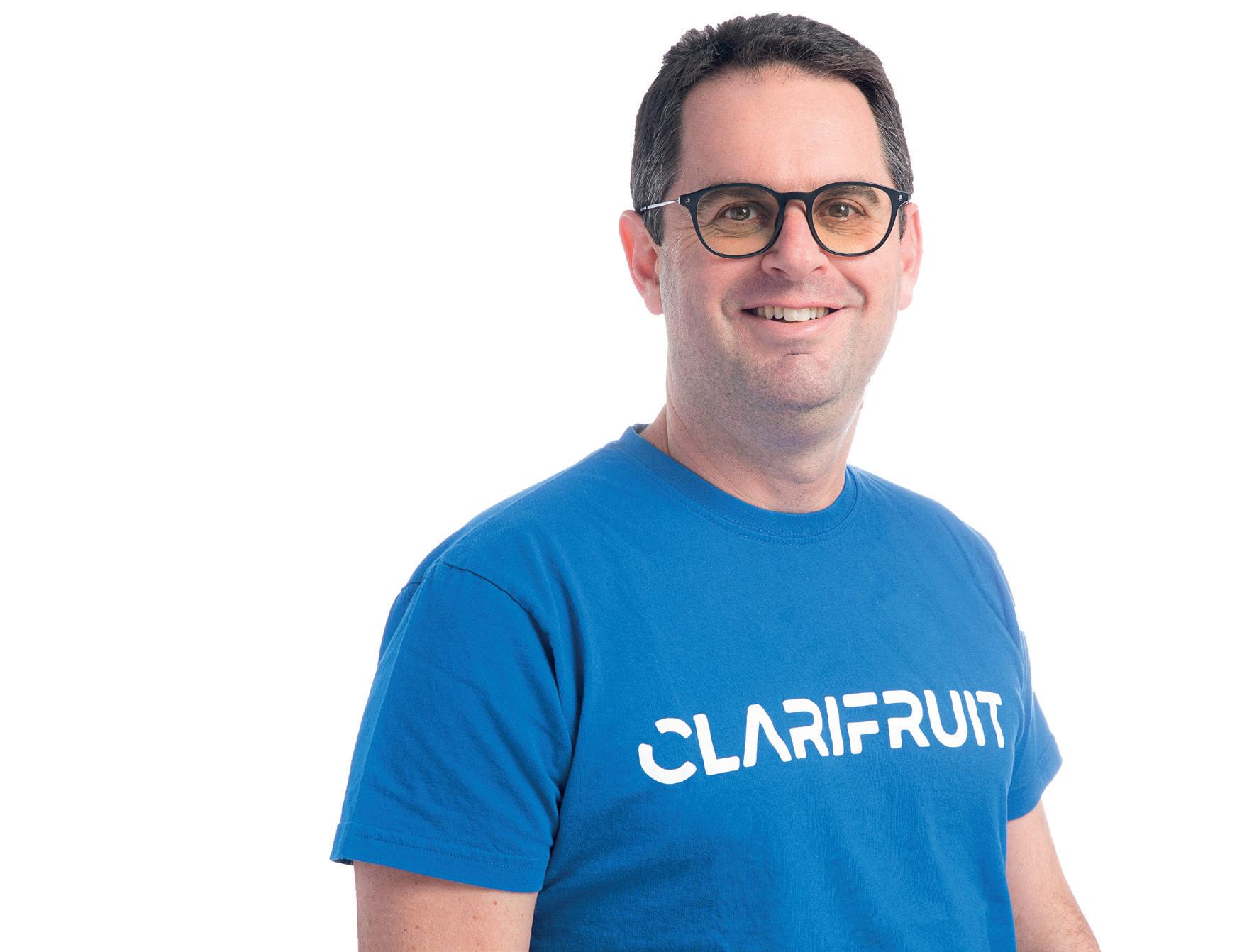
We foresee an AI-led revolution in fresh produce quality control. Ongoing research
in AI and big data analytics holds promise for improving the performance of sustainable agriculture supply chains.
Continued innovation and investment in AI technology are essential for further advancements in the industry. By optimising growing conditions, minimising waste, and improving transportation efficiency, AI plays a pivotal role in promoting sustainability in the fresh produce industry.
To support these efforts, it is crucial for stakeholders to invest in AI technology and embrace sustainable practices. By doing so, we can scale the production of high-quality fresh produce, without scaling the industry’s ecological impact.
Harnessing artificial intelligence offers a real way to guarantee sustainable fresh produce quality control.


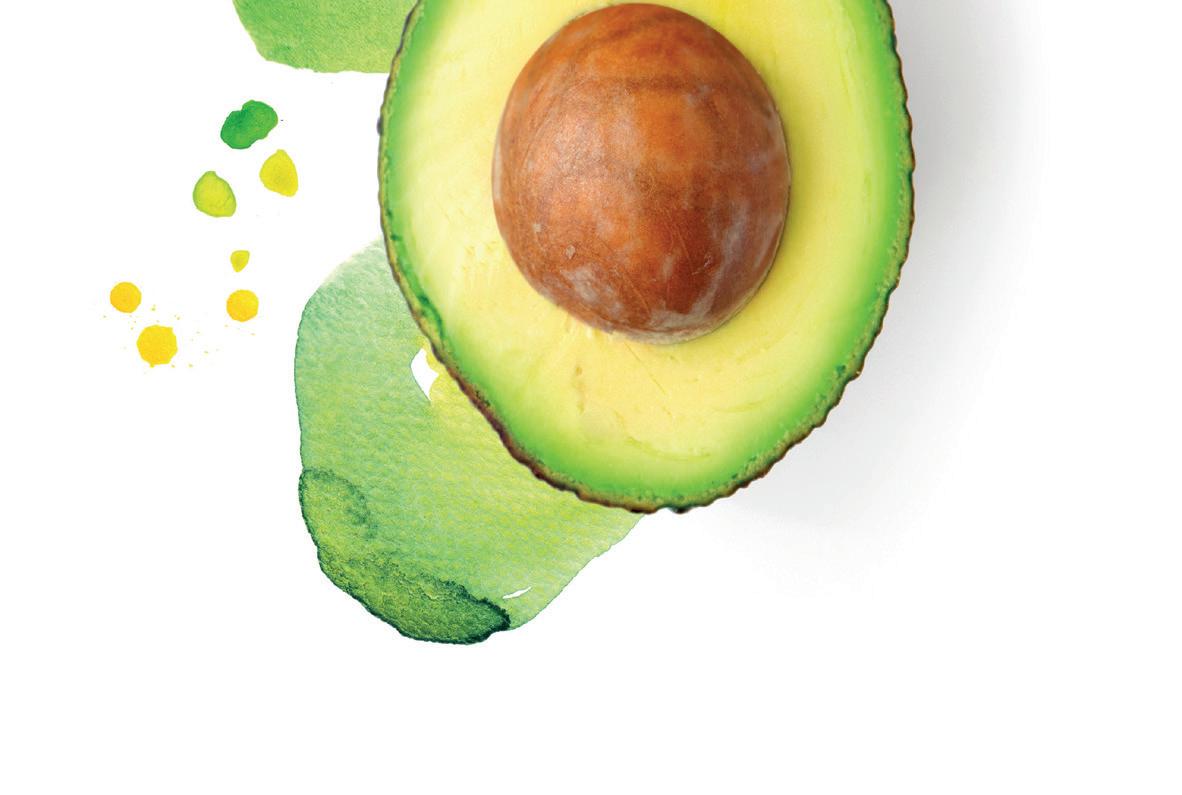
















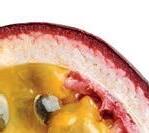


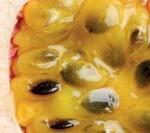

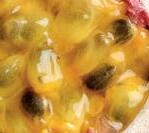
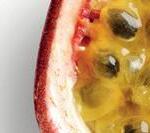

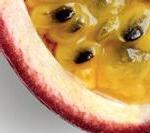












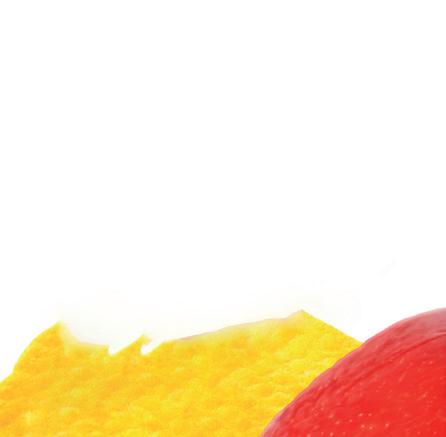
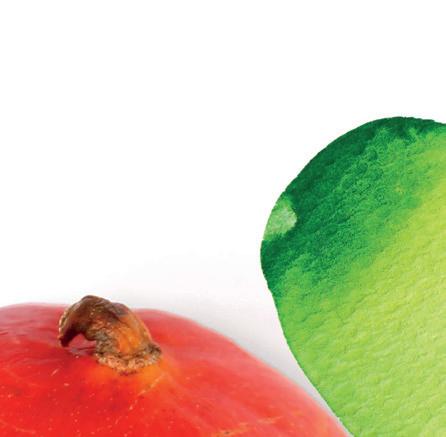
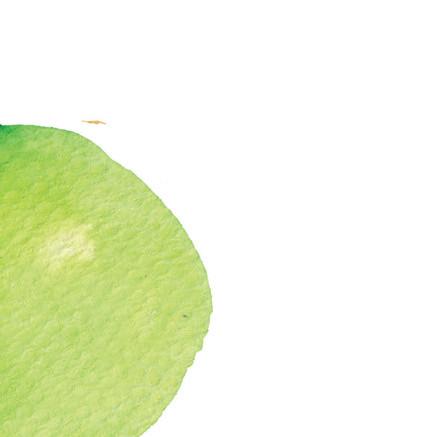
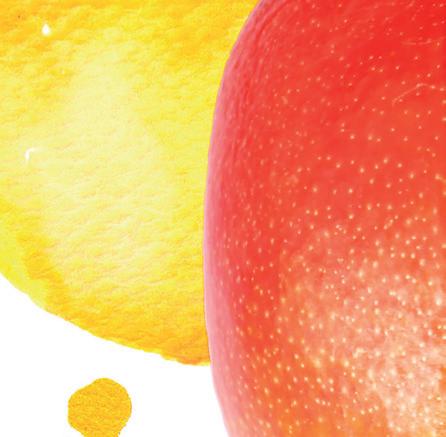
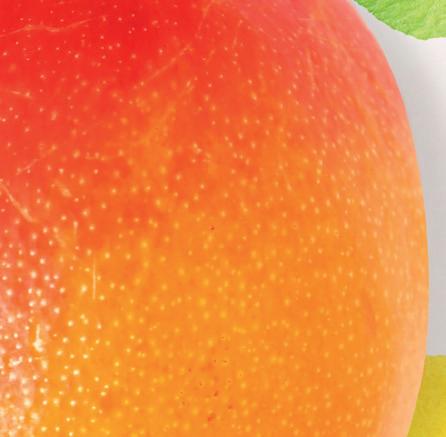
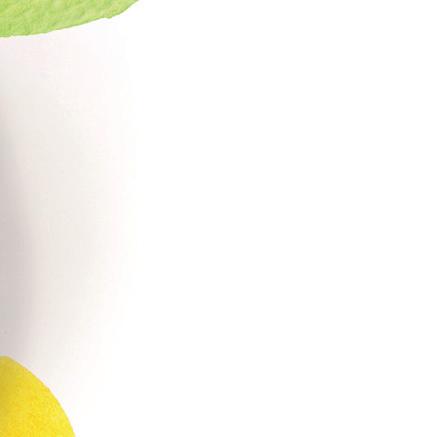






Demand for biologicals has never been higher, as more growers seek sustainable solutions that bring value and better productivity to their farms. Murcia-based Symborg, a specialist in the development of sustainable microbiological technologies for the agricultural sector, is all set to accelerate the roll out of a new generation of bestin-class biologicals following the completion of its acquisition by US agricultural chemical and seed giant Corteva Agriscience in March.
“Corteva recognised the potential of our cu ingedge technologies to help meet the growing demand for sustainable and profitable agricultural solutions,” says Symborg’s recently appointed general manager Raphael Godinho. “We have a proven track record in researching, developing and bringing biotechnological solutions to market. By incorporating Symborg into its biological business, Corteva aims to accelerate its efforts to provide farmers with a broad range of sustainable solutions that help maximise yields while minimising their environmental impact.”
The acquisition represents a significant milestone in Symborg’s evolution as a company. As part of Corteva Agriscience, Symborg will have access to greater resources and capabilities to drive innovation and accelerate the development and commercialisation of new products.
Godinho himself is an agricultural engineer with over 18 years of experience in the crop protection market worldwide, most recently as Corteva’s global product manager and global programme leader of biologicals.
“My relationship with Symborg began two years ago, when I started working with them on the distribution agreement between Symborg and Corteva to expand
and bring Utrisha N and BlueN nutrient efficiency optimisation solutions to growers,” he explains. “Now, I have moved with my family to Murcia to kick off a new stage in my life.”
According to Godinho, Symborg is constantly exploring new frontiers in research and development to meet the evolving needs of its customers. He says there is an exciting pipeline of new products in development that the company is eager to bring to the market. These will leverage the power of microorganisms and biomolecules to improve plant health and enhance crop productivity.
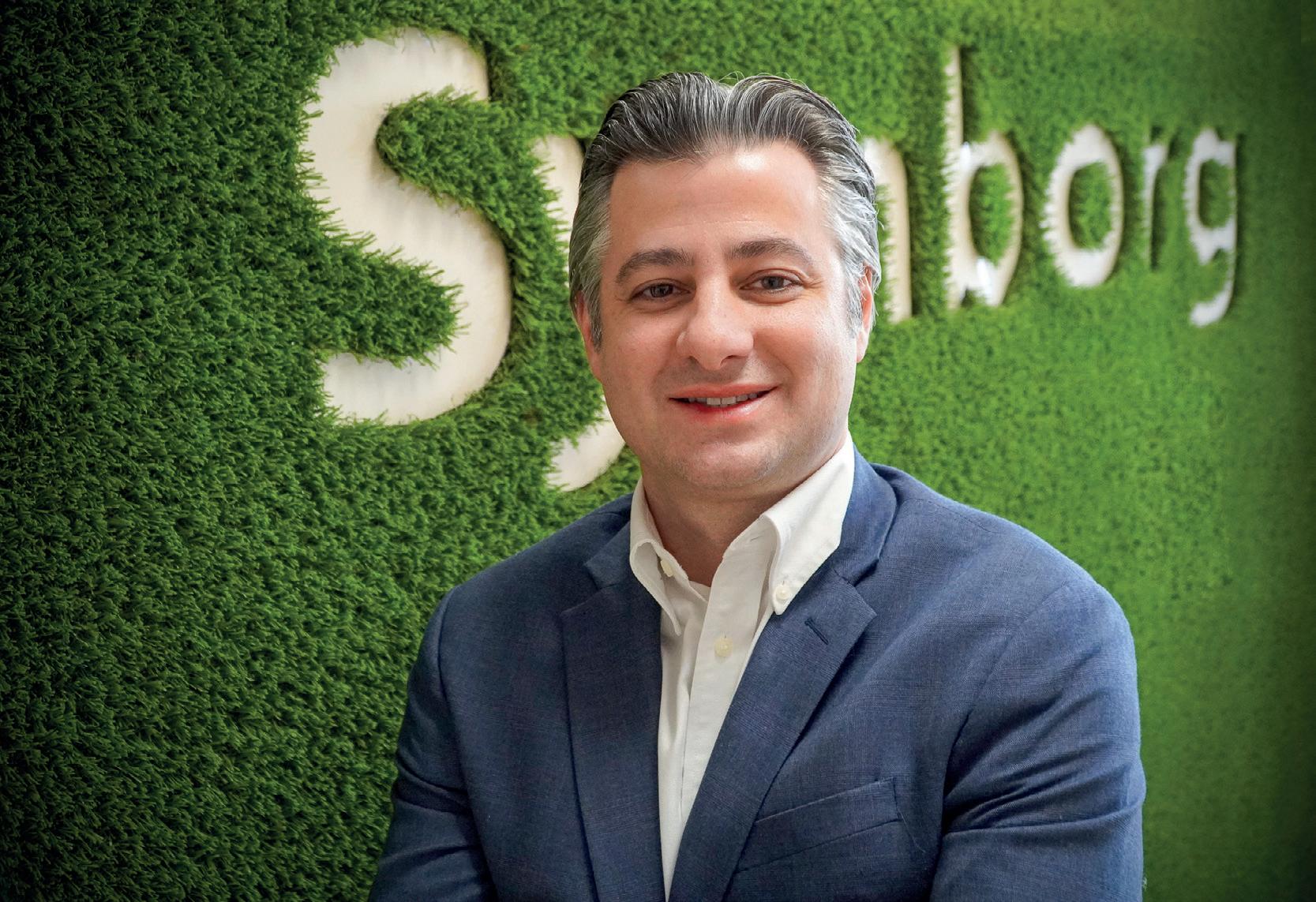
“Another key segment we’re keen to develop is research into biocontrol solutions. This market is expected to grow by 15 per cent annually over the next five years. Thanks to our strong pipeline, Symborg will play a relevant role by bringing new biocontrol solutions to the marketplace,” he says.
Looking to the future, he says Symborg is now on a secure footing to address the many challenges facing the agriculture industry, including climate change and extreme weather events, food security, new regulations and changing consumer preferences.
“Our main aim is to continue bringing innovative solutions to help growers overcome the current challenges they face, while increasing crop profitability,” he says. “As part of Corteva’s biologicals business, Symborg will have even greater power to invest in research and development to ensure we stay at the forefront of the industry. Thanks to our combined global reach, more farmers will have access to and benefit from the most disruptive biological solutions.”
Tesco and WWF have teamed up with start-up tech innovator AgriSound to roll out its ground-breaking insect-monitoring device, Polly, across several English apple orchards. The technology is expected to give UK fruit growers game-changing insights into the activity of pollinators.
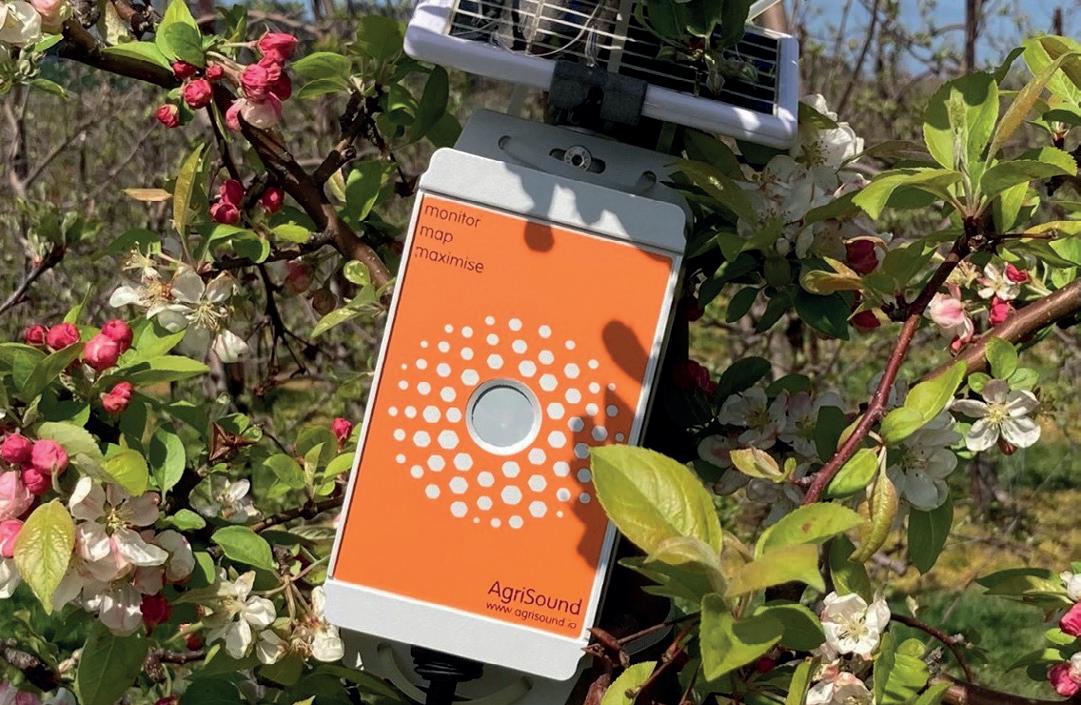
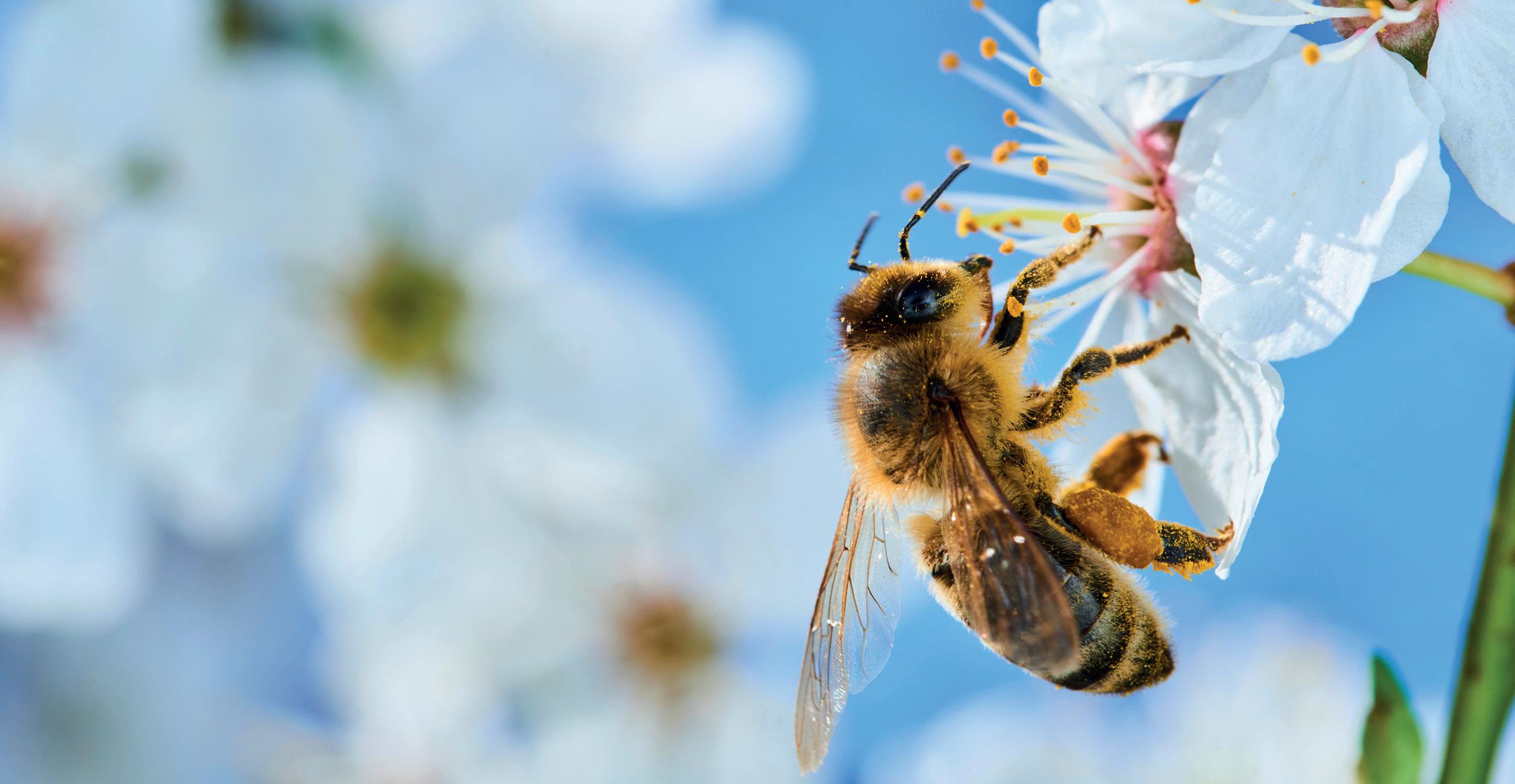
Funded through the WWF and Tesco’s Innovation Connections Programme, 50 of the AI listening devices, designed to capture and analyse the sound of a range of common pollinating insects, have been deployed across three different sites in Kent. The aim is to measure the biodiversity benefits of wildflower margins across three large commercial apple orchards, and their impact on pollination.
AgriSound anticipates that, by identifying areas of low pollinator activity in real time, the devices
will support growers to boost biodiversity at key sites on their farms, to drive up pollinator numbers – and ultimately crop yields.
Data from the devices will also enable farmers to measure the change in pollinator numbers over time, helping to evaluate the benefits of farm-level interventions to boost pollinator numbers, helping to enhance biodiversity and reduce the need for artificial fertilisers or pesticides.
The Innovation Connections Programme aims to support the roll-out of innovative technologies designed to tackle the climate and nature crises into and across Tesco supply chains. Thanks to the programme, AgriSound is working in partnership with AM Fresh, one of Tesco’s key fresh fruit suppliers, which sources fruit from a number of farms across Kent and the South East of England.
Casey Woodward, founder and CEO of AgriSound, said: “At a time when biodiversity,
including pollinating bee populations, is declining rapidly and the cost of food production is soaring, our project, funded by Tesco and the WWF, could help revolutionise the efficiency of commercial pollination, allowing modern farming techniques to enhance vital biodiversity, rather than negatively impact it, as has sometimes been the case historically.
“It is exciting to be able to expand our technology in the Tesco fruit supply chain to help growers encourage pollinators to the right areas at the right time, boosting yields, without the need for additional fertilisers or pesticides.”
David Edwards, director of food strategy at WWF, added: “The UK is one of the most nature-depleted countries in the world, and currently food production is driving it’s decline. From insects and birds to bees and mammals, UK nature is in freefall – and this is undermining the resilience of our whole food system.
“New technology like this has the potential to support farmers to bring our landscapes back to life, helping to showcase measurable biodiversity benefits delivered through specific on farm interventions, at the same time as boosting productivity.”
The United Nation’s Water Conference in New York resulted in a water action agenda comprising 700 commitments to address the global water crisis and to promote sustainable water usage worldwide.
As an active participant at the United Nation’s Water Conference in New York, the Nature’s Pride team can look back on what was a valuable summit. CEO Adriëlle Dankier, who attended the conference, comments: “Water isn’t just a sustainability concern for us, it is also a vital aspect of our business. Responsible water usage is one of our purchasing criteria. We work together with the Dutch government and our local authorities to implement the WASH approach, which is concerned with water, sanitation and hygiene, thus encouraging responsible water usage in our sector. It was therefore important to make our voices heard at the conference and to highlight responsible water usage in the fruit and vegetable sector.
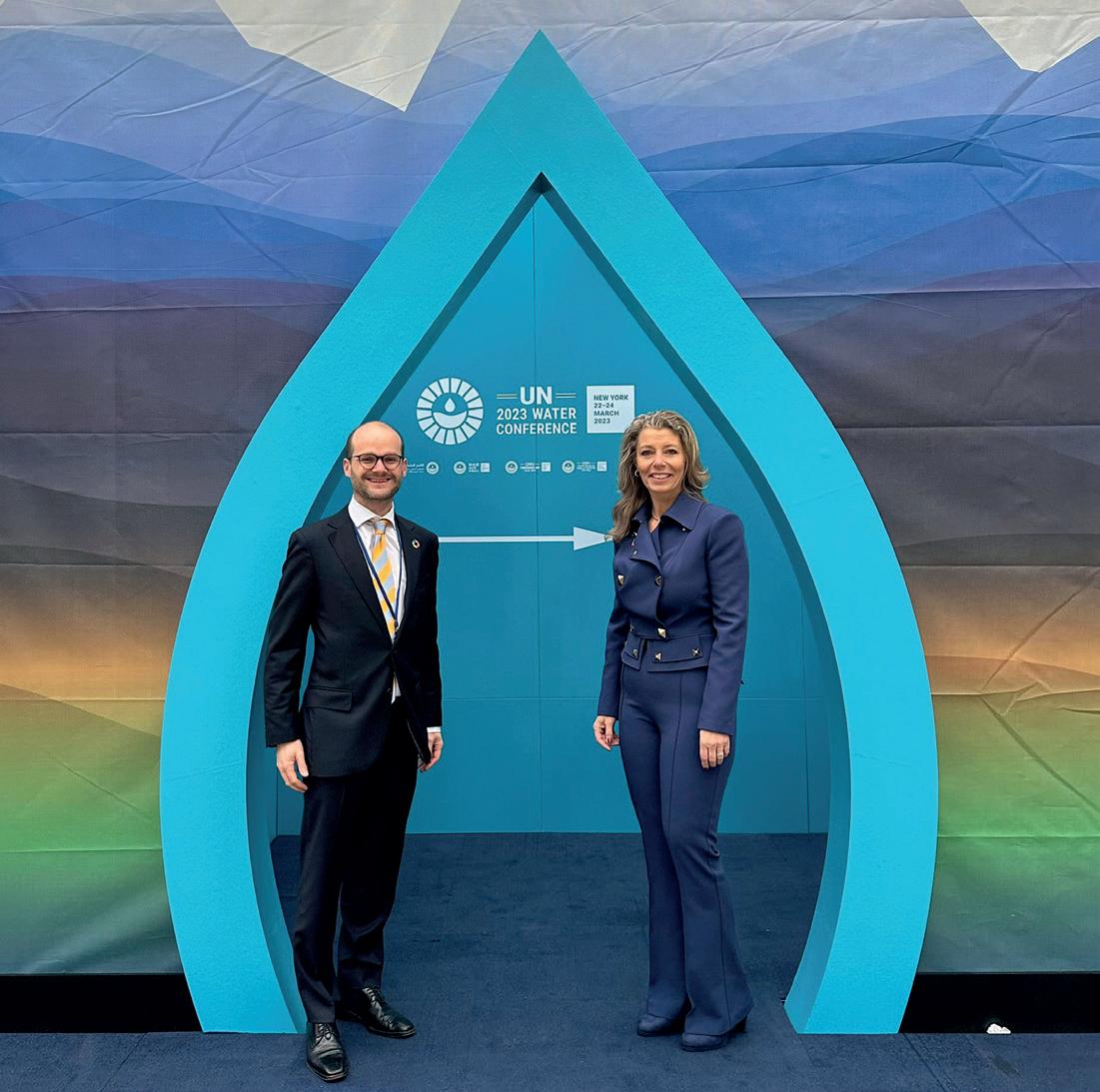
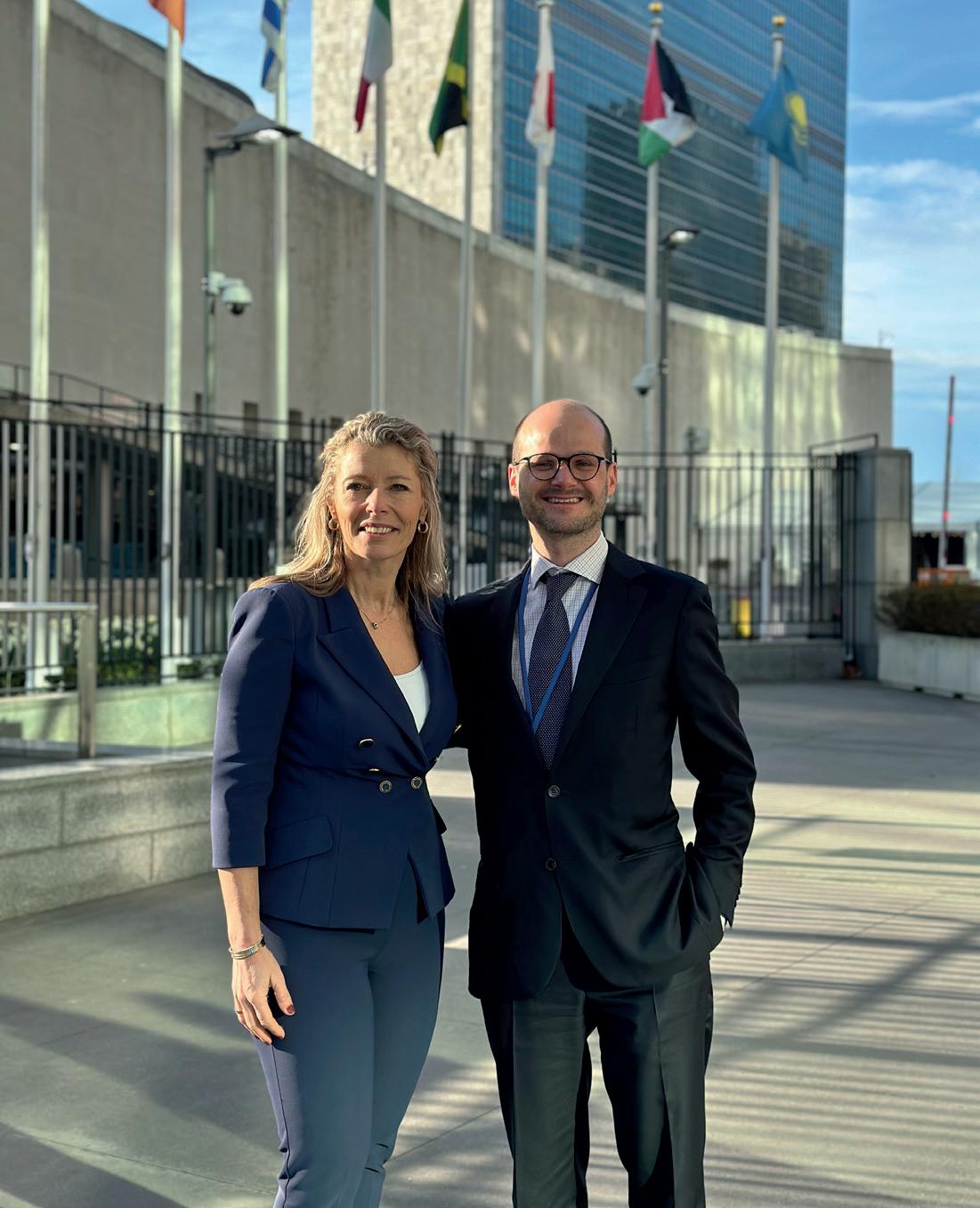
“The UN assembled key global water stakeholders so that we could connect with people we don’t get to meet that often. As a result, we strengthened existing relationships and made new contacts that will help us promote awareness and our commitment to collective action. We work hand in hand with growers on responsible water management and we engage stakeholders in priority catchments in sourcing countries to improve ecosystems. As we continue to look for ways to increase our impact, we are the driving force behind responsible water usage in the fruit and vegetable sector.”
The role water plays in the food system has, up to this point, mostly gone under the radar. To this end, Wageningen University & Research and Nature’s Pride teamed up with other partners to ensure the issue was high up on the agenda at the UN Water Conference.
Coen van Iwaarden, Nature’s Pride’s senior advisor on sustainable business, participated in a panel discussion at the UN Water Conference. “We see collective action supporting water stewardship taking root around the world,” he says. “Since we started working on water in 2018, Nature’s Pride has promoted collective measures to increase understanding and to better manage the water in our value chain. It is both valuable and vital that the key movers and shakers in the water stewardship
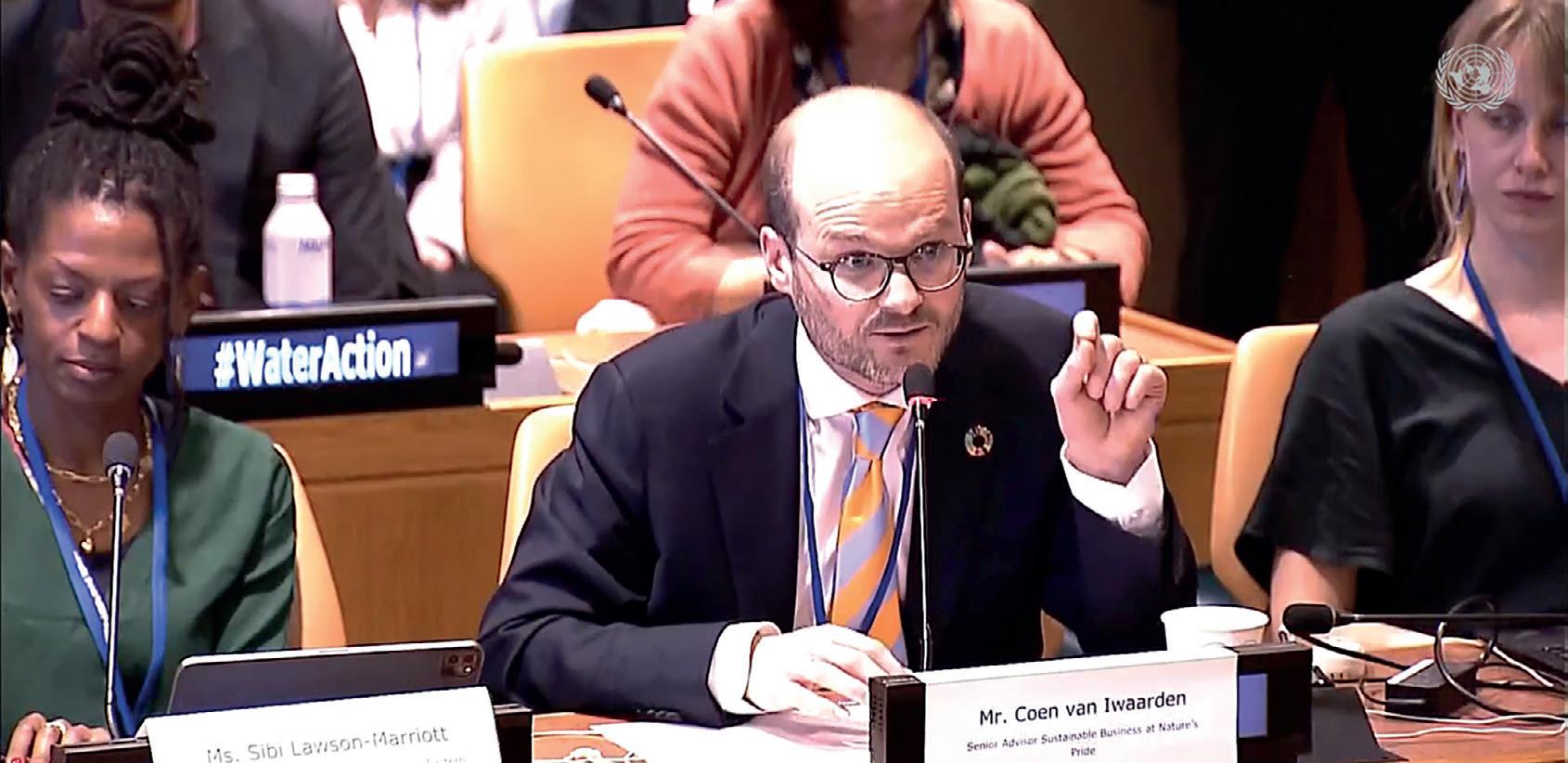
community, with whom we have worked so closely, come together to move the water steawrdship agenda forward. Nature’s Pride will continue to support developments in Peru, Chile, Spain, and other key catchment areas.
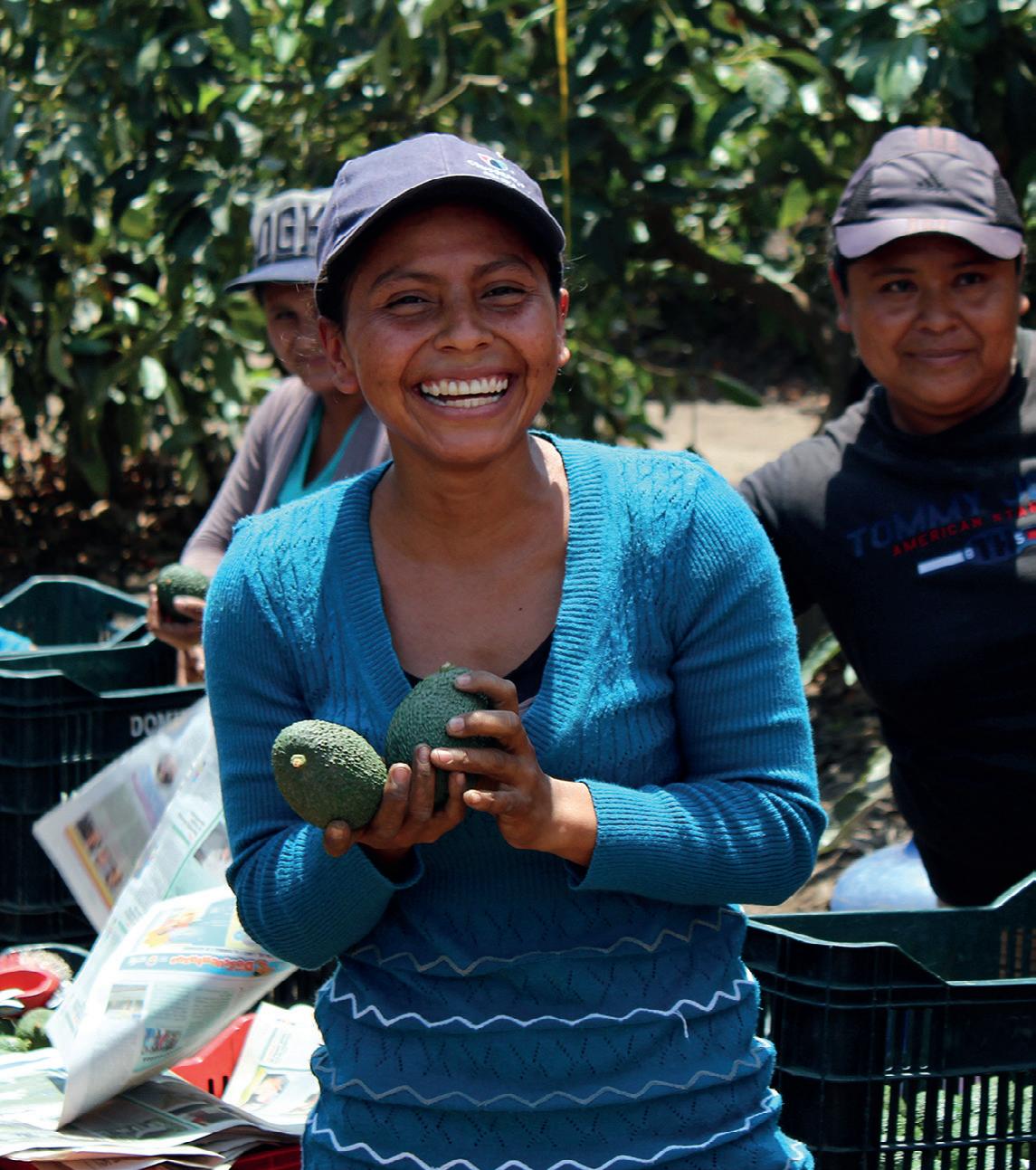
“It was important for us to draw attention to the role water plays in international trade. We highlighted the need for improved water governance and cooperation throughout the supply chain. The urgency of the situation is clear for all to see. The conference concluded with a specific water action agenda, and it is now up to both the public and private sectors to take further decisive measures. With the commitments we have undertaken, we will continue to strive to make a difference within our value chain
and to contribute to a healthier and more resilient food system.”
Since its establishment, Nature’s Pride has firmly believed that enjoying the tastiest fruit and vegetables today can contribute to a better world tomorrow. That’s why Nature’s Pride continually strives to make the food chain more efficient, fair and sustainable. To achieve this, firm objectives across several
areas are being set: improving the living conditions of communities in produce areas, reducing food waste and reducing the environmental impact.
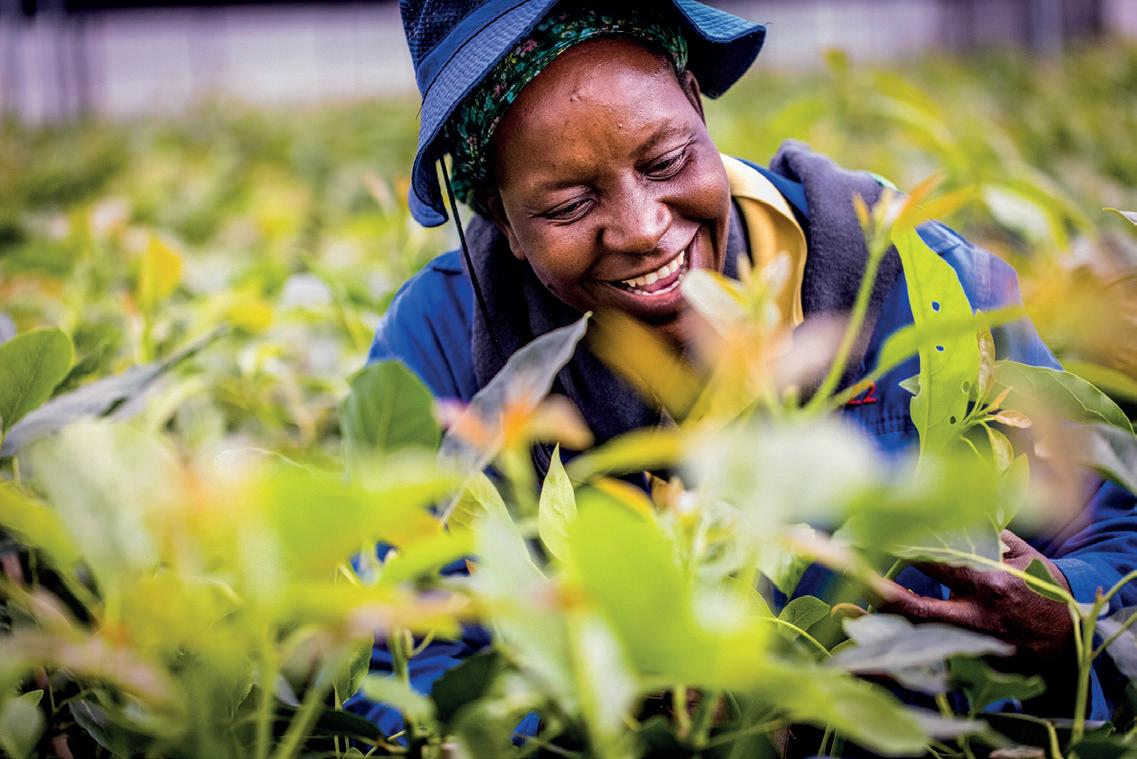
“We see that sustainability is considered crucial at all levels, politically, in the media and among consumers,” says Dankier. “More and more, society is taking into consideration how nature is treated and conserved. We invite all public and private stakeholders to participate in this effort. Our products support economic and social development for thousands of people around the world – people who live in the countries of origin where our fruit and vegetables are grown, harvested and packaged every day. That’s why we strive to foster longterm partnerships with growers who place employee well-being at the heart of their business. These partners offer respectable wages, good working conditions and demonstrate a commitment to their local communities. We work together to support continuous progress and make use of improvement plans that focus on frequent communication, visits and independent audits.”
Packaging is a vital aspect when considering sustainability, according to Dankier. “Our aim is to produce recyclable or reusable packaging preferably made from a single substrate,” she states. “We are constantly searching for the perfect balance between quality products and the lowest environmental impact.”
Preventing food waste is also a top priority. Especially with avocados, the company’s most important product, work is done to extend the shelf-life. If a product does not meet the necessary requirements, it undergoes further processing to become puree, juice, guacamole or oil, for example. The company also makes donations to food banks. Nature’s Pride is working to keep 100 per cent of its food loss valorised to food and feed by the end of 2023.
The company established the Nature’s Pride Foundation back in 2014 to further support socioeconomic development in communities. “Working alongside producers, the Foundation focuses on projects that support healthy lifestyles and a prosperous living environment,” explains Dankier. “The steps we are taking ensure that, together, we are on the right path to a better world for both people and nature. After all, we can only genuinely enjoy our global flavours if the people of today and tomorrow can enjoy them too.”
New paper published following scientific collaboration suggests that striving to achieve circularity will not always guarantee a sustainable outcome.
by Carl Collen @carlfruitnetThe Journal of Waste Management has published a new paper put together by four scientists from Brunel University London, The Polytechnic University of Milan, University of Southern Denmark and Wageningen University & Research. The paper’s research found that circularity was not necessarily synonymous with sustainability and, therefore, striving to achieve circularity would not always guarantee a sustainable outcome.
The researchers pointed out that achieving higher circularity of packaging materials, components, and products was now a significant trajectory taken by politicians and businesses to curb the negative environmental
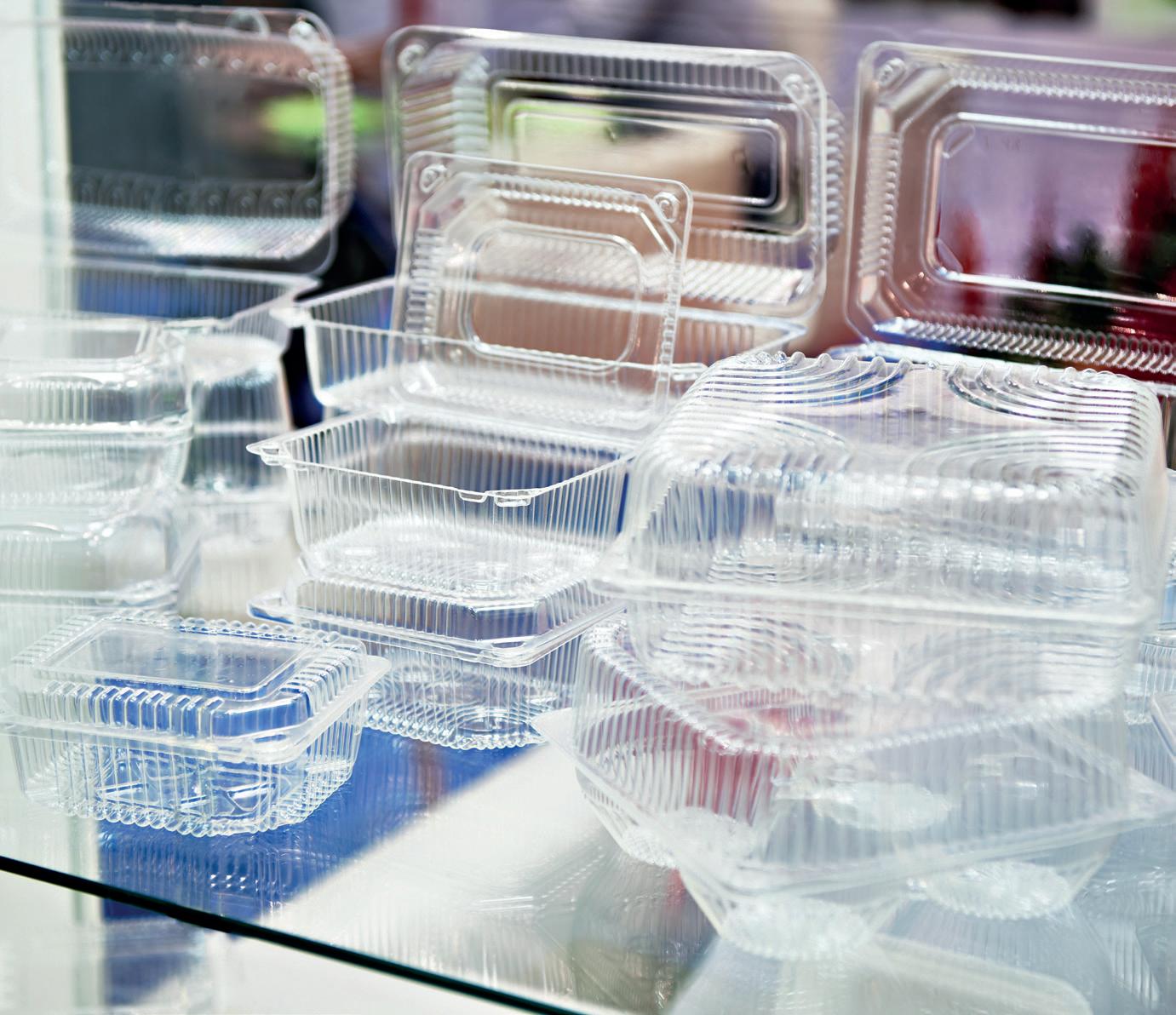
impacts caused by packaging life cycles.
“Circularity has become an established concept in the public debate but still remains a broad notion that needs a precise definition, that goes beyond the use of metrics and indicators that are not fit for purpose or easy to measure such as collection rates, recycling rates, recycled content, biobased content, etc,” they noted. “Circularity measured with such indicators fails to capture system realities or broader effects, including potential rebound effects that may negate or even overturn environmental benefits.”
As an example of a meaningful and practical approach, the four researchers – Ciprian Cimpan, Eleni Iacovidou, Lucia Rigamonti and
Eggo Thoden van Velzen – proposed a product-centric circularity scorecard that captured aspects likely to demonstrate a product’s environmental sustainability. The scorecard was based on seven simple questions covering the life cycle of a product: production, use and end-of-life. This ‘common sense’ approach resembles the waste hierarchy with a simple priority order that the researchers said held true in most cases.
“Current actions aiming at achieving circularity may be overly focused on superficial effects and losing sight of true circular economy goals,” the researchers argued. “Our aim is to trigger a scientific discussion on how to best combine scientific knowledge and research on the flows of materials, components and products through society to achieve the broader objective of sustainability, while keeping up with the timelines imposed by the pace of business and policy decisions. That is why we are making a plea for meaningful circularity goals, to avoid that business or policy decisions involuntarily contribute to cementing policy and infrastructure that do not contribute to true sustainability.”
In a context where the European Commission is proposing to turn the Packaging & Packaging Waste Directive into a regulation that would be directly applicable in all EU Member States, it has become of paramount importance that actual circular economy goals were not lost.
“In cases where Member States have initiated new laws on packaging waste, and where the business community is commi ing to ambitious targets to increase the circularity of their products, a meaningful, inclusive and practical circularity that promotes sustainability is crucial.”
ABOVE—The researchers have proposed the creation of a product-centric circularity scorecard
“Circularity has become an established concept in the public debate but still remains a notion that needs a precise definition”
SunFresh Produce is embracing the challenge of reducing packaging waste, implementing measures to meet higher sustainability and recycling targets across its organic range.
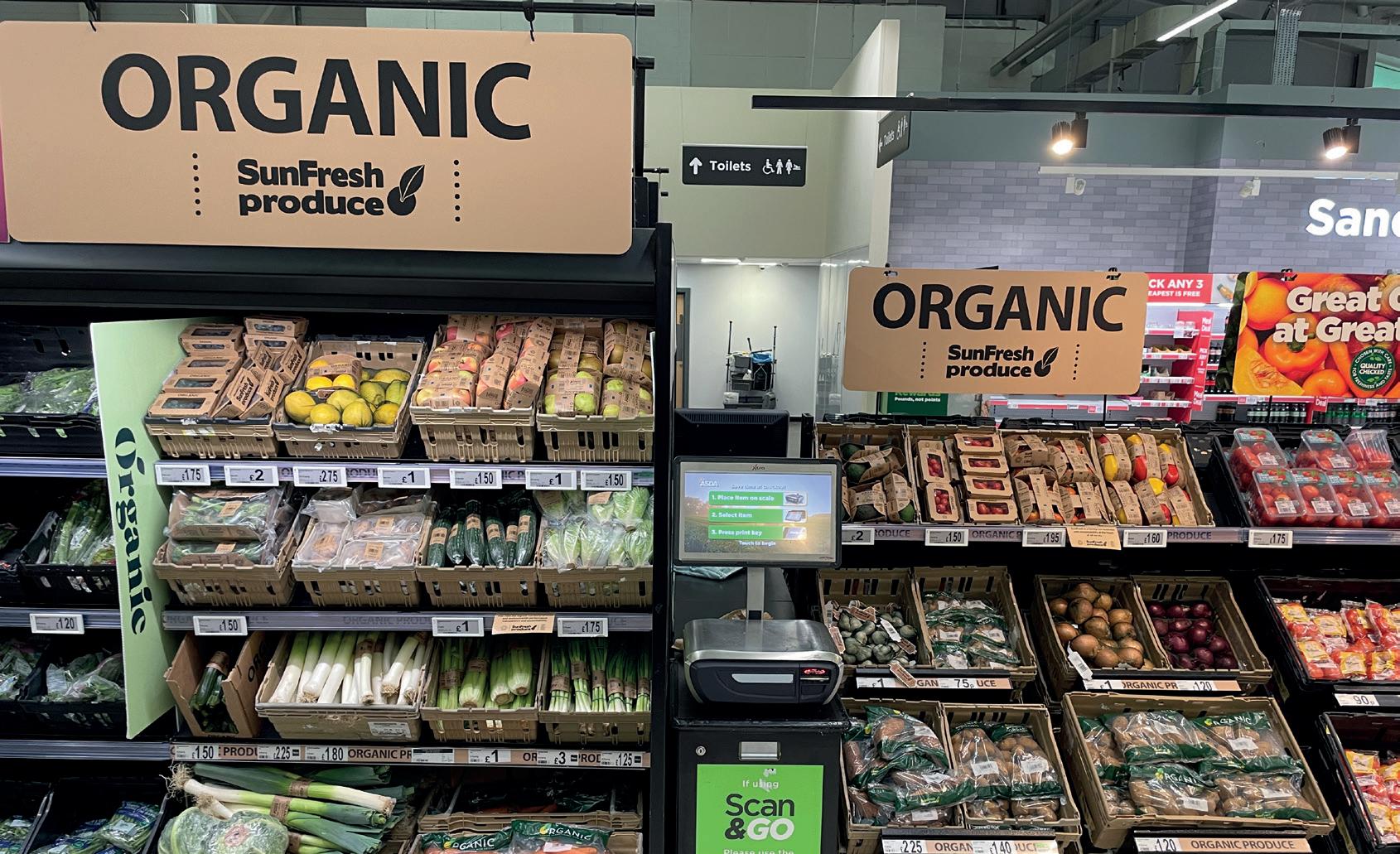 by Tom Joyce @tomfruitnet
by Tom Joyce @tomfruitnet
With its innovative approach to packaging, commitment to reduced environmental impact and highly regarded B Corp certification, the UK’s SunFresh Produce has become a sought-after choice for environmentally conscious consumers, according to founder and chief executive Matt Godfroy. And with sustainability and conscious consumerism becoming increasingly important, he says the company’s B Corp and Soil Association branded range, available in select Asda stores, stands out.
“One critical factor that sets SunFresh Produce apart from others is our creative approach to packaging,” says Godfroy. The brand has embraced the challenge of reducing packaging waste and has implemented measures to meet higher sustainability and recycling targets, with all packaging 100 per cent recyclable.
“SunFresh Produce understands that sustainability and creativity go hand-in-hand,” he says, “and we have reduced the previous range’s footprint through careful design and material selection, while ensuring a firm focus on freshness and quality.”
According to Godfroy, the fact that Asda, the third largest supermarket chain in the UK, has listed the SunFresh Produce brand, showcasing both B Corp and the Soil Association, speaks volumes about consumer demand for sustainable and ethical options.
“The B Corp certification serves as a beacon for conscious consumers, indicating that Asda, in partnership with SunFresh Produce, strives to offer high-quality organic produce and actively promotes sustainable business practices,” he says. “Asda has recognised the importance of sustainability to its customers and has listed SunFresh in select stores, offering a range that exceeds other retailers’ certifications.”
For Godfroy, the stumbling block to innovation is o en a lack of commitment and funding. “This is where long-term partnerships create sustainability for everyone,” he goes on. “As consumers increasingly prioritise conscious consumption, the SunFresh Produce range is a testament to the power of creativity and sustainability in shaping a be er future for our planet.”
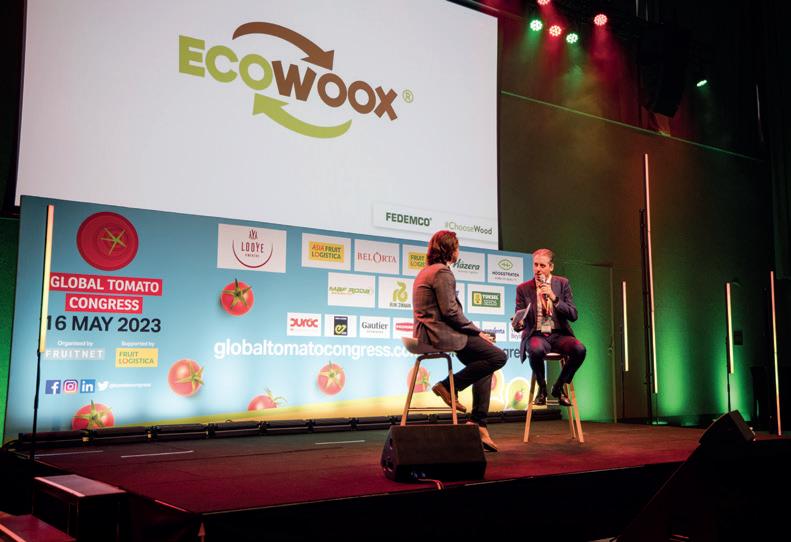
The Spanish federation of wooden lightweight packaging (Fedemco) has launched a sustainability seal designed to facilitate compliance with new EU rules on packaging waste. The European Packaging and Packaging Waste Regulation (PPWR) introduces the concept of “extended producer responsibility”, compelling growers to ensure full recyclability and established recovery rates for their packaged goods. The norm harmonises packaging policies among EU member states and imposes a 15 per cent reduction in packaging waste by 2040.
“We want to keep offering value to the supply chain, especially during these times of changing working models,” said Salvador Martínez (below), the federation’s secretary.
To facilitate compliance with the regulation, Fedemco has created its own certification: Ecowoox. The quality label enables packaging companies to certify complete recyclability, ecodesign and energy recovery for their wooden packaging.
“In this way, we are supporting the industry on its transition to a circular economy, providing solutions that exceed the minimum requirements set by the legislation,” said Martinez.
Founded in 2016, Dutch organic retailer Ekoplaza gained worldwide notoriety in 2018 when it launched the first plastic-free supermarket aisle. It has since grown into one of the leading organic grocers in the Netherlands, boasting 85 stores nationally, with a big focus on plastic-free packaging, organic fruit and vegetables and vegan products in order to encourage the adoption of sustainable plant-based diets.
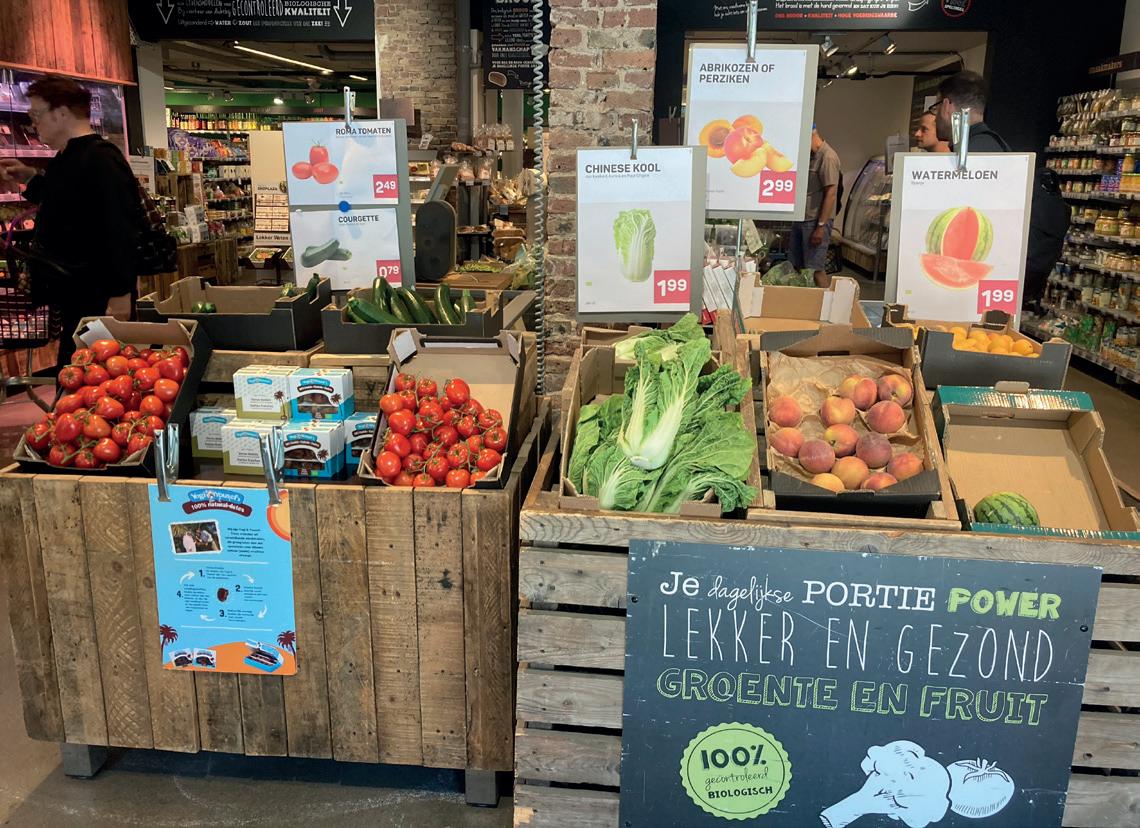
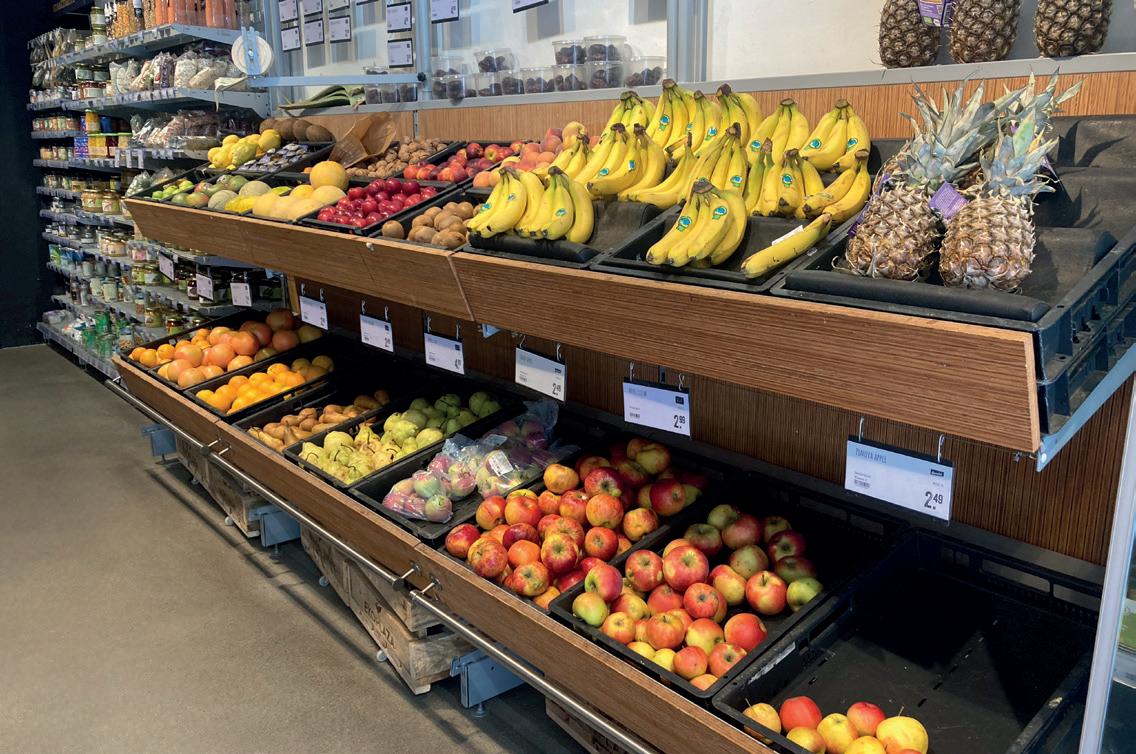
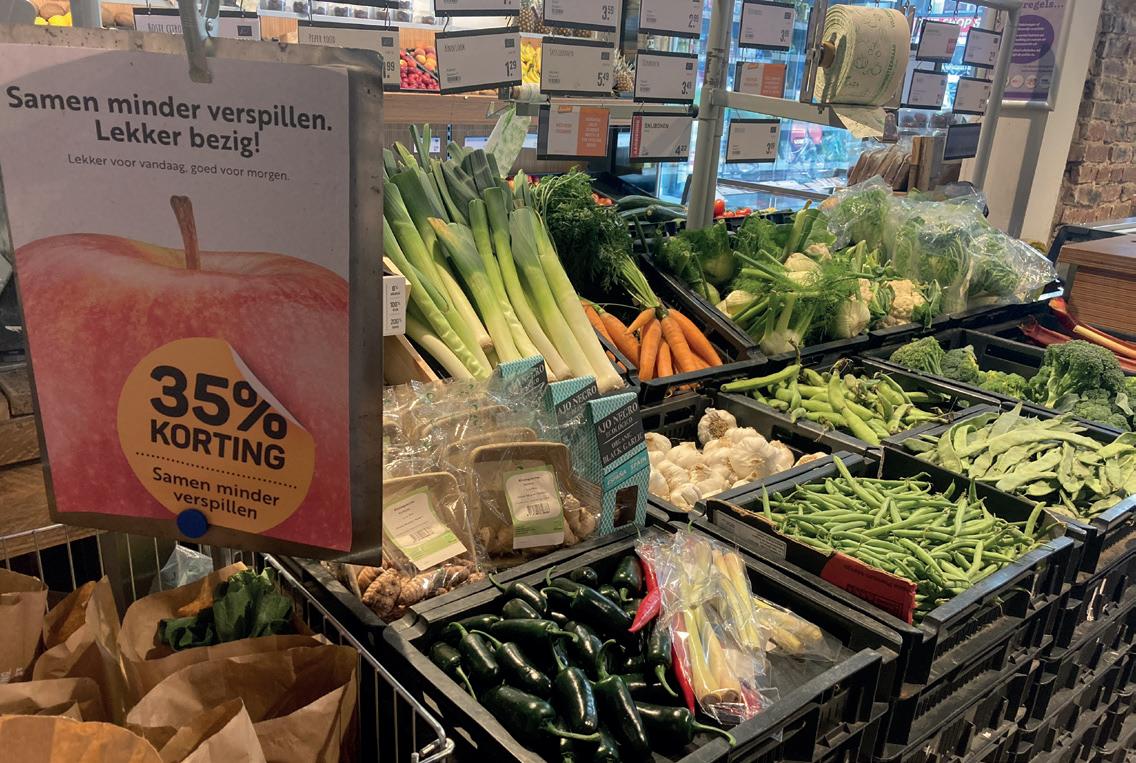
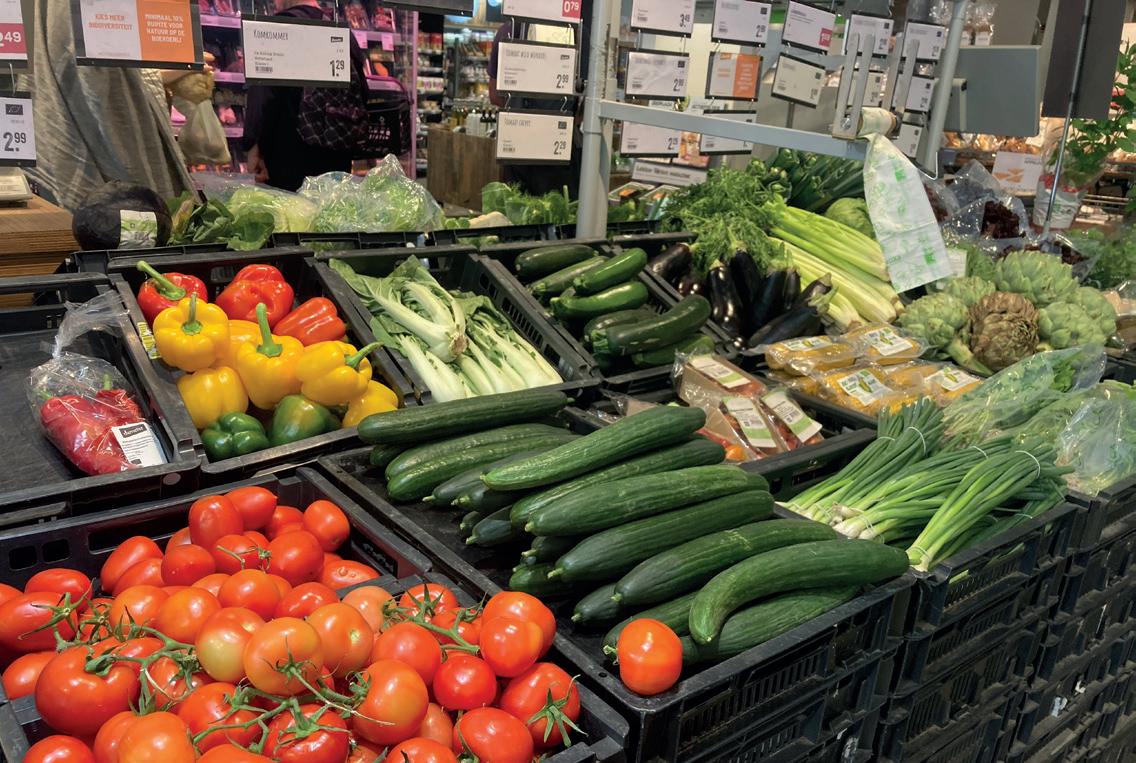

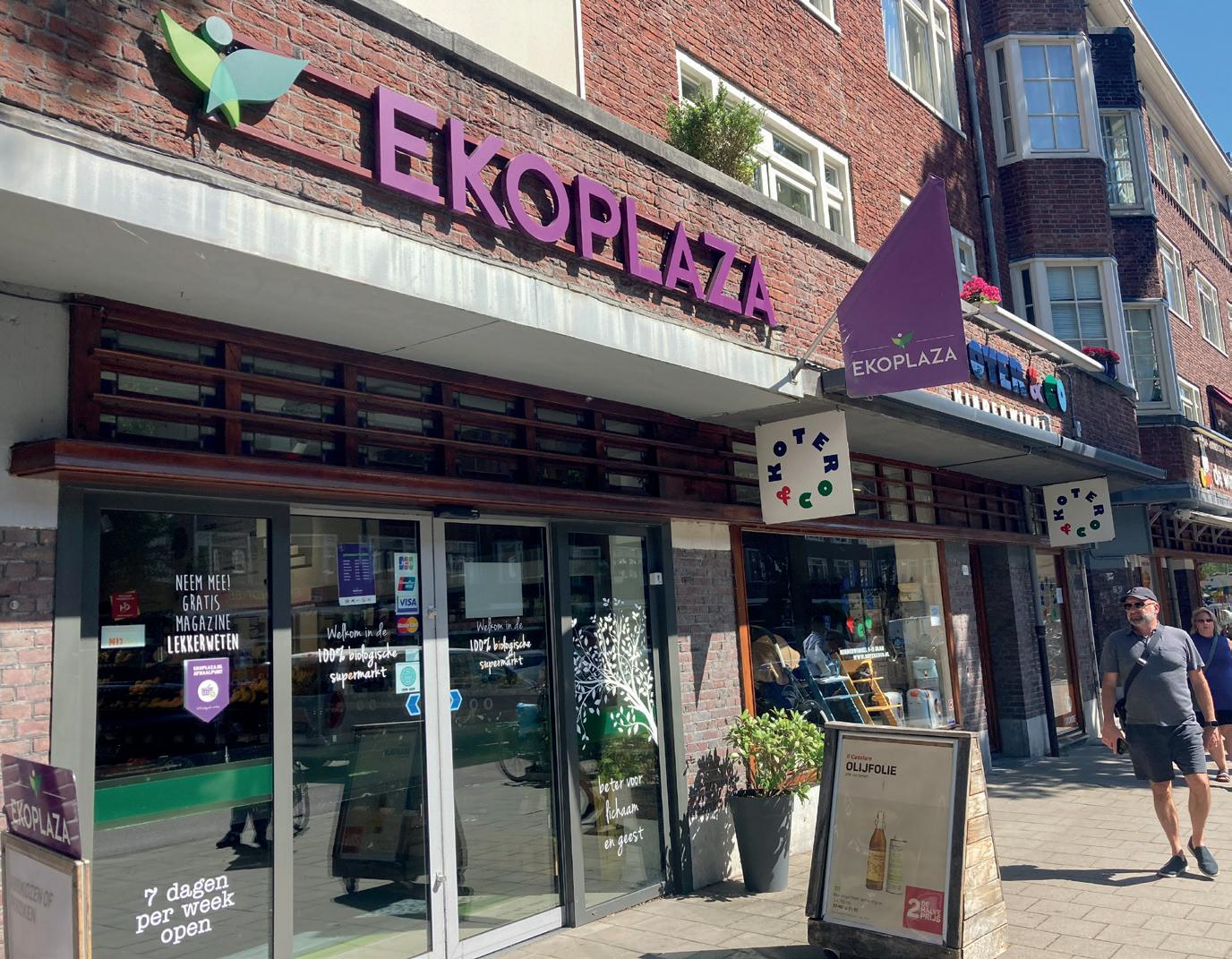
Eurofruit app is available for download, try it for free now!




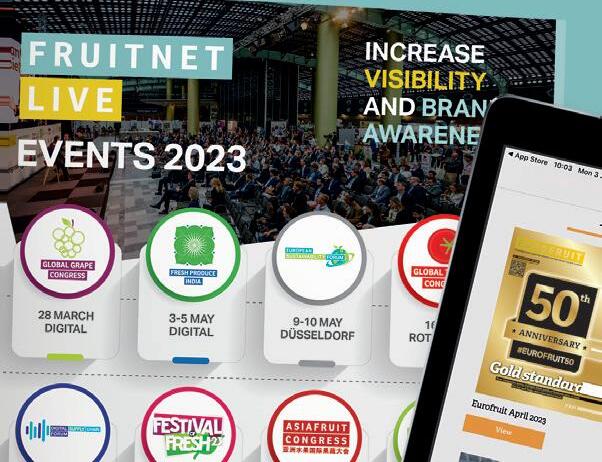












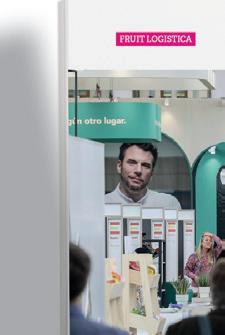
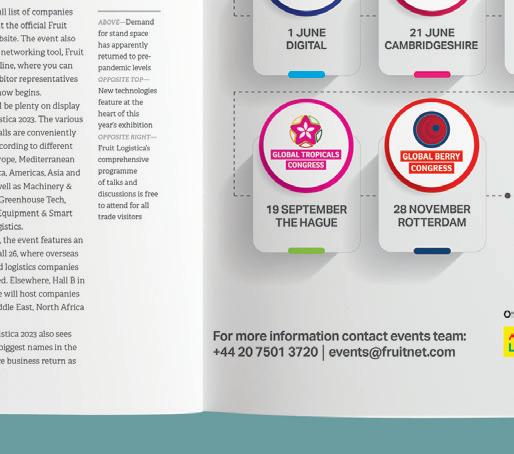
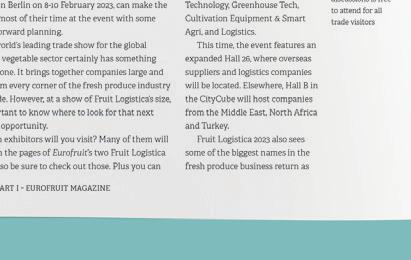
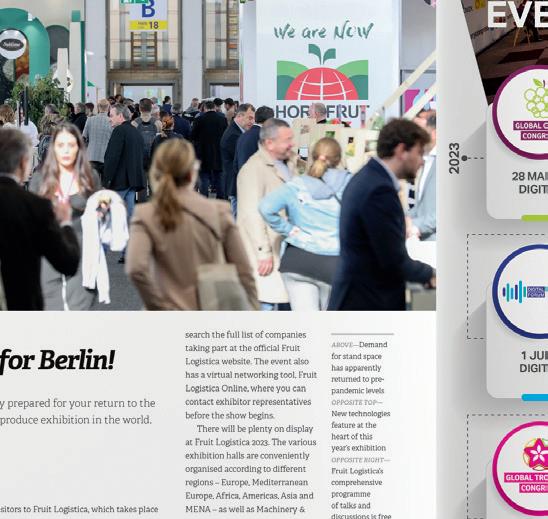
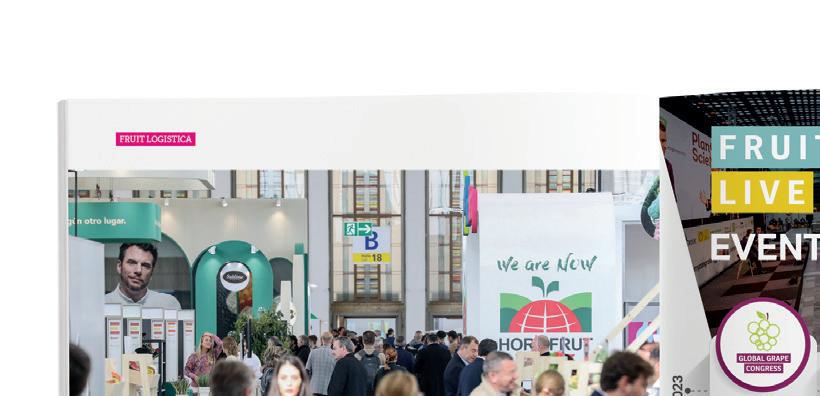










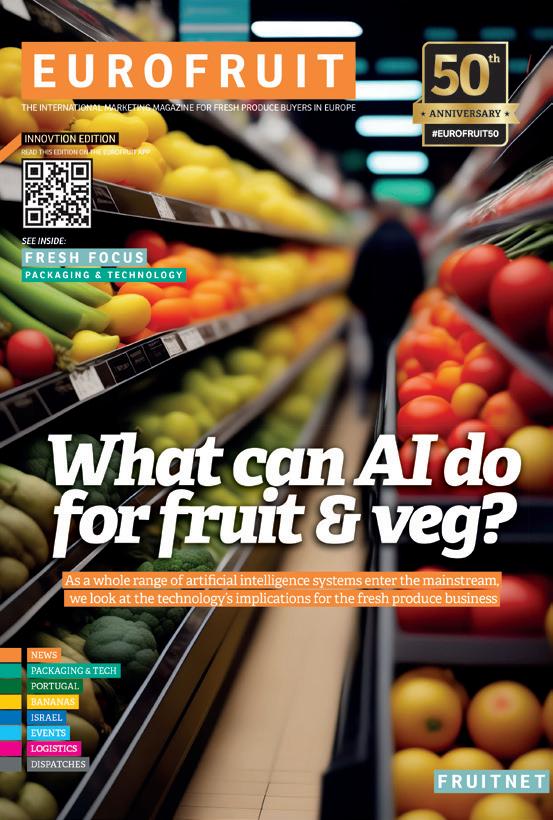


The Origin of our apples, Expertise that has ripened over years of working together, a focus on Sustainabilty: this is where our wide variety of Products and Brands comes from. These are the building blocks of our company, where the best apples can always be found.
